Welcome to Kiplinger’s 2025 tax season blog!
Since the IRS started accepting returns in January, our tax team (Kelley, senior tax editor, and Kiplinger tax writers Gabriella and Kate) has been here with essential updates, practical tips, and analysis to help you navigate every step of tax season — from maximizing deductions and credits to understanding the latest IRS and tax policy changes.
For most filers, Tax Day passed on Tuesday, April 15. So this blog is now officially closed.
If you haven’t filed or paid taxes owed yet, it’s important to do so as soon as possible to avoid penalties and interest. And, although the blog won’t be updated further, you can still explore all of our helpful posts from this tax season.
Thank you for joining us! We hope the insights and guidance we shared made filing easier and kept you informed every step of the way.
Stay tuned to Kiplinger for more expert advice on taxes and personal finance all year round, and subscribe to our weekly email newsletter: Kiplinger’s Tax Tips.
The First Day of Tax Season 2025

As of January 27, the IRS opened its doors for the 2025 tax season. This year brings notable shifts that will impact how millions in the U.S. file their taxes.
For example, the IRS has expanded its Direct File program to allow taxpayers in 25 states to complete returns without traditional preparation costs. That could save millions of households time and money. (The tax agency estimates 30 million taxpayers could participate)
President Trump's return to the White House has prompted significant shifts. On inauguration day, the former IRS Commissioner Danny Werfel stepped down. As the tax agency awaits confirmation of Trump’s Commissioner pick (former Congressman Billy Long), it must deal with a hiring freeze and reduced funding.
What does this mean practically? The core tax season process should remain the same: gathering documents, understanding tax deductions and credits, and eventually meeting the April 15 deadline (if you don’t have a valid tax extension).
However, the federal tax landscape is evolving, and as a new Congress begins to address tax policy, there is uncertainty about what tax bills will look like beyond this year.
For those feeling anxious about the changes, take a deep breath. Focus on the fundamentals of good tax preparation: good record keeping, understanding your income streams, leveraging tax breaks you’re eligible for, and seeking professional advice when and if you need it.
Welcome to Tax Season 2025.
As mentioned, we'll be live blogging all week, offering tips, analysis, IRS updates, and related news and information. In the meantime, here are some resources to get you started.
- Not Ready to File Taxes? Eight Things to Do to Prepare
- When are Taxes Due in 2025? Tax Deadlines By Month

Kelley simplifies federal and state tax information, news, and developments to help empower readers. She has over two decades of experience advising on and covering education, law, finance, and tax as a corporate attorney and business journalist.
Tax Changes to Know Before You File

Every year, before you file your 2024 tax return, there are significant federal tax changes you need to know. This tax season is no different.
So, we’ve compiled a list of key IRS changes that could impact your 2024 tax return — from the child tax credit and 1099k thresholds to extended tax deadlines in states affected by devastating natural disasters.
See: Tax Season 2025 Is Here: Seven IRS Changes to Know Before You File
Also, if you aren’t sure where to begin to prepare for tax season or wonder if you even need to file a return this year, we’ve got you covered with the following guides:
Who is Required to File a Tax Return
Does Your Child Need to File a Tax Return?
- Kelley
A Bit of News on Tariffs

Among President Donald Trump’s wave of executive orders signed on day one of his second term, one major campaign promise was missing — imposing universal tariffs on all imports.
What’s imminent, however, is how Trump’s sweeping would-be tariffs will impact your wallet as a consumer in the United States. Economists warn that tariffs on China, Mexico, and Canada can impact the cost of everyday essentials like food, gas, and clothing.
Here’s where you could see prices rise sooner than you think.
Food, Gas Prices to Spike if Trump Levies 25% Tariffs on Canada and Mexico

Gabriella is a seasoned finance journalist with 8 years of experience covering consumer debt, economic policy, and tax. She contributed to national dialogues on fiscal responsibility, market trends, and economic reforms involving family tax credits, housing accessibility, banking regulations, student loan debt, and inflation.
Free Tax...Help!

Just a reminder that there are a bunch of ways to file taxes for free this filing season. Here are a few services that the IRS offers:
- Free File is open to low-to-middle-income taxpayers with an AGI of $84,000 (or less).
- Direct File is open to some taxpayers in 25 states with an AGI of up to $250,000.
- The MIL (Military One Source) program (if you’re in the military) or the
- The VITA (Volunteer Income Tax Assistance) program (if you make $67,000 or less, you can meet with an IRS partner or volunteer staff who can provide tax counseling and preparation services)
There are also some free filing options offered by tax prep companies. Just double-check their eligibility rules.
Related: Ways to File Taxes for Free in 2025
...Don’t know what your “AGI” is? No problem.
Adjusted gross income (AGI) is your total income minus specific deductions. It's the starting point for calculating your tax bill before applying standard or itemized deductions designed to give the IRS a clearer picture of your taxable income.
To learn more, check out Kiplinger’s take on AGI, and then head over to our guide to Federal Tax Brackets and Income Tax Rates for more information regarding your 2024 tax rate.
Note: Your marginal tax rate is the percentage you pay on your last dollar earned, not your entire income. Think of it like a staircase: as you climb to higher income levels, only the dollars on each new step are taxed at that step's rate.
Plus, we have everything you need to know about the standard deduction and a load of tax credits and deductions you might be eligible for. (We’ll talk more about some of those tax breaks this week.)

Kate is a CPA with experience in tax, audit, and finance topics. As a tax writer at Kiplinger, Kate helps you and your wallet stay in the know.
Fun Fact: Why Most People Don't Itemize Deductions

Did you know the standard deduction has become the choice for nearly 90% of U.S. taxpayers? This surge in popularity isn’t an accident. The Tax Cuts and Jobs Act (TCJA) of 2017 (also known as the “Trump tax cuts”) nearly doubled the standard deduction, and that higher deduction is still in place now.
Data show that before the TCJA, about 30% of taxpayers itemized their deductions. After its implementation, that number plummeted to just under 14%. Congress will have to consider whether to extend the higher base standard deduction amount as it weighs new tax policy.
For the 2024 tax year, the standard deduction amounts are:
- Single filers: $14,600
- Married couples filing jointly: $29,2002
- Head of household filers: $21,900
For more information, see Kiplinger’s guide: What’s the Standard Deduction for 2024 and 2025?
- Kelley
Go Digital This Tax Season

The IRS is expecting more than 140 million individual tax returns to be filed by April 15, and the last thing you want is for your return to be delayed or lost in the mix.
As you prepare to file your taxes, storing your tax forms and supporting documents in a digital folder can help you file a secure and accurate tax return. Depending on your tax situation, you may collect receipts for expenses you’d like to deduct or claim as credit.
To get started, some documents you should consider digitizing include:
- W-2 forms from employers
- 1099 forms for freelance or contract work
- Paystubs or unemployment compensation
- Receipts for deductible expenses
- Investment records or bank statements
File digitally. As we’ve mentioned, IRS Direct File is available in 25 states, allowing taxpayers to file for free and directly to the IRS. Meanwhile, if you earned less than $84,000 in 2024, consider filing with IRS Free File. You can also select a direct deposit and receive a refund quicker if you are entitled to one
Avoid accidental loss. Digitizing your tax records and supporting documents can help you avoid the risk of losing crucial paperwork in the event of a natural disaster.
Consider the political landscape. The IRS has recently overcome years of challenges due to old tech, limited staff, and paper backlogs. The Trump administration is halting hiring new staff and considering cutting back on IRS funding. These changes may lead to potential tax processing delays, particularly for paper returns or those that need manual review.
- Gabriella
Related:
Some News: Scott Bessent Becomes New Treasury Secretary

The Senate confirmed Scott Bessent as the new U.S. Treasury Secretary on January 27, with a vote of 68-29. Bessent, known for his work in the hedge fund industry, is the 79th Treasury Secretary, succeeding Janet Yellen.
During his confirmation hearing, Bessent outlined several key focus areas, some of which center on tax policy.
- Addressing the upcoming expiration of certain Tax Cuts and Jobs Act (TCJA) provisions
- Managing the national debt and debt ceiling negotiations
- Potential reforms to the IRS
- Navigating international trade relationships, particularly with China
As Bessent takes on his new role in the Trump administration, his decisions and policies will likely significantly impact the U.S. economy.
- Kelley
Trump Wants to Freeze All Federal Aid

The White House Office of Management and Budget (OMB) has issued a memo pausing all federal grants and loans, effective January 28, 2025. While not directly targeting taxes, this unexpected and sweeping move could significantly affect the tax landscape.
Just before the 5 pm deadline when the pause was supposed to go into effect, a federal judge paused its implementation until Feb. 3. The situation is developing.
The memo came in addition to executive orders already issued freezing federal hiring for 90 days (indefinitely for the IRS), requiring a return to the office for many federal workers, and changing processes for reclassifying federal workers.
Key points of the memo:
- Halts distribution of federal financial assistance
- Excludes Social Security, Medicare, and Medicaid benefits
- Federal agencies must report on affected programs by February 10, 2025 (this will likely be impacted by the judge's order.)
Potential tax impacts:
- IRS Operations: A hiring freeze at the IRS could slow tax return processing and impact customer service.
- Tax Credits: Uncertainty around grant-supported tax credit programs, especially in clean energy and electric vehicles.
- Tax Guidance: Possible delays in issuing guidance on recent tax law changes.
- Program Changes: Tax-related federal programs could be affected, potentially altering available incentives and credits.
Notably, the memo doesn't specify an end date for this "temporary" pause, adding another layer of uncertainty. And it's hard to say what will happen from a legal standpoint.
As we navigate this open-ended situation, keep an eye on any IRS updates and consider consulting a tax or finance professional if you have specific concerns about impacts on your situation.
Related:
What Trump's Federal Hiring Freeze Means for Your Tax Return
Is the EV Tax Credit Going Away?

Kelley simplifies federal and state tax information, news, and developments to help empower readers. She has over two decades of experience advising on and covering education, law, finance, and tax as a corporate attorney and business journalist.
A Reminder for Those With Student Loan Debt

If you’re paying off a student loan, you could be eligible for an up to $2,500 tax break for student loan interest, among other education tax credits and deductions.
Some education-related tax breaks hinge on "qualified education expenses," including tuition and fees, room and board, and loans for school supplies, like books. But in some cases, the combined total could save you thousands.
Why this matters. Data show that more than 50% of students graduate with student loans, with the average student loan payment of around $300.
On top of that financial burden, there may also be a new challenge for some students: Parts of the SAVE plan (a federal student loan repayment program) are currently being contested in a federal lawsuit.
For more information on how you can save tax dollars on your student debt and to learn about the taxability of recently forgiven student loans, check out these Kiplinger reports:
Don't Miss This $2,500 Tax Break for Paying Your Student Loan
How to Get a 401(k) Match for Your Student Loan Payment
Will You Owe Taxes on Your Recently Forgiven Student Loan?
A Little-Known Way to Help Pay Your Student Loan

Kate is a CPA with experience in tax, audit, and finance topics. As a tax writer at Kiplinger, Kate helps you and your wallet stay in the know.
In the News...No More Income Tax?

Donald Trump has once again stirred the debate on tax policy, recently advocating for eliminating income tax and returning to a tariff-based revenue system.
"We're going back to the old days. No income tax, just tariffs. It worked before, and it'll work again," Trump said during a January 25 event in Las Vegas, Nevada.
The remarks, which come not long after a Republican lawmaker separately proposed to abolish the IRS and rewrite that tax code, reignited discussions about fundamental changes to the U.S. tax system.
(It's worth noting that critics argue that heavy reliance on tariffs could lead to trade wars, increased consumer prices, and potential economic instability.)
To learn more about this latest tax suggestion, see: Hello Tariffs? What's Wrong With Trump's Plan to Abolish Income Tax.
- Kelley
$1,400 IRS Stimulus Check?

Keep your eyes peeled for some extra cash flow coming your way via mailbox or a direct deposit.
As Kiplinger reported, the IRS is sending a million individuals a pandemic stimulus check worth up to $1,400 per taxpayer. The tax agency said it would send $2.4 billion in payments, which should be delivered by the end of this month (January).
The checks in question are from the 2021 Recovery Rebate Credit, a refundable credit for folks who did not receive one or more Economic Impact Payments (EIP) or stimulus checks.
Why such a delay? The IRS has been reviewing internal data to identify eligible taxpayers who filed a return but didn’t claim the credit. During the pandemic, the tax agency was short-staffed and faced many challenges as it dug itself out of paper backlogs.
Most taxpayers have already received their credit. However, some have not yet filed their 2021 tax returns and may qualify for a refund. If you’re in that situation, you’ll need to file that prior return by April 15.
For all the details, see our story, IRS is Sending Up to $1,400 to One Million People: Are You Eligible?
- Gabriella
Don't Overlook This Tax Break
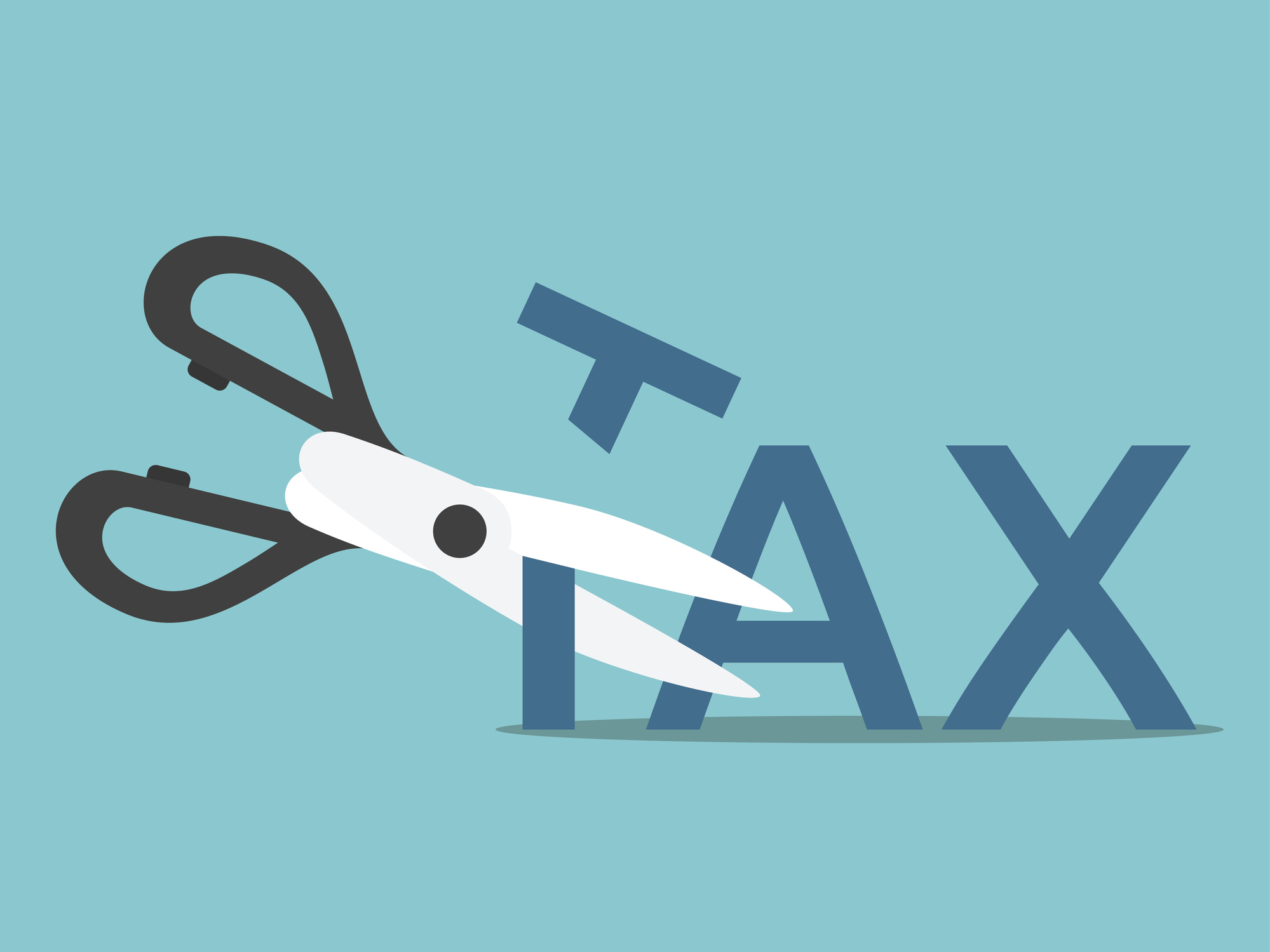
This year marks the 50th anniversary of the Earned Income Tax Credit (EITC), and there’s no better way to celebrate than by claiming your credit.
The EITC is a refundable tax credit designed for low- and moderate-income workers. If you qualify, you can use the credit to reduce your tax liability and may get a refund.
Approximately 23 million workers and families received $64 billion in EITC last year. Nationwide, the average tax credit amount was $2,743 —some good news: the Earned Income Tax Credit is expected to be slightly higher this year.
- To qualify, you must have an earned income under $66,819 or an investment income under $11,600 last year.
- For the 2024 tax year (taxes generally filed in early 2025), the EITC is worth up to $4,213 if you have only one qualifying child. That figure increases to $6,960 for two kids and up to $7,830 for three or more eligible children.
- You don’t have to have children to qualify. Single taxpayers with an income under $18,591 ($25,551 for married filing jointly) qualify for a maximum EITC of $632.
Lastly, 31 states, plus the District of Columbia and Puerto Rico, currently have their state or local government version of the earned income tax credit in addition to the federal EITC.
Also, watch for EITC Awareness Day this Friday, January 31, 2025. The IRS in collaboration with community organizations, elected officials, schools, employers, and other partners, offers taxpayers free information and help to claim the EITC and other family tax credits.
For more details, see: Earned Income Tax Credit: How Much Is It?
Also: 2025 Family Tax Credits: Four IRS Changes That Can Save You Money

Gabriella is a seasoned finance journalist with 8 years of experience covering consumer debt, economic policy, and tax. She contributed to national dialogues on fiscal responsibility, market trends, and economic reforms.
The Child Tax Credit: A Boost for Families

Since 1997, the Child Tax Credit (CTC) has supported millions of families. What began as a $400 per child credit now provides up to $2,000 per eligible child, reaching approximately 46 million families - more than the population of Spain.
The CTC's impact is significant:
- It helps lift nearly 2 million children out of poverty each year, comparable to emptying a city the size of Houston.
- By providing financial support, the credit creates opportunities and stability for families across the United States.
For the 2024 tax year, the maximum CTC remains $2,000 per qualifying child under 17, but the refundable portion has increased from $1,600 last year to $1,700 for this tax filing season.
Families with lower tax liabilities can receive up to $1,700 back as a refund, even if they owe no taxes.
Learn more: Child Tax Credit 2024 and 2025: How Much Is It?

Kelley simplifies federal and state tax information, news, and developments to help empower readers. She has over two decades of experience advising on and covering education, law, finance, and tax as a corporate attorney and business journalist.
Are You Receiving a New Tax Form This Year?

Here’s some news for gig workers, eBay sellers, and part-time Etsy vendors: You may get a tax form this year that you haven’t received before.
The IRS instituted a new 1099-K reporting change for this 2025 filing season (2024 tax returns). Previously, taxpayers received Form 1099-K when they reached $20,000 and 200 online transactions. Now, the threshold is just $5,000. This means more casual sellers of goods and services may receive this tax form for the first time.
While the new lower threshold doesn’t change the taxability of these items, you should review your Form 1099-K to ensure proper classification of what is taxable income.
For example, your form could accidentally include nontaxable transactions to friends and family. Items like splitting a meal, gifting birthday money, and like-personal transactions shouldn't trigger tax.
For more information, check out Kiplinger’s report 1099-K Reporting Change for the 2025 Tax Season.

Kate is a CPA with experience in tax, audit, and finance topics. As a tax writer at Kiplinger, Kate helps you and your wallet stay in the know.
Types of Income That Aren't Taxed by the IRS

It can often feel like the IRS taxes most of your hard-earned money, but thankfully, certain types of income are nontaxable in the eyes of the federal tax agency. And those exceptions can significantly impact your financial strategy and tax planning.
Some examples? Gifts and inheritances up to certain limits, life insurance proceeds, some Social Security benefits, and interest from municipal bonds. Qualified distributions from Roth retirement accounts also provide tax-free benefits in retirement. Additionally, profits from the sale of a home may be exempt from tax under specific conditions.
For 2025, the annual gift exclusion is $19,000 per recipient, up from $18,000 in previous years. Additionally, Roth IRA withdrawals can be tax-free if you're over 59½ and have held the account for at least five years. It's important to note that while these income sources may be tax-free at the federal level, some might still be subject to state taxes depending on where you reside.
See: Common Types of Nontaxable Income to Know
While these and some other opportunities for tax-free income exist, remember that tax laws are complex, and each exemption has its own set of rules and qualifications.
Check out our summary on several types of income the IRS doesn’t tax. And, as always, consult a qualified tax professional who can help you navigate what in your financial life is and isn’t taxable.
- Kelley
Learn More:
Types of Income the IRS Doesn’t Tax: What to Know for 2025
Qualified Charitable Distribution (QCD): Lower Your Taxes with This RMD Strategy in 2025

When you are planning out your required minimum distributions (RMDs), remember to take advantage of a special tax consideration: Qualified Charitable Distributions.
RMDs are the minimum amount someone 73 or older must withdraw yearly from their retirement savings plan. A QCD is a donated portion of your RMD and can be made by anyone 70 ½ or older.
In addition to helping a qualified charity, a QCD may help you save on 2025 income tax through potentially:
- Lowering the amount of tax you owe
- Reducing high taxes on Social Security benefits
- Lowering Medicare premiums
QCDs aren’t itemized deductions, so you can take full advantage of this tax benefit while still claiming the standard deduction.
Ready to learn more? Check out Kiplinger’s reports:
What Is a Qualified Charitable Distribution (QCD)?
RMDs: Key Points and What to Know

Kate is a CPA with experience in tax, audit, and finance topics. As a tax writer at Kiplinger, Kate helps you and your wallet stay in the know.
Form 1099 Guide: What You Need to Know About All 22 IRS 1099 Forms

If you have a tax paper from someone other than your employer, you may have received a 1099. But what does the form mean, and why did you receive it?
IRS Form 1099 is informational. This means that taxes may not be due, but you should report the information (however small) anyway. Not only does this make your return more accurate, you can decrease the risk of getting audited by the IRS and potentially avoid any penalties or other tax fees associated with underfiling.
It's important to understand that different 1099 forms serve various purposes. For example, Form 1099-MISC reports miscellaneous income such as rent or royalties, while Form 1099-NEC is specifically for reporting non-employee compensation.
Form 1099-K reports payment card and third-party network transactions. For tax year 2024, the reporting threshold for 1099-K has been lowered significantly, potentially affecting many more taxpayers involved in gig economy work or online selling. Be sure to carefully review any 1099-K forms you receive and compare them against your own records to ensure accuracy
Check out our guide to the many types of Form 1099 so you can get off to a good start this filing season.
IRS 1099 Forms: What to Know About All 22 of Them
- Kate
Capital Gains Tax 2025: Rates, Rules, and How to Minimize Your Tax Bill

Now that tax season has arrived, investors who sold assets in 2024 face the reality of capital gains taxes.
Any profit from selling stocks, real estate, or other investments is subject to capital gains tax. The rate depends largely on your holding period: assets kept for over a year qualify for favorable long-term rates, while those sold within a year are taxed as ordinary income. This distinction can make a substantial difference in your tax liability.
Fortunately, there are strategies to mitigate the impact. For example:
- Investment losses can offset gains, potentially reducing your tax burden.
- Homeowners who sold their primary residence may be eligible to exclude a portion of the profit from capital gains tax—up to $250,000 for individuals or $500,000 for married couples filing jointly.
As you navigate this tax season, don't underestimate the importance of capital gains in your overall financial picture. Planning and clearly understanding these rules can allow you to retain more investment returns for future growth.
More on capital gains tax:
The Wash Sale Rule: Six Things Investors Need to Know
States With Low and No Capital Gains Tax
The Capital Gains Tax Exclusion for Homeowners
Capital Gains Tax Rates for 2024 and 2025

Kelley simplifies federal and state tax information, news, and developments to help empower readers. She has over two decades of experience advising on and covering education, law, finance, and tax as a corporate attorney and business journalist.
State Retirement Taxes 2025: A Complete Guide to Taxes by State

Navigating taxes in retirement isn’t always easy. After all, how your retirement income is taxed depends on multiple factors, such as what type of income you receive, federal taxes, and which state you live in. Not all states tax retirement income, and some tax some types of income but not others. Even within states, taxes can differ for each type of retirement income.
If you are considering moving to a different state, it's a good idea to investigate how each state handles taxes on retirement income before you decide. And even if you’re not moving, this list can help give you a picture of your state's tax landscape for retirees.
Check out this overview of how income from employment, investments, a pension, retirement distributions, and Social Security are taxed in every state and the District of Columbia.
Retirement Taxes: How All 50 States Tax Retirees

Kate is a CPA with experience in tax, audit, and finance topics. As a tax writer at Kiplinger, Kate helps you and your wallet stay in the know.
Trump's Social Security Tax Plan: Will Your Benefits Be Tax-Free?

As a presidential candidate, Donald Trump pledged to eliminate taxes on Social Security benefits if he won the election. What happens now that he's in the White House?
Currently, folks with incomes under $25,000 ($32,000 if married filing jointly) don’t pay any taxes on their Social Security benefits. Those earning up to $34,000 ($44,000 joint filers) are subject to up to 50% tax on Social Security benefits. For anyone earning above those limits, up to 85% of their benefits can be taxed.
Theoretically, Trump’s promise to end taxes on SS benefits could provide tax relief to some retirees — but his administration has yet to propose a working mechanism to offset lost revenue.
- Fully exempting taxes on Social Security benefits would drive the program’s retirement and Medicare hospital insurance trust funds into insolvency by 2032 rather than late 2033, according to government reports.
- Medicare’s funding would hit rock bottom six years earlier than expected — as early as 2030.
At worst, that means millions of beneficiaries would see reduced benefits in less than a decade. Those hardest hit would be the lowest-income beneficiaries. However, experts say this is unlikely to reach that point. Congress would have to intervene.
For more information, see What’s Wrong With Trump’s Pledge to End Taxes on Social Security Benefits.
Also see:
Taxes on Social Security: Five Things Retirees Need to Know
Calculating Taxes on Social Security

Gabriella is a seasoned finance journalist with 8 years of experience covering consumer debt, economic policy, and tax. She contributed to national dialogues on fiscal responsibility, market trends, and economic reforms.
Avoid Tax Filing Errors: When Shouldn't You File Your 2024 Taxes?

Now that tax season has officially started, you might feel ready to get it over with and complete your filing. While the go-getter spirit may help make tax season less stressful, be wary of rushing to get things done. The IRS expects you to file a complete and accurate return.
For instance, you don’t want to start filing before you have all your tax documents in order. This includes 1099s, W-2s, or investment statements. You may also have to wait for documentation like Form 1098 if you plan to claim the mortgage interest deduction.
Tip: One common mistake taxpayers make when filing early is overlooking late-arriving tax forms. For example, some investment income forms, like certain 1099s, may not arrive until mid-February or even March. Filing before you have all your documents can lead to underreporting income and potential IRS scrutiny.
...Did you catch our guide to all 22 IRS Form 1099?
Additionally, waiting to file may give you more time to review tax law changes that might affect your return. For instance, the 2025 tax year has seen adjustments to standard deductions and tax brackets due to inflation. Taking the time to understand these changes can help ensure you're taking advantage of all available deductions and credits.
Another key area the IRS looks at is gambling winnings and losses (particularly if you claim high winnings or significant losses). Last year, the IRS started looking more closely at gambling winnings, with increased enforcement efforts on high-income earners. (With new leadership at the IRS, it's hard to say what enforcement priorities will be going forward.)
To learn more, see Taxes on Gambling Winnings and Losses and Is the IRS Coming for Your Gambling Winnings?
And as you prepare to file, there may be prudence in minding IRS audit red flags.
So, no matter how early you file, remember that the federal tax return deadline (Tax Day) is April 15th, 2025. The federal extended deadline is October 15th, 2025 for most taxpayers (but taxes owed are still due by April 15).
For more information on both federal and state tax return deadlines, check out Kiplinger’s reports:
When Are Taxes Due in 2025? Tax Deadlines by Month
States With 2025 IRS Tax Deadline Extensions

Kate is a CPA with experience in tax, audit, and finance topics. As a tax writer at Kiplinger, Kate helps you and your wallet stay in the know.
2024-2025 Tax Brackets: Find Your Federal Income Tax Rate

Currently, in the federal system, there are seven federal tax rates: 10%, 12%, 22%, 24%, 32%, 35%, and 37%. These rates generally don't change unless Congress passes major tax legislation. (That happened with the 2017 Tax Cuts and Jobs Act (TCJA, also known as the "Trump tax cuts.") However, the tax brackets tied to the rates change yearly since they are adjusted for inflation.
These rates apply to your taxable income, which is your total income minus deductions and credits. Thankfully, though, your entire income isn't taxed at the rate of your highest bracket. Instead, the U.S. uses a progressive tax system with marginal tax rates.
That means only the portion of your income that falls into each bracket is taxed at that bracket’s rate.
So, what’s your bracket for this filing season?
Check out our guide: 2024 and 2025 Tax Brackets and Income Tax Rates.

Kelley simplifies federal and state tax information, news, and developments to help empower readers. She has over two decades of experience advising on and covering education, law, finance, and tax as a corporate attorney and business journalist.
In the News: Mexico & Canada Tariffs: Will They Raise Your Gas & Food Prices in 2025?

President Donald Trump hasn’t backed down (so far) from plans to impose 25% tariffs on Canada and Mexico imported goods on Feb. 1. He’s also set to impose a 10% tariff on Chinese goods.
Trump’s bold 25% tariffs will hurt your wallet: The tax on Mexico and Canada will raise gas, food, and car prices. Not to mention, your Valentine’s Day may just be more expensive this year. Canada is a major supplier of chocolate, while Mexico is a main exporter of strawberries to the U.S.
China's 10% tariff impact: As Kiplinger has reported, the price of everyday goods like clothing, electronics, and furniture will spike. It’s worth noting that Trump previously threatened 60% to 100% tariffs on Chinese products during his 2024 campaign.
Here’s how tariffs work and can impact your finances.

Gabriella is a seasoned finance journalist with 8 years of experience covering consumer debt, economic policy, and tax. She contributed to national dialogues on fiscal responsibility, market trends, and economic reforms.
Breaking: Trump's EU Tariffs: How They Could Impact Your Finances in 2025
As the United States prepares to levy tariffs on Mexico, Canada, and China, President Donald Trump takes it a step further.
Trump told reporters he would “absolutely” impose tariffs on the European Union in the future, arguing that the EU has treated the U.S. “so terribly.”
The European Union’s commissioner for the economy Valdis Dombrovskis told CBS that Europe would respond in a “proportionate way” in defense of its economic interests earlier this month.
The potential of tariffs on EU goods could have far-reaching effects on American consumers and investors. For instance, prices of imported European luxury goods, wines, and certain food products might increase. This could impact individual consumers and businesses in the hospitality and retail sectors.
As reported by Kiplinger, Trump plans to hit Canada and Mexico with 25% tariffs on Saturday, Feb. 1. China will also be hit by a 10% tariff on all imports to the U.S. The neighboring countries' leaders say they are preparing to retaliate, citing Trump’s tariffs as a “strategic mistake.”
In short, Trump’s tariffs on Canada, Mexico, and China’s imported goods will cause the costs of food, gas, and cars to increase this month. This is a developing story.
For more on how universal tariffs can impact your wallet see Trump’s Tariffs Could Dramatically Spike Clothes, Toys Prices in 2025. Also, see What's Happening With Trump Tariffs?
- Gabriella
When Will You Get Your Refund?

The IRS anticipates that more than 140 million individual federal tax returns for the 2024 tax year will be filed before the April 15 federal deadline. More than half of all returns expected to be filed this year will be with the help of a tax professional.
Taxpayers will file the rest independently using self-service platforms like IRS Direct File, which is now available in 25 participating states, or IRS Free File.
To avoid unwanted delays, the safest way to receive a refund is to file electronically (e-file) your tax return and request a direct deposit. Data from the U.S. Treasury Department show that paper refunds are 16 times more likely to have an issue, such as going lost, destroyed, stolen, or uncashed.
Once you complete those steps, you can track your refund in real time using the IRS ‘Where’s My Refund’ tool. Generally, more than 90% of refunds issued by the IRS are delivered in less than 21 days.
At this time last year, over 13 million tax returns had been processed and the average refund amount was $1,395. That can give some families and taxpayers a well-needed boost to their income.
Why should you file sooner this year? The IRS is currently experiencing a hiring freeze as part of President Donald Trump’s executive orders. The Trump administration has also placed federal employees tied to Diversity, Equity, and Inclusion (DEI) initiatives on leave and offered a buyout.
Not to mention, the agency recently experienced a $20 billion loss in funding allocated to key enforcement programs. U.S. Treasury officials anticipate that recent changes to the IRS workforce will impact its ability to adequately service taxpayers.
For more information, check out our recent reporting:
No New IRS Agents? What Trump’s Federal Hiring Freeze Means for Your Tax Return
Where’s My Refund? How to Track Your Tax Refund Status

Gabriella is a seasoned finance journalist with 8 years of experience covering consumer debt, economic policy, and tax. She contributed to national dialogues on fiscal responsibility, market trends, and economic reforms.
February Tax Deadlines 2025: Tips, Dates & What to Know

February is here! And since some see this as a less busy month after the frenzy of the holiday season and new year, why not use this month to get your finances in order?
Here are some helpful planning tips to reach your 2025 tax and financial goals:
Observe National “Pay Your Bills” Week (Feb. 2-8). Data show that 77% of US adults lose sleep over money. Don’t let that be you. Make a list of your 2025 home projects, insurance payments, and cash outlays, and plan accordingly. Budgeting early can help cut overspending at other times of the year.
Check Your Mailbox. Many tax forms, including 1099s, Form 1098, and other tax documents, are mailed out at the end of January. We’ve got a rundown of all 22 IRS 1099 Forms if needed.
Know Your February Tax Deadlines:
- February 10 is the deadline to report tips to your employer (if you have any).
- February 18 is the deadline to reclaim a tax exemption on withholding for 2025.
Don’t miss these important due dates. For more information, check out Kiplinger’s report Tax Deadlines By Month.
Also, as we approach the April 15th tax filing deadline, it's crucial to gather your necessary documents now. This includes W-2 forms, 1099 forms for various types of income, receipts for deductible expenses, and records of any estimated tax payments made throughout the year.
Organizing these materials early can help you avoid last-minute stress and potential errors on your return. Additionally, consider scheduling an appointment with a tax professional soon if you plan to use one, as their calendars fill up quickly in the weeks leading up to the deadline.
More to come, but for now, have a Happy February, and try not to eat too much chocolate.

Kate is a CPA with experience in tax, audit, and finance topics. As a tax writer at Kiplinger, Kate helps you and your wallet stay in the know.
Trump Trade War Watch

President Donald Trump levied 25% tariffs on all imports from Canada and Mexico on Feb. 1, and the neighboring countries' top leaders are taking action.
Canada’s Prime Minister Justin Trudeau said he would impose 25% tariffs on $155 billion worth of U.S. goods. The tariffs would be enacted tomorrow, Feb. 4, on $30 billion worth of U.S. imports, the rest would be issued in three weeks. Trudeau said the timing would allow Canadian companies and supply chains to seek and find alternatives to U.S. trade.
Mexico President Claudia Sheinbaum Pardo said her government would announce retaliatory trade penalties soon.
Both Canada and Mexico are top trading partners for fresh food, crude oil, and auto parts and vehicles. That means prices at the gas pump and grocery store could spike soon.
Not sugarcoating it: If the trade war persists, many certain food and other products will be more expensive for consumers not to mention items like chocolate and strawberries that will also be more expensive in time for Valentine's Day.
Trump admitted Sunday that Americans could feel “some pain” from the developing trade war triggered by his penalties on Canada, Mexico, and China. Canada and Mexico’s leaders have warned that this will cause supply chain issues, raising prices for U.S. consumers like you.
Trump will reportedly discuss the next steps with Mexico and Canada's leadership today.
For more information and tariffs and how they work see our latest coverage:
Food, Gas Prices to Spike as Trump Levies 25% Tariffs on Canada and Mexico

Gabriella is a seasoned finance journalist with 8 years of experience covering consumer debt, economic policy, and tax. She contributed to national dialogues on fiscal responsibility, market trends, and economic reforms.
Breaking: Trump Pauses 25% Mexico Tariff
As Gabriella mentioned, we are on Trump tariff watch today and there's news:
Mexican President Claudia Sheinbaum has agreed to send 10,000 soldiers to the Mexico border in exchange for a one-month delay in the 25% tariff Trump imposed two days ago.
According to a post on X (formerly Twitter), Sheinbaum said the border reinforcement would be to stop drug trafficking from Mexico to the United States.
Stay tuned for more information.
- Kelley

Kelley simplifies federal and state tax information, news, and developments to help empower readers. She has over two decades of experience advising on and covering education, law, finance, and tax as a corporate attorney and business journalist.
2025 State Tax Changes to Know

Tax season is heating up, and as we’ve mentioned, 2025 is already looking like a wild ride for your wallet.
We've already covered many federal issues and will continue to delve into the new administration, TCJA tax cut expirations, and IRS shakeups. But to kick things off for February, let's take a minute to focus on something equally important: state tax changes.
This year, states are offering a mixed bag of tax reforms that can impact your finances in varied ways. This includes everything from income tax cuts and property tax tweaks to rent relief and those inevitable gas tax increases.
These aren't just numbers on a page—they're changes that'll directly impact how much cash you keep each month.
Ready to learn more about what's changed in your state?
Check out our guide: Key 2025 State Tax Changes: What They Mean for Your Money
- Kelley
More News: Trump Pauses Tariffs on Canada
President Trump is holding off 25% tariffs on imports from Canada for at least 30 days. This comes a day before Canada would have imposed retaliatory 25% tariffs on $155 billion worth of U.S. imports.
Outgoing Prime Minister Justin Trudeau said Canada would reinforce the border with “new choppers, technology and personnel” to stop the flow of illicit drugs, particularly fentanyl, to the U.S.
The pause was announced hours after Trump and Mexico’s President Claudia Sheinbaum agreed to a 30-day pause on 25% tariffs. In a similar negotiation, Sheinbaum is to send 10,000 troops to the border to mitigate the flow of illegal migrants and illicit drugs.
For more information, see Trump Abruptly Delays 25% Tariffs on Canada, Mexico for One Month.

Gabriella is a seasoned finance journalist with 8 years of experience covering consumer debt, economic policy, and tax. She contributed to national dialogues on fiscal responsibility, market trends, and economic reforms.
Trump Considers Ending NYC Congestion Pricing

Yesterday, we posted about state tax changes, and it’s worth noting that the Trump administration is discussing plans to kill New York’s congestion pricing barely a month after it started.
President Trump has reportedly been in talks with NY Gov. Kathy Hochul recently as the Department of Transportation considers withdrawing the controversial $9 toll to drive into downtown Manhattan South of 60th Street. The measure went into effect Jan. 5, despite facing multiple lawsuits.
To unravel congestion pricing, the Trump administration must revoke federal authorization for the tolling plan received from the Biden administration last year. Lawmakers say such a move will be challenged in court.
Early data show that congestion pricing seems to be working, with MTA officials citing speedier bus service and more riders using public transit compared to a year ago.
Stay tuned for more on this developing story.
For more information about congestion pricing, see NYC Congestion Pricing: ‘Ghost Tax’ or Necessary Fee?
- Gabriella
No, Elon Musk Didn’t Delete Direct File: What to Know

Throughout the day, we’ll catch you up on developments that impact the tax and financial landscape and continue a mini-focus on state taxes. First up, let’s talk about IRS Direct File.
On Monday, Musk declared on his social media platform X that he had "deleted" 18F, the digital services agency responsible for developing the IRS Direct File system.
Despite Musk's claim, which caused some confusion, the Direct File program remains operational, accepting tax returns for the 2025 tax season, which began on January 27, 2025.
This free tax filing program, which expanded to 25 states this year, allows eligible taxpayers to file their federal returns directly with the IRS at no cost.
It’s worth noting that during his confirmation hearing on January 16, 2025, Scott Bessent, who has since been confirmed as Treasury Secretary, committed to maintaining the IRS Direct File program for the 2025 tax season, Though he didn’t make any long-term commitment, saying, "If confirmed, I will consult and study the program and understand it better and make sure that it works to serve the IRS' three goals of collections, customer service and privacy"
We'll have more to come on this, but, for now, to learn more about whether filing taxes directly with the IRS could help you, see our report: IRS Direct File: What You Need to Know for 2025.

Kelley simplifies federal and state tax information, news, and developments to help empower readers. She has over two decades of experience advising on and covering education, law, finance, and tax as a corporate attorney and business journalist.
No taxes on overtime pay?
The "no tax on overtime" proposal is part of a series of tax cut promises Donald Trump made during his presidential campaign. As Kiplinger has reported, the now president previously suggested eliminating taxes on tips and ending the tax on Social Security benefits.
While the idea of tax-free overtime may sound appealing, critics worry.
There's the potentially significant loss of federal tax revenue (on the low end, depending on what income is exempted, an estimated $145 billion over ten years, according to the Tax Foundation)
Plus, the possibility of employers relying more on overtime instead of hiring additional workers
Similar concerns have been raised about the no-tax-on-tips proposal (the Tax Foundation estimates a cost, on the low side, of $107 billion over ten years).
As a result, at this time, it's unclear whether the no tax on overtime proposal will make it into the reconciliation bill the Republican-led Congress is trying to craft and pass this year. But for now, it’s important to know how overtime pay is currently taxed.
Check out: Taxes on Overtime Pay: What's Happening in 2025
- Kelley
These States Don’t Tax Retirement Income

Living in a state that doesn’t tax retirement income may sound exciting. Not only could you pay fewer taxes in retirement, but you may save by not paying any state income tax. However, some states still tax certain earnings, so you may want to consult a tax professional depending on your type of taxable income.
But if your retirement income includes Social Security benefits, distributions from a 401(k) or IRA, or a pension, read on: you won’t see a tax bill from any of the states listed in our guide:
Thirteen States With No Retirement Taxes
Note: While these states don’t tax “traditional retirement income,” you may still have to pay tax on other income types you earn in retirement, like wages, interest, and dividends.

Kate is a CPA with experience in tax, audit, and finance topics. As a tax writer at Kiplinger, Kate helps you and your wallet stay in the know.
Breaking: China Retaliates Trump Tariffs, Files Lawsuit
China will impose 15% tariffs on imports of coal and liquified natural gas from the United States in retaliation for the Trump administration’s 10% duty on Chinese goods.
The Chinese government also announced another series of targeted 10% tariffs on U.S. imports of crude oil, agricultural machinery, and certain vehicles. These tariffs are slated to go into effect on Feb. 10.
The Chinese Ministry of Commerce filed a lawsuit against the United States for allegedly violating the World Trade Organization’s rules. The ministry claims Trump’s 10% unilateral tariff increase on Chinese imports to the U.S. undermines the economic and trade cooperation between the two countries.
“China firmly opposes the U.S. approach and urges the U.S. to immediately correct its wrong practices,” the commerce ministry said in a statement.
President Donald Trump had issued 25% blanket tariffs on Mexico and Canada, and a 10% duty on Chinese imports to the U.S. on Feb. 1, 2025. After negotiations with top leaders, the Trump administration agreed to delay 25% tariffs until March 1.
Trump is reportedly set to speak with Chinese President Xi Jinping “soon” over China’s retaliatory tariffs.
For more information: Trump Abruptly Delays 25% Tariffs on Canada, Mexico for One Month.

Gabriella is a seasoned finance journalist with 8 years of experience covering consumer debt, economic policy, and tax. She contributed to national dialogues on fiscal responsibility, market trends, and economic reforms.
Musk Treasury Access Sparks Tax Refund Concerns

As the 2025 tax filing season continues, Elon Musk's influence over government systems and recent claims about "deleting" an agency have created confusion and alarm about potential tax return disruptions.
It’s also worth mentioning that Musk, who has been deemed a “special government employee” tasked by Trump with cutting government spending through a Department of Government Efficiency (DOGE), heads Tesla, which paid zero income tax last year despite making billions.
For his part, Musk posted the following Tuesday on his social media platform X: "We're never going to get another chance like this. It's now or never. Your support is crucial to the success of the revolution of the people."
Wondering what this means for you?
Learn more about Musk and your taxes: Will Elon Musk’s Treasury Access Derail Your Tax Refund?

Kelley simplifies federal and state tax information, news, and developments to help empower readers. She has over two decades of experience advising on and covering education, law, finance, and tax as a corporate attorney and business journalist.
Musk Polls X Users Regarding IRS Audit
Elon Musk has once again stirred controversy by appearing to propose an audit of the IRS through his Department of Government Efficiency (DOGE). In a poll on X, Musk asked his followers if DOGE should investigate the IRS, which attracted more than one million responses.
Over 90% of respondents initially backed the potential audit, including some selecting an emphatic "F Yes" option.
Would you like @DOGE to audit the IRS?February 4, 2025
This comes amid ongoing tensions between Musk and government agencies, particularly after he announced the "deletion" of 18F, a government technology agency that worked on IRS Direct File. As Kiplinger reported, this created confusion about the new free tax filing program being deleted. (Direct File is operational for this 2025 tax filing season.)
As a "special government employee" under President Donald Trump, Musk claims to want to save the federal government money through cost-cutting. However, the X tease raises questions about the potential politicization of tax oversight and the implications of a private entity auditing a federal agency.
For more information, see our report on Musk's increasing power and how it might impact the IRS.
Musk Treasury Access Raises Alarm: Is Your Tax Refund at Risk?
- Kelley
USPS Resumes Delivery of Parcels from China Amid Trade War

Today, we’ll deliver updates on the developing trade war with China, tax refunds, and potential tax credits on Trump’s chopping block. Let’s dive in!
The U.S. Postal Service (USPS) announced on Wednesday that it will continue accepting inbound international packages from China and Hong Kong after saying it would temporarily suspend deliveries on Feb. 4, 2025.
"The USPS and Customs and Border Protection are working closely together to implement an efficient collection mechanism for the new China tariffs to ensure the least disruption to package delivery," the Postal Service said in a statement, suggesting the temporary suspension was related to Trump's escalating trade war with China.
The Trump administration levied 10% blanket tariffs on all Chinese imports to the U.S. on Feb. 1, 2025. Meanwhile, proposed duties on Mexico and Canada were paused for 30 days.
China countered on Feb. 4 with targeted tariffs on select U.S. imports and put Google under notice for potential sanctions. The Chinese government said the retaliatory tariffs would go into effect next Monday, February 10. This is a developing story.
Want to know more about what China tariffs could mean for you, follow our recent coverage: Trump Abruptly Delays 25% Tariffs on Canada, Mexico for One Month.

Gabriella is a seasoned finance journalist with 8 years of experience covering consumer debt, economic policy, and tax. She contributed to national dialogues on fiscal responsibility, market trends, and economic reforms.
EITC and ACTC Refunds Available Starting Feb. 27

Yesterday, we clarified that IRS Direct File remains fully functional, despite Elon Musk's claims about “deleting” 18F — the digital services agency responsible for developing the program.
On that note, if you’ve done your due diligence and filed early, you may wonder where your tax refund is, especially if you’re expecting an Earned Income Tax Credit (EITC) or the Additional Child Tax Credit (ACTC).
- The maximum EITC amounts to claim for the 2024 tax year (taxes generally filed in 2025) are $632, $4,213, $6,960, and $7,830, depending on your filing status and household size.
- Meanwhile, the ACTC allows you to receive up to a maximum of $1,700 per qualifying child for the 2024 tax year.
How soon can you receive your refund? Due to federal regulations, the IRS cannot issue EITC and ACTC refunds before mid-February. That being said, you should be able to see an updated status of your refund by Feb. 17 through the IRS-free tool: Where’s My Refund?
The tax agency notes that related EITC/ACTC refunds should be available on your bank or debit cards by February 27, 2025, if you select a direct deposit with your return. Normally, tax refunds are issued within 21 days.
Check out: Where’s My Refund? How to Track Your Tax Refund Status
- Gabriella
Family Tax Cuts on GOP Chopping Block
It was clear to anyone who won the 2024 presidential election: taxes would key item going into 2025.
The Trump administration is facing a looming tax cliff tied to expiring provisions of the 2017 Tax Cuts and Jobs Act (TCJA), which contain temporary expansions to key family tax breaks like the Child Tax Credit.
President Donald Trump promised a myriad of tax cuts if he won, mostly for the rich, and some for businesses and working taxpayers. These tax cuts, along with other immigration policies and energy reforms are being bundled into “one big, beautiful bill.” The issue: congressional Republicans are scrambling to find revenue to afford Trump’s ambitious tax proposal.
A 50-page policy menu prepped by the House Budget Committee was recently leaked, listing a deluge of tax breaks in danger of being gutted by the GOP.
On the chopping block are family tax credits like the Child and Dependent Care Credit, reductions of eligibility to the CTC, and eliminating education tax credits.
For more information see: Family Tax Deductions and Credits on GOP Chopping Block This Year

Gabriella is a seasoned finance journalist with 8 years of experience covering consumer debt, economic policy, and tax. She contributed to national dialogues on fiscal responsibility, market trends, and economic reforms.
CIA Offers Buyouts to Workforce

The Central Intelligence Agency (C.I.A.) offered buyouts to its entire workforce on Tuesday, citing its compliance with the Trump administration’s goal to shrink the government.
This comes as the federal government is undergoing a Trump-imposed hiring freeze, and 2 million federal employees across other agencies face a Feb. 6 deadline to take an exit offer in exchange for “pay and benefits” until Sept. 30. So far, according to the Office of Management and Budget (OMB) 20,000 federal employees have voluntarily resigned.
The move to purge the federal workforce seems to align with Project 2025, a conservative-led blueprint that calls to reshape the government. Some impacted agencies include the IRS, the Federal Reserve, and the Department of Education.
See how the federal hiring freeze can impact you: No New IRS Agents? What Trump’s Federal Hiring Freeze Means for Your Tax Return
- Gabriella
Abolishing the Department of Education?

President Donald Trump is reportedly drafting an executive order to abolish the Department of Education. Now what?
The Education Department is responsible for distributing billions of dollars in federal financial aid for education and supports federal college loan programs like the Pell Grant. It even administers funding for K-12 schools, including the Title 1 grant program, to schools with high percentages of low-income students.
Before you panic, it would require congressional approval to shut down the department, even if Trump plans to issue an executive order. Still, the development is troubling.
It’s also part of the Heritage Foundation's Project 2025 tax overhaul blueprint. This conservative think tank proposes transferring functions like student loans or Title 1 funding to other government agencies, such as the U.S. Treasury Department.
Worth noting: GOP lawmakers are considering eliminating certain education tax credits to fund Trump’s tax plans in 2025. These include the American Opportunity Tax Credit and other important family tax credits on the chopping block.
The Fine Print: What Trump Isn’t Telling You About His 2025 Tax Plans

Gabriella is a seasoned finance journalist with 8 years of experience covering consumer debt, economic policy, and tax. She contributed to national dialogues on fiscal responsibility, market trends, and economic reforms.
State Tax Holidays, Property Tax Relief, and Tax Credits

Welcome back! Here are a few state tax news highlights from the week in case you missed them:
- Florida Gov. DeSantis released his 2025-2026 budget proposal, including a new “Second Amendment” tax holiday that turned heads. (We’ll have more detail on this later.)
- Missouri Republican lawmakers seek to eliminate the state’s income tax and replace it with an expanded sales and use tax.
- North Dakota passed a bill to enact a $1,000 tax credit per homeschooled child. Qualified expenses may include books, computers, and other educational costs.
- Ohio Gov. DeWine proposed a new child tax credit in his state budget, which would provide a tax credit of up to $1,000 per child under seven years old.
- Texas Republican lawmakers look to slash property taxes for homeowners and businesses alike, as Gov. Abbott declared property tax cuts an “emergency item” last Sunday.
We’ll be covering some state tax updates every Thursday, so be sure to check back for more news on states. See also Kiplinger’s reports on state taxes:
Best States for Middle-Class Families Who Hate Paying Taxes
The Nine States With No Income Tax in 2025
Retirement Taxes: How All 50 States Tax Retirees

Kate is a CPA with experience in tax, audit, and finance topics. As a tax writer at Kiplinger, Kate helps you and your wallet stay in the know.
How Much Do You Have to Make to File Taxes?

The short answer: It depends. The IRS requires filing a federal return once you meet a certain "gross income" (total income) threshold in tax year 2024:
- $14,600 or higher (if single) OR,
- $29,200 (if married filing jointly)
However, you may meet a different minimum if you fall under another filing status, income type, or age. For instance, provided that one spouse is 65 or older, you may need to file federal taxes if your gross income is at least $30,750. Alternatively, the self-employed have to file a federal tax return if their net earnings are $400 or more.
Also, keep in mind that your state tax division may have different income requirements or none at all if you live in one of the nine states without income tax.
For more information on filing tips, check out Kiplinger’s reports:
- Who is Required to File a Tax Return?
- The Extra Standard Deduction for People Age 65 and Older
- Does Your Child Need to File a Tax Return This Year?
- Kate
IRS Employees Can’t Take Trump’s Buyout Until May 15

The Trump administration gave approximately 2.3 million full-time federal workers until Feb. 6 at midnight to accept a so-called buyout offer. The resignation package promised former employees pay and benefits until Sept. 30, 2025, even if they stop working effective immediately.
So far, reports show that as many as 40,000 government employees have taken the deal. There’s no telling how many are tied to the IRS.
That thought may have sprung to the Trump administration’s collective concerns last night, as IRS employees were suddenly told that “critical” tax filing season workers are exempt from the “deferred resignation offer” until May 15. Anyone who already voluntarily accepted the deal must work through the end of the period. Tax season ends on April 15, 2025.
For more details on Trump’s goal to hollow out the IRS, check out:
Trump Wants You Out of the IRS, But You’ll Have to Wait Until May

Gabriella is a seasoned finance journalist with 8 years of experience covering consumer debt, economic policy, and tax. She contributed to national dialogues on fiscal responsibility, market trends, and economic reforms.
Breaking: Judge Pauses Buyout Trump Offered Federal Employees
In a developing situation, a federal judge has paused President Trump’s federal employee buyout program pending a court hearing scheduled for Monday.
The decision to temporarily enjoin the so-called “Fork in the Road Directive” came just hours before the deadline Trump’s emails provided to millions of federal workers. Tens of thousands had reportedly already accepted the offer. Confused?
Here’s our story: Judge Pauses Trump Buyout Offers As Deadline Loomed

Kelley simplifies federal and state tax information, news, and developments to help empower readers. She has over two decades of experience advising on and covering education, law, finance, and tax as a corporate attorney and business journalist.
Did You Bet on the Super Bowl? There are some Taxes With That...

Super Bowl LIX is in the books and if you're a Chiefs fan, you're not happy. And if you placed an online sports bet, you might not be happy either, since you can't forget about the IRS. The federal tax agency has specific rules surrounding taxes on gambling winnings and losses, which include sports betting:
- You must report all gambling winnings on your tax return as “other income” on IRS Form 1040.
- If your winnings are more than a certain amount, the payer will withhold 24%.
- You should keep adequate records, like dates and types of specific wagers, for tax documentation.
Gambling losses may be claimed on your federal tax return but only to the extent of your gambling winnings (generally, you must itemize to claim a deduction). State tax laws may also apply to your sports bets.
For more information, check out Kiplinger’s reports on gambling winnings and losses:
Did You Bet on Super Bowl 59? Don’t Forget the Taxes
Is the IRS Coming for Your Gambling Winnings?
Taxes on Gambling Winnings and Losses: 8 Tips to Remember
- Kate
GOP Tax Talks on Reconciliation Bill: ‘Stuck in the Mud’

Good Morning! With the 2017 Tax Cuts and Jobs Act (TCJA, “Trump tax cuts”) provisions set to expire, we start this Friday with news that Republicans are struggling to forge a path forward on tax reform.
Rep. Byron Donalds (R-Fla.) described the situation to reporters as "stuck in the mud," highlighting the challenges in passing a single reconciliation bill in the U.S. House of Representatives.
The comments came after President Trump outlined his 2025 tax priorities, including:
- Extending expiring TCJA provisions
- Expanding the State and Local Tax (SALT) deduction
- Tax breaks for American-made goods
- Cutting taxes on income from tips, overtime, and Social Security
- Eliminating tax breaks for carried interest and stadium owners
According to the Committee for a Responsible Federal Budget, the proposed package could reduce revenue by $5 trillion to $11.2 trillion over ten years, raising concerns about the national debt. Fiscal conservatives are reportedly pushing for significant spending cuts to offset these reductions.
The Road Ahead? As the TCJA expiration approaches, Republicans will have to navigate these challenges to advance their ambitious tax agenda. That won’t be easy since a also divide exists between House and Senate Republicans. The House wants a single comprehensive bill, while the Senate is reportedly leaning toward a separate approach.
Sen. Lindsay Graham of South Carolina told NBC news, "I've always believed that one big, beautiful bill is too complicated,” adding, "What unites Republicans, for sure, is border security and more money for the military. It's important we put points on the board."
The coming months will determine whether they can overcome these obstacles and pass a reconciliation bill that balances Trump’s priorities with fiscal responsibility.
Read More:
- The Fine Print: What Trump Isn't Telling You About HIs 2025 Tax Plans
- Can Trump End Taxes on Social Security?
- What's Happening With Taxes on Overtime Pay?

Kelley simplifies federal and state tax information, news, and developments to help empower readers. She has over two decades of experience advising on and covering education, law, finance, and tax as a corporate attorney and business journalist.
Carried Interest Tax Loophole in Trump's Crosshairs?
In an unexpected twist, President Trump has reignited the debate on the so-called “carried interest loophole,” calling for its elimination as part of his 2025 tax reform agenda.
The carried interest tax provision has long allowed fund managers to pay lower tax rates on their earnings. While Trump's stance on this loophole isn't new — he criticized it in his 2016 presidential campaign — its resurgence in his priorities has raised a few eyebrows.
Notably, the move aligns him with some political rivals, at least for now, as ending this controversial tax break has been a bipartisan talking point for years.
For example, former President Biden consistently called for carried interest reform. He proposed taxing carried interest as ordinary income, subjecting it to a higher tax rate than the current long-term capital gains rate. (Biden's budget proposals also include other tax changes impacting high-income earners, such as increasing the Net Investment Income Tax (NIIT) rate, the corporate tax rate, and a minimum tax for billionaires.)
However, the loophole has survived numerous attempts at elimination, protected by intense lobbying efforts and entrenched interests. Given competing fiscal priorities and a historically slim majority in the U.S. House of Representatives, the path to carried interest reform remains murky at best.
- Kelley
Tax Reform 2025: Key Deductions and Credits at Risk

With the Tax Cuts and Jobs Act (TCJA) expiring at the end of 2025, the Republican-led Congress is considering significant tax code changes that will likely impact millions of taxpayers.
Kiplinger has reported on proposed cuts to popular tax breaks listed in a document circulated by the GOP that, if embraced, would be used as offsets for more than $4 trillion in tax cuts President Trump desires.
Some family tax credits and benefits in jeopardy:
- Child and Dependent Care Credit
- Head of Household Status
- Child Tax Credit
- American Opportunity Tax Credit
Other key tax breaks that could change or go away:
- Home Mortgage Interest Deduction
- SALT Deduction
- Clean Energy Credits
- Certain Employer-Provided Benefits
What does this mean for you? If some or all of these tax breaks are altered or eliminated, that could impact millions of families, students, homeowners, and employees. While proposals are preliminary, staying informed and planning is crucial.
Consult a qualified and trusted tax professional or financial planner to discuss potential impacts and the best action for you and your finances.
Learn More:
Florida Second Amendment Summer Tax Holiday: What to Know Now
Governor Ron DeSantis has unveiled a proposal for a "Second Amendment Summer Tax Holiday" as part of his 2025-2026 budget plan for Florida. This initiative, which has garnered significant attention, would eliminate state sales tax on firearms, ammunition, and related accessories from Memorial Day to Independence Day.
The tax holiday is just one component of DeSantis' $115.6 billion budget proposal, which includes various other tax relief measures, from back-to-school supply exemptions to disaster preparedness item holidays and tax breaks on outdoor recreation equipment.
DeSantis estimates that these combined tax relief efforts could save approximately $2.2 billion for Florida families. While the proposed gun tax holiday has sparked debate, it's not unprecedented in the United States.
- States like Louisiana and Mississippi have implemented similar tax exemptions for firearms and hunting equipment.
- However, Florida's proposal contrasts with actions taken in other states like California, which has recently increased its gun and ammunition tax.
DeSantis has expressed confidence in the proposal's popularity, suggesting that it aligns with voter expectations. However, the budget still requires approval from the state legislature, which will begin its regular session on March 4, 2025.
The "Second Amendment Summer" tax holiday is projected to save Floridians about $8 million on eligible items. This measure is part of a broader set of tax relief initiatives in the budget, including a "Freedom Month" sales tax holiday for outdoor recreation purchases in July and a new "Marine Fuel Tax Holiday" to provide savings for boaters.
As the budget proposal moves forward, it will likely generate further discussion among legislators, citizens, and advocacy groups on both sides of the gun rights issue. The outcome of this proposal could have significant implications for Florida's gun policies and tax structure in the coming years.
Check out Kate's story: Florida Gun Tax Holiday Turns Heads.
Musk, Trump IRS Changes for 2025: What's Happening?

The 2025 tax season is already one of the more confusing in recent memory due to the convergence of leadership changes, workforce disruptions, and unprecedented access to sensitive systems in the early weeks of filing.
Leadership Vacuum? The IRS is currently operating without a confirmed commissioner. Danny Werfel, resigned on January 20, 2025, coinciding with President Trump's inauguration. While Trump nominated former Rep. Billy Long for the position, the former congressman/auctioneer still awaits Senate confirmation. In the interim, Deputy Douglas O'Donnell is currently serving as acting commissioner.
See: IRS Leadership Shakeup: What It Means for Your Taxes
Workforce Disruptions? President Trump's administration has implemented a "deferred resignation program" to reduce the federal workforce. This buyout offer, however, has created significant complications for the IRS:
- Critical IRS employees involved in the 2025 tax season are prohibited from accepting buyouts until May 15, 2025.
- The IRS buyout offer could have caused confusion and staffing shortages during peak tax season.
- Union leaders have advised federal workers against accepting these "dubious" offers.
Adding to the complexity, a federal judge has temporarily paused the controversial buyout offer just hours before the original deadline was set to expire, suspending the program's implementation until at least the start of next week.
See: Trump Wants You Out at the IRS But Not Until May and Judge Blocks Trump Buyout Offer: What It Means for You
Unprecedented Access to Treasury Systems? In an unprecedented move, the Trump administration granted Elon Musk and his Department of Government Efficiency (DOGE) team access to the federal payment system. This system controls the trillions in government funds, including tax refunds. While the U.S. Treasury Department claims this access was reportedly "read-only," concerns remain about potential implications for data security and the integrity of the payment process. A judge has since temporarily blocked Musk's Treasury system access.
See: Will Elon Musk’s Treasury Access Derail Your Tax Refund?
Impact on Taxpayers? As the IRS grapples with these challenges, the specific impacts on you as a taxpayer are unclear. Given the workforce uncertainties and potential staffing shortages, processing delays for returns and refunds could occur. Customer service support could be reduced, making it more difficult for taxpayers to get timely assistance with their questions and concerns. Additionally, there's increased uncertainty regarding tax policies and procedures, which could confuse filers.
Some tax professionals advise filing early to avoid potential processing backlogs that may arise later in the season. Electronic filing methods can help streamline the process and reduce the likelihood of delays.
Staying informed about any IRS announcements or policy changes is crucial, as the situation remains fluid.
For those with complex returns, seeking professional tax assistance may be particularly beneficial this year, given the increased complexity and uncertainty surrounding the tax filing process.

Kelley simplifies federal and state tax information, news, and developments to help empower readers. She has over two decades of experience advising on and covering education, law, finance, and tax as a corporate attorney and business journalist.
Tax News: Tax Refund Status, the Penny and Steel Tariffs?

As we kick off the week, a lot is happening in the world of tax policy and filing season updates. We’ll have more in-depth coverage to come, but for now, here’s some of what you need to know:
Farewell to the penny? President Trump has directed the U.S. Mint to discontinue the production of pennies. The move is designed to cut costs associated with minting the coin, which exceeds its face value. While this change doesn’t have direct tax implications, there could be some adjustments for many, who might have to round cash transactions to the nearest nickel. However, it's worth noting that some questions remain about whether the president has unilateral authority to stop minting pennies.
Tax filing season: Early stats are in. The 2025 tax filing season is underway, and here are some key updates from the IRS:
- As of January 31, the IRS has issued 3.2 million refunds, with an average amount of $1,928. This figure is expected to fluctuate as more returns are processed. (We’ll have more to say on tax refunds this week.)
- The IRS anticipates processing over 140 million individual returns by the April 15 deadline.
- For those seeking faster refunds, the IRS recommends filing electronically and opting for direct deposit.
Tax policy. Congress is gearing up for significant tax policy discussions: House Republicans are advancing a framework for extending the 2017 Tax Cuts and Jobs Act (TCJA) provisions, many of which expire at the end of 2025. Proposals include making some tax cuts permanent while introducing revenue-raising measures to offset costs.
What we’re watching? Here are a few developments to keep an eye on this week:
Budget Reconciliation Progress. The House Budget Committee will mark up an FY2025 budget resolution soon. This marks a crucial step toward unlocking reconciliation for tax legislation.
Tariff Talk. President Trump has floated plans to announce tariffs that could impact the steel industry.
Stay tuned for more updates.

Kelley simplifies federal and state tax information, news, and developments to help empower readers. She has over two decades of experience advising on and covering education, law, finance, and tax as a corporate attorney and business journalist.
Don’t Miss the Earned Income Tax Credit: Valuable Benefits You Need to Know
The Earned Income Tax Credit (EITC) is an often overlooked refundable tax credit available to workers with low and moderate incomes with or without children.
The amount you can be eligible for will depend on your income, filing status, and amount of “qualifying children” in your household.
For the 2024 tax year, the maximum EITC ranges from $632 for those without qualifying children to $7,830 for those with three or more qualifying children.
To qualify, your adjusted gross income (AGI) and earned income must be below certain thresholds, which vary based on your filing status and other factors.
It’s important to note that to be eligible for the federal EITC, you must have a valid Social Security number, be a U.S. citizen or “resident alien” for the entire year, and your investment income, if any, can’t be more than $11,600 for the 2024 tax year. If you’re claiming the EITC without qualifying children, you must be at least 25 years old but not older than 65.
What’s more, some states offer their version of the EITC as a boost to the federal credit. For example, in New Jersey, as many as 200,000 qualifying workers miss out on the state-funded credit. For the 2024 tax year, the NJ earned income tax credit is equal to 40% of the federal EITC.
Using the New Jersey example, that means if you qualify for a federal credit of $4,000, you can claim up to $1,600 with your New Jersey EITC. Lastly, if you have children, you may be eligible for your state-level child tax credit. Rules, amounts, and other criteria vary by state.
Read more about the Earned Income Tax Credit, and don’t miss out: Earned Income Tax Credit (EITC) 2024 and 2025: How Much Will You Get? and Does Your State Offer a Child Tax Credit?

Gabriella is a seasoned finance journalist with 8 years of experience covering consumer debt, economic policy, and tax. She contributed to national dialogues on fiscal responsibility, market trends, and economic reforms.
Tax News: $1,400 Stimulus Check Scam and GOP Proposal to Tax College Scholarships

Good morning! So far this week, two issues making headlines are a $1,400 stimulus check scam and a controversial GOP proposal to tax college scholarships.
Beware of the $1,400 Stimulus Check Scam: Scammers are again targeting taxpayers with phishing schemes centered around Economic Impact Payments (EIPs), also known as IRS “stimulus checks.” Fraudsters are sending texts claiming to be from the IRS, promising $1,400 payments if recipients provide personal information.
These scams exploit confusion about recent IRS announcements regarding automatic stimulus payments of up to $14,00 for those who missed the Recovery Rebate Credit in 2021 during the COVID-19 pandemic.
As Kiplinger has reported, the IRS has clarified that legitimate payments are processed automatically and were sent out in late December and by the end of January — no action or personal data submission is required.
So, If you receive such a message, it’s a red flag. For information about the legitimate stimulus payments, see: The IRS is Sending Payments of Up to $1400 to One Million People.
GOP Proposal to Tax College Scholarships: To potentially offset the cost of extending the TCJA “Trump tax cuts,” Republican lawmakers are reportedly considering taxing college scholarships.
Critics warn that such measures would disproportionately burden families with low- and middle-income, potentially making higher education less accessible. The plan is still in its early stages but has sparked backlash from some education advocates and lawmakers.
Currently, scholarships can be either taxable or tax-free, depending on how they are used and the student's status. Generally, scholarships aren't taxable if they meet certain conditions. For more information, see When Are Scholarships Tax-Free?
What’s at Stake? These and similar developments highlight the need for vigilance — whether protecting yourself from tax scams or staying informed about legislative changes that could impact your finances. Monitor these issues to understand their potential implications as debates over tax policy continue.
More to come.

Kelley simplifies federal and state tax information, news, and developments to help empower readers. She has over two decades of experience advising on and covering education, law, finance, and tax as a corporate attorney and business journalist.
Will IRS Agents Be Sent to the U.S. Border?
U.S. Homeland Security Secretary Kristi Noem apparently wants to send IRS agents to the U.S.-Mexico border to assist with immigration enforcement. The proposal, first reported by the Wall Street Journal, suggests that IRS law enforcement officers, who specialize in investigating financial crimes, could be repurposed to target employers hiring undocumented workers and support deportation efforts.
This idea reflects a broader push within the Trump administration to redirect federal resources toward stricter immigration policies. However, critics have raised concerns that such a move could divert the IRS from combating tax fraud and financial crimes, potentially weakening its ability to enforce tax laws. As Kiplinger has reported, early in his administration, Trump has imposed a federal hiring freeze that also significantly impacts the IRS.
Over the years, some Republican lawmakers have called attention to the IRS’s Criminal Investigation (CI) division, which employs armed agents in certain cases to investigate serious financial crimes. That scrutiny intensified after the Inflation Reduction Act provided funding for up to 87,000 new IRS hires by 2035.
While most of these positions are intended to improve customer service and audit capacity, critics have fueled concerns about overreach and armed enforcement. Noem’s proposal adds another layer to the debate about the role and priorities of federal agencies like the IRS.
Stay tuned and for more information, see Are Thousands of Armed IRS Agents Headed to the Border?
- Kelley
Tax Refunds Are Bigger This Year

Good morning! Today, we'll discuss tax refunds and the Trump administration's latest tariffs on certain metals. Let's dive in. Tax season is underway, and refunds are already coming in at $526 more than last year. You may have to thank inflation for the boost.
Out of 11.7 million tax returns processed through Jan. 31, the average refund was $2,069. That’s up from $1,543 during the same period in 2024. Overall, the IRS has delivered over $3.2 million in tax refunds versus $2.6 million last year.
That’s not counting family credits like the Earned Income Tax Credit (EITC) and Additional Child Tax Credit, which are expected to be delivered in early March. In other words, tax refunds may increase in the upcoming weeks.
Tax experts say that inflation-related changes to the standard deduction and tax brackets for 2024 are largely to blame. There’s also an extra standard deduction for folks over 65. These improvements impact your taxable income, may reduce your liability, and could make you eligible for certain credits and deductions.
What’s more, the EITC's income and credit amount limits are slightly larger this year. The tax break is aimed at low and moderate-income workers with or without children.
- Eligible taxpayers with no qualifying children can get a credit worth up to $632
- Those with one qualifying child can get a maximum benefit of $4,213
- Households with two or more children may qualify for up to $6,960
- Lastly, those with three or more qualifying children can get a top credit of $7,830
Don’t miss out on these key credits; they could make a real difference come tax time. If you’ve already filed your taxes and are wondering where your tax refund is, make sure to check the IRS tool ‘Where’s My Refund’ to track its progress.
Want to find out if your tax refund will be better this tax season? See: IRS Tax Refunds Are $526 Bigger This Year: Here’s Why

Gabriella is a seasoned finance journalist with 8 years of experience covering consumer debt, economic policy, and tax. She contributed to national dialogues on fiscal responsibility, market trends, and economic reforms.
House GOP Releases Budget Plan Calling for $4.5 Trillion in Tax Cuts

The Trump administration’s goal to have a comprehensive legislative tax policy package piled into “one big, beautiful bill” just got one step further.
House Republicans released a budget resolution Wednesday, as part of President Trump’s policy framework to cut spending, bolster border security, and push forward energy reforms. It would also address expiring tax breaks in the Tax Cuts and Jobs Act (TCJA).
The blueprint budget proposal calls for up to $4.5 trillion in tax cuts and sets a goal of slashing mandatory spending by $2 trillion.
GOP lawmakers have circulated various proposals which include placing crucial family tax breaks on the chopping block. That includes ending the Child and Dependent Care Credit, which helps qualifying parents or guardians cover caregiving expenses to work or look for work.
Currently, eligible taxpayers can claim 20% to 35% of work-related expenses up to a limit of $3,000 for one child or dependent and up to $6,000 for two or more dependents. Per the GOP proposed budget, ending the credit should yield $55 billion in savings over the next decade.
Other proposed budget cuts included eliminating the ‘head of household’ filing status, which mainly penalizes single parents raising children or adults claiming a dependent as their own. The particular filing status offers lower tax rates and a higher standard deduction for unmarried taxpayers. The provision would result in $192 billion in savings over the next decade.
The blueprint was released one day before the House Budget Committee is scheduled to consider it. More to come.
Popular Tax Breaks Are in Danger
Key Family Tax Breaks Are on the GOP Chopping Block This Year
- Gabriella
State Tax Holidays, Property Tax Relief, and Tax Credits
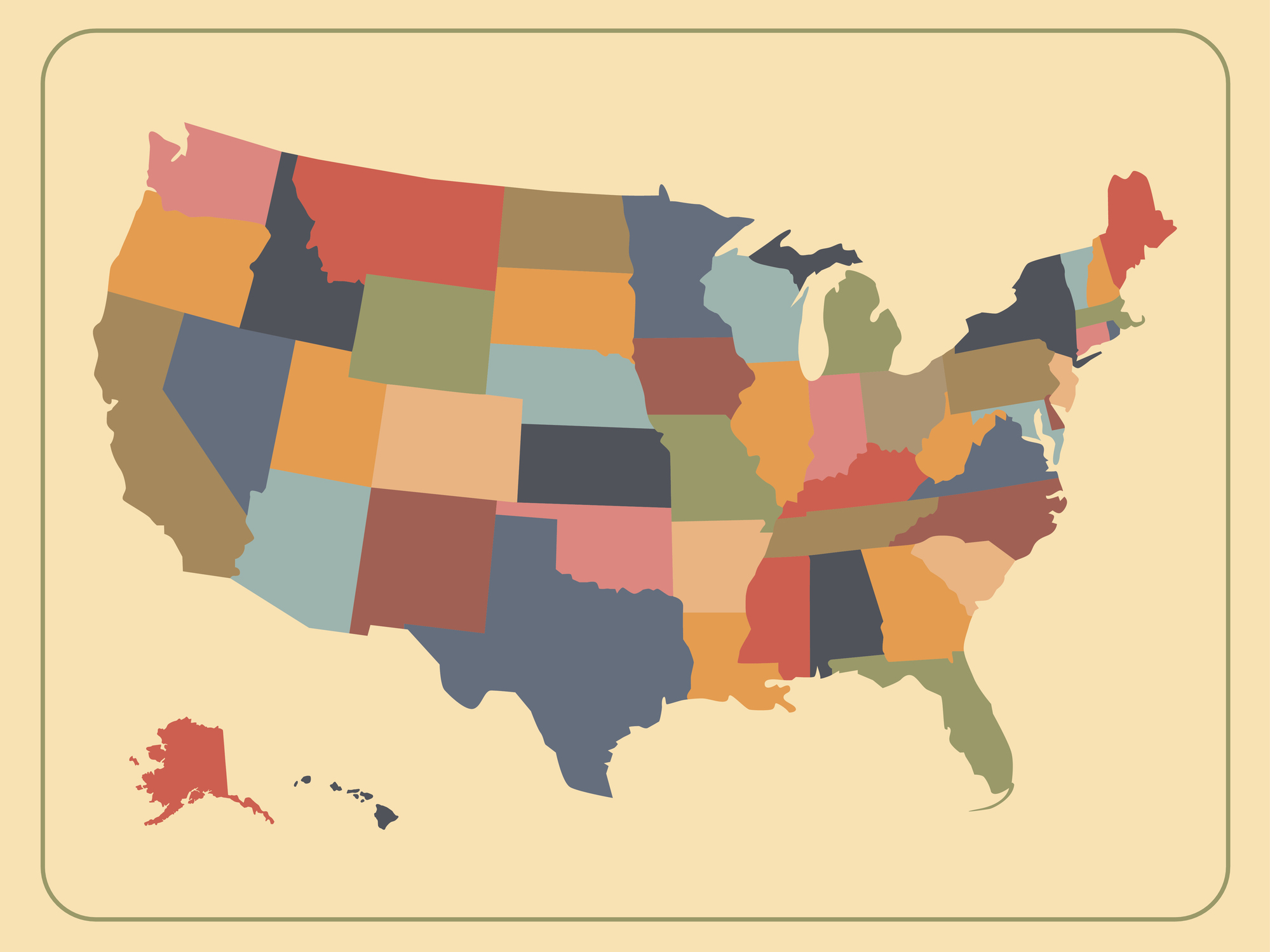
Welcome back! While many people may be thinking about their income taxes this time of year, several states are proposing and/or enacting several key tax changes.
So here are a few state tax news highlights in case you missed them:
- Alabama and Maryland have sales tax holidays in February, during which certain items are exempt from state sales tax (more coverage to follow).
- Colorado has a new tax credit, designed to help lower-income families with children under 17.
- Minnesota looks to bill HF18 to remove sales taxes on baby products like strollers and swings.
- Washington lawmakers seek to raise the state’s property tax cap from 1% to 3%, to keep up with inflation and population growth (Washington was one of the most expensive states for homeowners to live in last year).
As a reminder: California Gov. Gavin Newsom has extended state property tax deadlines for Los Angeles residents. Californians who qualify for the extension now have until April 2026 to pay property taxes previously due in 2025.
The announcement followed fires that destroyed parts of the state earlier this year and quickly became one of the most devastating disasters. The largest blaze consumed about 5,300 structures and devoured over 23,000 acres.
Because of the widespread destruction, California’s federal and state income tax returns were extended. But while the IRS's extension of the California tax deadlines has provided some relief, wildfire victims may face an uphill battle with insurance claims and home rebuilding.
We’ll be covering a few state tax updates every Thursday, so be sure to check back for more news on states. See also Kiplinger’s reports on state taxes:
State Tax Changes for 2025: What They Mean for Your Finances
New Law Delivers Tax Breaks to Natural Disaster Victims
Five States With the Largest EITC Checks
Sales Tax Holidays Are Going Away in Some States

Kate is a CPA with experience in tax, audit, and finance topics. As a tax writer at Kiplinger, Kate helps you and your wallet stay in the know.
Tax Refund Schedule: When Can You Expect Your IRS Check?

Now that we’re beginning to enter the thick of tax season, some may wonder: When I can expect my refund? While IRS tax refunds may be bigger this year, most will not get their federal tax refund until later in the filing season.
Below are a couple of timeframes the IRS has hinted at regarding tax refunds (Note: These are after the return has been accepted):
- Direct deposits can take up to 21 days to arrive.
- Mailed checks can take at least 30-60 days to arrive.
However, if you claimed the Earned Income Tax Credit (EITC) or the Additional Child Tax Credit (ACTC), your return will likely be delayed. The IRS expects returns with these refunds to roll out in March.
What other factors can affect my tax refund status? Your refund may also experience a delay if you file during the busiest time of the tax season. This is especially true if you submitted your return via paper mail-in, which generally processes 1-5 weeks slower than electronically filed returns. And, of course, if you owe any money to the IRS, all or part of your refund may go toward repaying your debt instead of in your wallet.
Otherwise, here is a general estimate of when you may expect your refund:
- Filed by Jan. 27. Direct deposit arrives by Feb. 17*. Mailed check arrives by March 28.
- Filed by Feb. 3. Direct deposit arrives by Feb. 24. Mailed check arrives by April 4.
- Filed by Feb. 10. Direct deposit arrives by March 3. Mailed check arrives by April 11.
*February 17 is President’s Day, a federal holiday. Returns may experience mail and/or processing delays.
For the complete federal tax refund schedule, check out Kiplinger’s report, IRS Income Tax Refund Schedule 2025: When Will Your Refund Arrive?
….Kiplinger will also add more dates to this blog as tax season progresses.
How do I check the status of my tax refund? You can check your refund status using the IRS “Where’s My Refund?” tool or by downloading the IRS2Go app. There’s also the automated IRS refund hotline at 800-829-1954 which may be quick.
When can I expect my state income tax refund? It depends. While some states process refunds within a week, others may take three months or longer. Each state has a different refund schedule. Check your state’s Department of Revenue website for further information.
- Kate
Proposed Legislation Targets the EV Tax Credit, Electric Vehicle Fees
In the news this morning: Two Republican senators have recently reintroduced bills involving electric vehicle (EV) incentives and costs in the United States.
Sen. John Barrasso (R-Wyo.), the Republican whip, proposed the Eliminating Lavish Incentives to Electric (ELITE) Vehicles Act (S. 541). The bill would:
- Repeal the $7,500 tax credit for new EV purchases
- End the $4,000 tax credit for used EVs
- Eliminate federal incentives for EV charging infrastructure
- Close the "leasing loophole" that allowed certain taxpayers and foreign entities to evade restrictions on EV incentives
If passed, those changes would take effect 30 days after the bill is signed into law.
“Repealing these reckless tax credits from the Biden administration once and for all will stop Washington from giving handouts to our adversaries and high-income individuals. Wyoming families should not foot the bill for expensive electric cars they don’t want and can’t afford,” Barrasso said in a release regarding the bill.
Simultaneously, Sen. Deb Fischer (R-Neb.) has put forward a separate bill that would impose a new $1,000 fee on EV purchases at the point of sale. This Fair SHARE Act fee is designed to roughly match the federal fuel taxes paid by gasoline-powered vehicle owners over 10 years.
In a release, Fischer explained the rationale behind the fee, stating, “EVs can weigh up to three times as much as gas-powered cars, creating more wear and tear on our roads and bridges. It’s only fair that they pay into the Highway Trust Fund just like other cars do. The Fair SHARE Act will require EVs to pay their fair share for the upkeep of America’s infrastructure.”
The senators argue these proposals would create a more equitable system between electric and conventional vehicle owners.
If enacted, the bills could significantly alter the financial landscape for potential EV buyers and the EV market as a whole. However, as with all proposed legislation, the proposals must pass Congress to become law.
Related: Is the EV Tax Credit Going Away? AND How the EV Tax Credit Works

Kelley simplifies federal and state tax information, news, and developments to help empower readers. She has over two decades of experience advising on and covering education, law, finance, and tax as a corporate attorney and business journalist.
Tax News: SALT Deduction Proposals for 2025
The state and local tax (SALT) deduction is again at the center of congressional debate. This deduction allows itemizing taxpayers to deduct certain state and local taxes from their federal taxable income, including income, property, and sales taxes. As the $10,000 cap on SALT deductions, introduced by the 2017 Tax Cuts and Jobs Act (TCJA), approaches its expiration at the end of this year, lawmakers are wrestling with its future.
Republican members of Congress have proposed various approaches. These range from a complete repeal of the SALT deduction, potentially generating an estimated $1 trillion in revenue over ten years by some estimates, to various modifications of the existing cap. Some proposals include:
- Making the current $10,000 cap permanent but doubling it to $20,000 for married couples
- Increasing the cap to $15,000 for individuals and $30,000 for married couples
- Restructuring the deduction to eliminate the income and sales tax components, allowing only property taxes to be deducted without a cap
Some reform proponents argue the current cap disproportionately affects residents of high-tax states, effectively resulting in double taxation. Some critics contend that removing or significantly raising the cap would primarily benefit high-income earners and potentially encourage states to maintain higher tax rates.
The revenue implications of these proposals vary. Some options could generate substantial federal income, while others might lead to significant revenue losses. This fiscal impact adds another layer of complexity to the debate.
Interestingly, the SALT deduction has created some unusual political alliances. Representatives from high-tax states, regardless of party affiliation, often find themselves on the same side of this issue.
As discussions continue, the outcome remains uncertain. However, any changes to the SALT deduction could impact taxpayers nationwide, particularly those in states with higher tax burdens, so keep an eye on tax changes involving this and other key deductions.
Learn More: SALT Deduction: Three Things to Know Now AND Will the SALT Deduction Cap Be Increased or Eliminated?
- Kelley
Is the IRS Closed on Presidents Day? What You Need to Know
Good morning! Presidents Day, observed February 17th, 2025, isn't just a day off. It’s also a timely reminder that tax season is well underway. The weeks surrounding Presidents Day typically see a surge in taxpayer activity as many begin preparing their returns.
Presidents Day is also a good opportunity to organize your tax affairs if you haven’t already. By leveraging the IRS's online resources and choosing efficient filing methods, you can confidently navigate the tax season and potentially receive your refund faster.
Here are some tips to get you started:
IRS: Closed for business, but online resources available: Like other federal agencies, the IRS will be closed on Presidents Day. This means no phone support, walk-in services, or processing on Feb 17. However, IRS.gov is available for tax questions and filing guidance.
Your IRS online account offers a way to manage your tax information. You can track payments, review prior year returns, and communicate with the IRS securely. The "Where's My Refund?" tool provides up-to-date status information for refund inquiries.
Filing tips for faster refunds. Consider e-filing your return and opting for direct deposit to expedite your refund. E-filing minimizes errors through built-in checks, while direct deposit ensures your refund arrives quickly and securely in your bank account. Fun fact: Most taxpayers are now e-filing.
For more on President’s Day and your taxes, see Four Things to Know About Presidents Day and the IRS.
Also see: IRS Refund Schedule 2025 and Here’s Why Tax Refunds Are $586 Bigger So Far This Year.
- Kelley
IRS Braces for Major Layoffs Amid Tax Season

The IRS is reportedly on the brink of a workforce reduction, potentially affecting thousands of employees as early as this week. This move comes at a critical time during the ongoing tax filing season. It is part of a broader federal government restructuring effort led by President Trump and Elon Musk's Department of Government Efficiency (DOGE).
- The layoffs are expected to primarily target probationary employees who have been with the agency for less than two years and lack the job protections of longer-serving staff.
- These proposed cuts follow a pattern seen across various federal agencies, where probationary employees have been terminated with little notice.
- The reductions will likely affect those who either declined a prior buyout offer or were not deemed essential for the current tax season.
While the exact number of IRS employees to be laid off isn't certain, the scale of the reduction is expected to be substantial. This has raised concerns about the potential impact on the agency's operations, particularly during this crucial tax filing period.
More updates to come.
Related: Some IRS Workers Must Wait Until May to Take Buyout Offer and What Trump's Hiring Freeze Means for Your Taxes and the IRS

Kelley simplifies federal and state tax information, news, and developments to help empower readers. She has over two decades of experience advising on and covering education, law, finance, and tax as a corporate attorney and business journalist.
Tax News: DOGE, Musk Want Access to Confidential IRS Data
Good morning. Today, we’re kicking off reporting with developments involving Elon Musk and his Department of Government Efficiency (DOGE).
The latest controversy centers on an unprecedented request for the IRS Integrated Data Retrieval System (IDRS) access. That database contains sensitive personal tax information of millions of people, including tax returns, Social Security numbers, and other confidential data.
The request has raised concerns about taxpayer privacy and data security. DOGE's proposed agreement with the IRS would grant a team member 120 days of detail at the federal tax agency, potentially giving them access to this highly sensitive information.
The move has prompted strong reactions from lawmakers.
- Representative Jimmy Gomez (D-Calif.), a House Ways and Means Committee member, called it a "five-alarm warning" and urged bipartisan action to prevent potential misuse of taxpayer information.
- A group of taxpayers and unions have already filed a lawsuit in federal court, arguing the proposed DOGE access violates the law.
- Democratic Sens. Elizabeth Warren (Mass.) and Ron Wyden (Ore.) wrote a letter to the acting IRS Commissioner demanding information.
Many worry that this access could lead to privacy violations, targeted harassment, or other misuse of personal data. There are also concerns that DOGE's involvement with IRS systems during tax season could cause disruptions, leading to delays in tax refund processing.
As the controversy unfolds, it highlights the ongoing tension between government efficiency efforts and the protection of personal privacy. The situation also raises important questions about the balance between transparency, efficiency, and safeguarding sensitive personal information in government systems.
More to Know? See our report: DOGE, Musk Eye IRS Access to Sensitive Taxpayer Information
- Kelley
Overtime Taxes: What's Really Happening in 2025

As we navigate the ever-changing landscape of tax policy in 2025, one topic that's getting attention involves taxes on overtime pay. President Trump's promise to eliminate tax on overtime has reignited discussions about how we compensate workers for extra efforts.
Note: Currently, overtime pay is taxed just like regular wages. Workers who work more than 40 hours a week are entitled to at least 1.5 times their standard pay rate, but this extra income is subject to federal income tax, Social Security tax, and Medicare tax.
Trump's proposal to make overtime hours tax-free is part of a broader series of tax cut promises. While the idea might sound appealing, it has potential challenges.
For instance, some economists and policymakers have raised concerns about the potential loss of federal tax revenue and the possibility that employers might rely more heavily on overtime instead of hiring additional workers.
However, it's important to note that this is still merely a proposal. Any changes to tax policy must survive the complex legislative process, which is no small feat.
Meanwhile, the Department of Labor's new overtime rule, which would have raised the minimum salary requirement for overtime pay eligibility, has been halted. A Texas federal court struck down the rule, effectively blocking its nationwide implementation.
For now, workers should continue to plan their finances based on current tax laws. As always, stay tuned for updates and consult with a tax professional for personalized advice.
See: Taxes on Overtime Pay in 2025: What You Need to Know

Kelley simplifies federal and state tax information, news, and developments to help empower readers. She has over two decades of experience advising on and covering education, law, finance, and tax as a corporate attorney and business journalist.
Trump’s Tariff Agenda Rattles Global Trade

Welcome back. This is Gabriella, and today we’ll dive into tax policy developments that may impact you directly as a consumer.
President Donald Trump announced 25% blanket tariffs on all aluminum and steel imports entering the United States last week. The measures, justified as a tax to counter trade practices that “undermine national security,” are an expansion of his 2018 Section 232 tariffs.
The tariffs are slated to begin on March 12, 2025. However, they will add costs to everyday goods such as canned foods and beverages, housing, and cars.
Coca-Cola CEO James Quincey said the company imports aluminum for its cans from Canada, a major supplier of the U.S. for this raw material. To mitigate costs from tariff hikes, the company plans to increase the production of plastic bottles. It may also source aluminum domestically, but that would entail higher consumer prices.
Adding further pressure on trade: Trump declared plans to impose reciprocal tariffs on all U.S. trading partners including “whatever countries charge the United States” in a Truth Social post.
The functionality of reciprocal tariff policy has been cast under doubt by economists. Dartmouth Professor Douglas Irwin noted in an editorial with Wall Street Journal that it would entail surveying about 200 countries and 13,000 separate tariff lines. That would equal managing about 2.6 million individual tariff rates, which may be unsustainable.
“The lobbying pressures for exemptions and exceptions on the U.S. side would be enormous,” adds Irwin.
That’s not all: Trump recently said he aims to impose tariffs around 25% on auto and semiconductor imports, as well as pharmaceuticals entering the U.S. as soon as April 2.
Separately, Trump temporarily paused 25% blanket tariffs on Canada and Mexico until March 1, 2025. That may add further strain on the price of certain consumer goods.
Want to read more on this latest development? Check out: Trump’s Tariffs on Metals to Slam Soda and Housing Prices in U.S.

Gabriella is a seasoned finance journalist with 8 years of experience covering consumer debt, economic policy, and tax. She contributed to national dialogues on fiscal responsibility, market trends, and economic reforms.
Trump Takes Aim at NYC Congestion Pricing

The Trump administration clawed back federal support for New York City’s controversial congestion pricing toll, which charges commuters $9 during peak traffic hours.
The U.S. Department of Transportation informed Gov. Kathy Hochul of their decision to revoke approval of the program on Wednesday, which had been authorized on Nov. 21 by the Biden administration.
The congestion pricing program subsequently enacted on Jan. 5, 2025, is projected to bring in around $15 billion in critical revenue for the city’s Metropolitan Transit Authority (MTA). It would also reduce the gridlock south of 60th Street in Manhattan.
If the Trump administration is successful in rolling back the toll, there’s no telling if it would force state lawmakers to raise taxes to shore up revenue for the MTA’s aging infrastructure.
As reported by Kiplinger, some lawmakers have already expressed concerns that congestion pricing wouldn’t be enough to bridge the MTA’s budget shortfall. That may signal a tax increase in some other way, although Hochul has doubled down on her promise to halt tax hikes.
In response to the Trump administration’s push against congestion pricing, the MTA initiated legal proceedings in the Southern District of New York to safeguard the program.
“We’ll see you in court,” Hochul said.
This is a developing story, more to come.
For more on congestion pricing tolls: NYC Congestion Pricing: 'Ghost Tax' or Necessary Fee AND What's Happening With NYC Congestion Pricing?
- Gabriella
State Tax Holidays, Property Tax Relief, and Income Taxes

Good morning and welcome back! Here’s your weekly update on state tax news. Several states are proposing and/or enacting key tax changes this week.
So here are a few state tax highlights you might have missed:
- Florida Governor Ron DeSantis has expressed support for ending property tax in the Sunshine State, leaving some wondering whether Florida will eliminate property taxes permanently.
- Kansas residents are in their second month of state tax-free groceries. Before 2025, Kansas was one of the states that still tax groceries.
- Louisiana may have a ballot measure next month that, if approved, would raise school teacher pay, lower income taxes, and increase certain deductions. The catch? Some property tax exemptions would be limited and education trust funds would be liquidated. There’s a lawsuit against the proposal's verbiage on the ballot.
- Missouri lawmakers look to eliminate state taxes on income reported as a capital gain. There are currently nine states with low and no capital gains tax, so the idea isn’t new.
- South Carolina lawmakers are considering a slash on boat property tax by 50%, which would cut some of the highest "boating taxes" in the country.
A quick reminder: February kicks off this year’s 2025 Sales Tax Holidays in Energy and Preparedness. Several states are expected to participate in these special tax-free periods, where some items, like refrigerators and washing machines, can be purchased without paying state sales tax. If you’re in the market for a new home improvement this year, check back as Kiplinger adds to the report.
We’ll be covering a few state tax updates every Thursday. See also Kiplinger’s other reports on state taxes:
States With the Lowest Property Tax
Ten States With the Highest Sales Tax
States That Won't Tax Your Death

Kate is a CPA with experience in tax, audit, and finance topics. As a tax writer at Kiplinger, Kate helps you and your wallet stay in the know.
Tax Refund Schedule: State Tax Delays

As Kiplinger reported, the IRS was closed earlier this week due to a federal holiday, so that may have affected your federal return’s processing time. The IRS has also officially processed 23.5 million returns, though most will not get their federal tax refund until later this filing season.
Here is a general estimate of when you may expect your refund:
- Filed by Jan. 27. Direct deposit arrives by Feb. 18. Mailed check arrives by March 28.
- Filed by Feb. 3. Direct deposit arrives by Feb. 24. Mailed check arrives by April 4.
- Filed by Feb. 10. Direct deposit arrives by March 3. Mailed check arrives by April 11.
- Filed by Feb. 17. Direct deposit arrives by March 10. Mailed check arrives by April 18.
What factors can affect my tax refund status? Claiming the EITC, ACTC, filing late, or filing by mail are just a few components that may delay your return. For more information and a complete federal tax refund schedule, check out Kiplinger’s report: IRS Income Tax Refund Schedule 2025: When Will Your Refund Arrive?
State tax return delays. Unfortunately, we are only a month in and already have delays in state tax processing times:
- Colorado state tax returns should begin processing this week, according to state officials. Many residents are worried as the state’s filing season typically begins in late January.
- Kentucky has scheduled a transition to a new tax system from February 26th through March 14th. Any taxpayers who file during this time will not have their returns processed until operations resume. State officials are encouraging Kentuckians to file before the processing pause begins.
For more information on income tax returns and deadlines, see Kiplinger’s reports:
IRS Tax Refunds Are $526 Bigger This Year: Here's Why
States With 2025 IRS Tax Deadline Extensions
- Kate
IRS Fires Nearly 7,000 Employees

The IRS reportedly laid off 6,700 employees this week, a person familiar with the plans first told the Associated Press. The development comes barely a month into the tax filing season and has raised concerns about the agency’s ability to sustain operations as usual.
As reported by Kiplinger, the layoffs primarily target probationary employees who have been at the agency for less than two years and lack the job protections of longer-term workers. One anonymous source told the Guardian that some workers affected belonged to the compliance department. The compliance team ensures taxpayers meet their tax obligations voluntarily and on time, lessening the risk of tax evasion.
It may also impact those who declined a prior buyout offer or were not deemed essential for the current tax season. For the time being, those in Taxpayer Services, Information Technology, and Taxpayer Advocacy are spared from cuts until mid-May.
The reductions are part of a directive of President Donald Trump and Elon Musk, who is leading efforts to reduce the federal workforce through the so-called Department of Government Efficiency (DOGE).
Before the layoffs, the agency had a headcount of about 100,000 workers. Half of those belong to critical tax filing groups. Additionally, the IRS often siphons employees from departments such as Identity Theft Victim Assistance to assist Taxpayer Services in processing phone calls during tax season. There’s no telling how this latest shakeup could impact your experience as a taxpayer.
For more information see: How Tax Delays Could Get Worse if Trump Downsizes the IRS.
Related: Some IRS Workers Must Wait Until May to Take Buyout Offer and What Trump’s Hiring Freeze Means for Your Taxes and the IRS.

Gabriella is a seasoned finance journalist with 8 years of experience covering consumer debt, economic policy, and tax. She contributed to national dialogues on fiscal responsibility, market trends, and economic reforms.
Colorado Dept. of Revenue Now Processing Tax Returns
Residents of Colorado can finally breathe easier. The Colorado Department of Revenue announced Friday that it’s officially accepting 2024 tax returns.
The department began processing income tax returns from third-party services on February 21. It also shared a new, online tax benefits hub aimed at helping taxpayers identify dozens of tax breaks they may be eligible for. Colorado had delayed the acceptance of returns this tax season as its Department of Revenue worked to implement 26 changes to the tax code, including 14 new tax credits.
To find out more about tax benefits provided by the state, you can use the new online source Tax.Colorado.gov/Save Money. The savings, which range from property, rent, and heat tax breaks for older adults to credits for folks using electric bicycles, are organized into four high-impact groups.
- Families and individuals
- Older adults and retirees
- Charitable contributions
- Climate-friendly
You won’t want to miss out on some often-overlooked family tax credits for the 2024 tax year. Some could potentially save you thousands of dollars. These include but are not limited to:
- Colorado Earned Income Tax Credit: A couple filing jointly with two children and a combined income of $50,000, for example, would receive $1,334.
- Colorado Child Tax Credit: Get up to $1,200 per child (for children under 6).
- Family Affordable Tax Credit: Receive up to $3,200 per child under the age of 6 and up to $2,400 per child under the age of 16.
- Colorado Promise Higher Education: Varies by school, but provides qualifying students with tuition and fees for their first two years of college.
You can also use the Get Ahead Colorado state tool to check your eligibility for state tax credits. Once you file your taxes, you can track your Colorado tax refund online on the Where’s My Refund banner. To check the status of your federal tax return, visit the IRS.gov online tool.
Related: New Colorado Tax Credit: What’s the Scoop? and Why IRS Tax Refunds Are Bigger This Year.
- Gabriella
Strategies to Minimize Taxes on Your Social Security Benefits

Good morning! Let's talk a little about Social Security and your taxes.
Many retirees face the unexpected challenge of paying taxes on their Social Security benefits. Depending on your income, up to 85% of your benefits could be subject to federal tax. For single filers, taxes generally kick in when combined income exceeds $25,000; for married couples filing jointly, the threshold is $32,000.
While proposals to eliminate these taxes are floating around Capitol Hill, their future is far from certain. So, if you're a retiree, you should focus on strategies you can control to minimize your tax burden.
Here are some approaches to consider:
Delay Social Security: Delaying benefits until age 70 can increase your monthly payment, providing more flexibility in managing taxable income.
Leverage Roth Accounts: Converting traditional IRA or 401(k) funds to a Roth account can lead to tax-free withdrawals in retirement.
Manage Investments: Shifting to tax-efficient investments like municipal bonds can lower taxable income.
Offset Capital Gains: Use tax-loss harvesting to offset capital gains and reduce your adjusted gross income.
Time Withdrawals Strategically: Take smaller withdrawals from retirement accounts before required minimum distributions (RMDs) begin to spread out your tax burden.
Make Qualified Charitable Distributions (QCDs): If you're 70½ or older, use QCDs from your IRA to satisfy RMDs without increasing taxable income.
Consider State Taxes: Moving to a state with no income tax can significantly reduce your overall tax burden.
Remember, each approach has potential drawbacks, and each retiree's situation is unique. Consulting a financial advisor or tax professional can help you develop a personalized strategy to minimize taxes on your Social Security benefits and maximize your retirement income.
To learn more, see our report: How to Reduce Taxes on Social Security Benefits in 2025 AND Social Security and Your Taxes: Five Things to Know.
-Kelley
Tax News Update: Trump Tax Cuts, Musk, DOGE Dividend Checks and IRS Layoffs

As we approach the end of February, this tax season has been marked by significant shifts and heated debates. From leadership shakeups to radical proposals, here's a rundown of some of the latest tax news.
Trump Tax Cuts: The House and Senate are pursuing different strategies to address the expiring provisions of the 2017 Tax Cuts and Jobs Act.
House Republicans are advocating for one comprehensive bill that would renew the Trump-era tax cuts and incorporate additional measures, such as eliminating taxes on tips, overtime, and Social Security benefits.
In contrast, Senate Republicans propose a two-bill approach, focusing first on increasing military and border security spending, with tax cuts to be addressed in a second bill.
This divergence sets the stage for a potential showdown between the chambers, with significant stakes: failure to act could result in a $4 trillion tax hike if the TCJA provisions expire at the end of the year.
Musk's Controversial Role: Elon Musk's involvement in government efficiency efforts has raised concerns. As the apparent head of the newly established Department of Government Efficiency (DOGE), Musk has been granted unprecedented access to federal payment systems. DOGE also recently initiated eliminating 7,000 IRS jobs during tax season.
As Kiplinger has reported, that has sparked debates about data security and the appropriateness of a private citizen's significant influence over government operations.
Potential "DOGE Dividend" for Taxpayers? Musk is considering a proposal to return some of the “savings” achieved by DOGE to tax-paying households. If DOGE meets its $2 trillion savings goal, this, according to Musk and Trump administration officials, could amount to checks of about $5,000 per household.
However, the "DOGE Dividend" is widely criticized as unrealistic and fiscally irresponsible, given the current federal deficit and lack of genuine government savings to distribute.
Experts argue that any funds allocated for such payouts would add to the national debt, making the proposal economically unsound and potentially harmful in the long term.
IRS Leadership Vacuum: The IRS is operating without a confirmed Commissioner following Danny Werfel's resignation on January 20. President Trump's nominee, former Rep. Billy Long, awaits Senate confirmation, leaving the agency in flux during peak tax season.
Workforce Disruptions: The Trump administration's "deferred resignation program" has created significant complications for the IRS. While critical employees are prohibited from accepting buyouts until May 15, 2025, the offer has caused confusion and potential staffing shortages during this crucial period.
As we navigate this complex tax landscape, staying informed and seeking professional advice when needed is crucial.

Kelley simplifies federal and state tax information, news, and developments to help empower readers. She has over two decades of experience advising on and covering education, law, finance, and tax as a corporate attorney and business journalist.
Long-Term Care Expenses Tax Deduction: Key Points to Know

As healthcare costs continue to rise, many are looking for ways to offset the financial burden of long-term care. Fortunately, the IRS offers some relief through a tax deduction for qualifying long-term care expenses. Here's what you need to know about deducting these costs on your tax return.
Eligibility for Deductions: To qualify for long-term care tax deductions, a licensed healthcare practitioner must deem the care medically necessary. The individual receiving care must be certified as chronically ill, meaning they cannot perform at least two activities of daily living without substantial assistance for at least 90 days or require supervision due to severe cognitive impairment.
Deductible Expenses: Qualifying expenses include various services, from preventive care to rehabilitation. In-home care, assisted living, and nursing home services are all potentially deductible. Even the cost of attending medical conferences related to a chronic illness might be eligible.
To claim these deductions, you must itemize on your tax return using Schedule A (Form 1040).
It's important to note that only unreimbursed medical expenses exceeding 7.5% of your adjusted gross income (AGI) are deductible.
Long-Term Care Insurance Premiums: If you have long-term care insurance, you may also be able to deduct a portion of your premiums. The deductible amount is based on your age, with higher limits for older individuals.
Note: While these deductions can provide tax relief, keep detailed records of all expenses and consult a tax professional to help maximize your benefits if needed.
To learn more, see Gabriella’s report on how to Deduct Expenses for Long Term Care on Your Return.
- Kelley
More IRS Turmoil: Acting Commissioner Stepping Down

The IRS faces significant challenges as Acting Commissioner Doug O'Donnell has just announced his retirement during the peak of tax season. This leadership vacuum comes at a critical time for the agency, which is already dealing with several pressing issues:
Hiring Freeze: President Trump implemented a federal hiring freeze, forcing the IRS to rescind job offers with specific start dates in February. The staffing shortage may impact the agency's ability to process returns efficiently and provide adequate taxpayer support during this filing season.
Learn more: What Trump's Federal Hiring Freeze Means for the IRS
DOGE Access: Adding to the agency's concerns, Elon Musk's Department of Government Efficiency (DOGE) has requested access to the IRS' Integrated Data Retrieval System (IDRS). This system contains sensitive tax information for millions of Americans. DOGE's request, which hasn’t yet been granted, has raised alarms among privacy experts and some lawmakers, who fear potential misuse of this confidential data.
Related: DOGE IRS Data Request Sparks Privacy Concerns
Buyout Offers: The IRS also faces potential staff losses as employees consider buyout offers set to take effect after the current tax season. This could result in a significant loss of expertise within the agency.
Learn more: Trump Wants You Out of the IRS, But You'll Have to Wait
ERS? President Trump has proposed replacing the IRS with an "External Revenue Service" funded by tariffs. This suggestion and other discussions about significant changes to the agency's role have created uncertainty among IRS employees and taxpayers.
Related: Trump Faces Backlash over Proposed ERS and What Are Tariffs and Who Pays?
Stay tuned. The agency's ability to adapt to these pressures will likely impact government revenue collection and public trust in the U.S. tax system.
- Kelley
Why Is Tax Season 2025 Off to a Slow Start?
The 2025 tax season is underway, but it's off to a slower start than previous years. The IRS has reported receiving and processing fewer tax returns than expected at this point in the season. This trend raises questions about what might be causing the delay in filings.

Several factors could be contributing to this slower pace:
Changes in Tax Forms: 1099-K forms going to more taxpayers might be causing hesitation or uncertainty.
Political Climate: The current political environment could be influencing taxpayers' decisions about when to file their returns.
Extended Deadlines: Some states affected by federal disasters have delayed tax filing deadlines, which may impact the overall filing rate.
IRS Staffing Concerns: Recent news about IRS staff cuts has raised concerns about possible delays in processing returns and issuing tax refunds.
Despite these challenges, remember that the filing deadline remains April 15, 2025, for most filers.
As the tax season progresses, it will be interesting to see if the filing rate picks up and how the IRS manages its workload.

Kelley simplifies federal and state tax information, news, and developments to help empower readers. She has over two decades of experience advising on and covering education, law, finance, and tax as a corporate attorney and business journalist.
Trump’s 'One Big Beautiful Bill' Concept Narrowly Advances

The House passed a Republican budget blueprint that calls for $4.5 trillion in tax cuts and a $2 trillion reduction in federal spending over a decade.
The measure dubbed “one big, beautiful bill,” barely passed in a vote of 217 to 215, as G.O.P lawmakers are split between what federal programs to chop down to finance multi-trillion dollar tax cuts — which policy analysts say mainly benefit the wealthy.
The blueprint sets the foundation for House Republicans to outline tax cuts worth up to $4.5 trillion over the next 10 years. However, it doesn’t pinpoint which tax breaks will be reduced or eliminated to achieve this lofty goal. It’s also a greenlight for lawmakers to roll back $2 trillion in federal spending across the nation, which can impact popular programs like Medicaid and food aid programs like SNAP for those most vulnerable.
As reported by Kiplinger, a 50-page policy menu prepared by the House Budget Committee was obtained by Politico, listing a flood of family tax breaks at risk of facing significant reductions or an inevitable erasure.
The menu lists a series of current tax breaks that are in danger, these include but are not limited to:
- Tax breaks for families
- Education tax breaks
- Home Mortgage Interest write-off
- State and Local Tax (SALT) deduction
The comprehensive legislative tax plan aims to fund border security, energy policy, and major tax cuts. Among proposals on the agenda, include eliminating taxes on tips and extending certain tax breaks tied to the Tax Cuts and Jobs Act (TCJA) of 2017. There’s a lot of legislative action that has to take place before a full reconciliation bill can become law. But these and other potential changes may impact you, so stay tuned.
Related: Key Family Tax Breaks Are on the GOP Chopping Block This Year, and Trump, GOP, Want ‘One, Big Beautiful Bill’ With Trillions in Tax Cuts

Gabriella is a seasoned finance journalist with 8 years of experience covering consumer debt, economic policy, and tax. She contributed to national dialogues on fiscal responsibility, market trends, and economic reforms.
IRS Tax Refunds Come in $1,000 Smaller
It’s been a month since the official kick-off to the 2025 tax season, and tax refunds are coming in smaller.
The IRS reported that the average direct deposit refund amount was $2,252 based on 33 million tax returns processed for the week ending February 14. That’s down roughly $1,000 from the same period a year ago when the agency processed over 34 million returns.
The tax agency expects more than 140 million individual tax returns to be filed by the April 15 deadline. That means there’s more time for tax refunds to increase. Why are they smaller?
Under current law, the IRS cannot issue refunds for tax returns claiming the Earned Income Tax Credit (EITC) or the Additional Child Tax Credit (ACTC) before mid-February. The current statistics won’t reflect those refund amounts.
What else can make your refund slightly bigger this year? Put frankly, inflation. The standard deduction amounts for returns you’re filing now, in early 2025, are slightly higher. Income tax brackets were also adjusted for inflation, which may impact eligibility for tax credits and deductions you can claim.
If you’ve already filed your tax return and are waiting for your refund, you can check your refund status using the ‘Where’s My Refund’ tool directly with the IRS. For taxpayers that expect an EITC or ACTC refund, the status of your refund is available by February 22. The first refunds should be delivered by March 3, per the IRS.
Related: IRS Tax Refunds Are $1,000 Smaller This Year: Here’s Why
- Gabriella
Trump’s Plan to End Taxes on Social Security Income Forgets Your Children

President Donald Trump’s plan to end taxes on Social Security income sounds like a good deal for retirees and those nearing retirement — not so much for younger generations.
Eliminating income taxes on Social Security benefits would reduce revenues by $1.5 trillion over a decade and increase the federal debt by 7% by 2054, according to the Penn Wharton Budget Model, a non-partisan, research initiative at the University of Pennsylvania.
Only the highest-earning Millennials in their 40s would see a welfare gain equal to a one-time payment of $12,400. However, anyone in their 40s with a gross income between the 40th and 60th percentile would see no gain at all.
Individuals in their 30s, and those who have not yet been born, may face the largest losses in welfare — ranging from $1,100 to $22,000 over their lifetime. It gets worse the younger you are.
Already retired? If you’re among the highest earners, you stand to gain between $11,000 and $135,000 in welfare benefits. Meanwhile, those in the two lowest quintiles would just see a positive gain between $1,000 and $2,000.
The truth is that ending taxes on Social Security income would have ripple effects across every age group. While only the highest earners over the age of 40 may benefit in some capacity — every person under that age limit will lose.
If you want to learn more, check out: Trump’s Plan to Eliminate Taxes on Social Security Forgets Your Children.

Gabriella is a seasoned finance journalist with 8 years of experience covering consumer debt, economic policy, and tax. She contributed to national dialogues on fiscal responsibility, market trends, and economic reforms.
State Property Taxes, Income Tax Rates, and February news
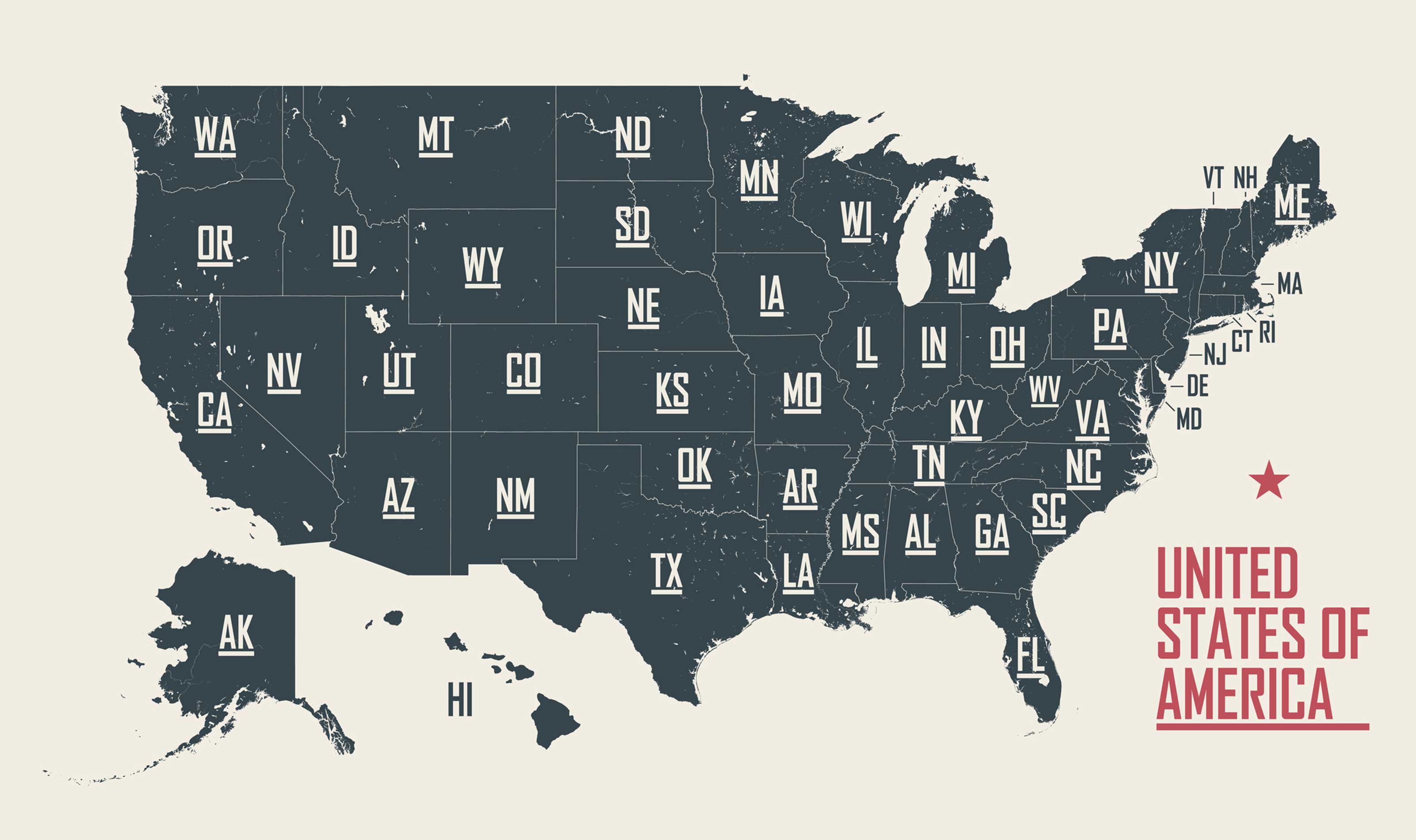
Good morning, and welcome back! Here’s your weekly update on state tax news. Several states are proposing and/or enacting key tax changes.
So here are a few state tax highlights you might have missed in the last week:
- Illinois is considering Senate Bill 1862, which would eliminate property taxes for anyone who has owned a home for 30 or more years. The proposal, if approved, could provide relief to residents in one of the most expensive states for homeowners.
- Iowa residents may now enjoy one of the lowest income tax rates in the country. Iowa’s new tax rate has dropped nearly two percentage points in 2025 alone.
- Kentucky residents are also in for a treat. Kentucky’s new income tax rate is lower than before, but planned state tax return delays may affect when taxpayers see 2025 refunds.
- New York City motorists have a bit of drama: President Trump’s administration has ended support for NYC congestion pricing. Currently, commuters are charged $9 for entering Manhattan’s Lower District during “peak hours.”
- Ohio Senate Bill 81 proposes freezing property tax increases for primary homes owned by older adults. At present, Ohio homeowners 65 and older may qualify for the homestead exemption program.
A quick reminder for February: The last round of Social Security payments is coming out for those born between February 21 and 28. What does that mean for your taxes? Well, up to 85% of your Social Security income may be taxed, and it’s never too early to start planning for next year. Here are seven ways to reduce taxes on Social Security Benefits in 2025.
For more information on retirement taxes, particularly as they pertain to state tax law, check out Kiplinger’s reports:
States That Tax Social Security Benefits in 2025
Ten Tax-Friendly States for Retirees
States That Don't Tax Pension Income in 2025
Retirement Taxes: How All 50 States Tax Retirees

Kate is a CPA with experience in tax, audit, and finance topics. As a tax writer at Kiplinger, Kate helps you and your wallet stay in the know.
Tax Refund Schedule and What to Watch

As Kiplinger reported, this year's IRS tax refunds are $1,000 smaller. But this shouldn’t dampen the excitement of receiving yours. As of Valentine’s Day, the IRS has officially processed 33 million returns, though most will not get their federal tax refund until later this filing season.
Here is a general estimate of when you may expect your refund:
- Filed by Jan. 27. Direct deposit arrives by Feb. 18. Mailed check arrives by March 28.
- Filed by Feb. 3. Direct deposit arrives by Feb. 24. Mailed check arrives by April 4.
- Filed by Feb. 10. Direct deposit arrives by March 3. Mailed check arrives by April 11.
- Filed by Feb. 17. Direct deposit arrives by March 10. Mailed check arrives by April 18.
- Filed by Feb. 24. Direct deposit arrives by March 17. Mailed check arrives by April 25.
What factors can affect my tax refund status? Claiming the EITC, ACTC, filing late, or filing by mail are just a few components that may delay your return. For more information and a complete federal tax refund schedule, check out Kiplinger’s report: IRS Income Tax Refund Schedule 2025: When Will Your Refund Arrive?
Also, as we continue through the filing season, be sure to read the fine print. Tax providers sometimes offer options for you to get your refund early. While seemingly advantageous, a couple of these early tax refund options could trap your cash. For instance, last year’s refund anticipation loans and checks cost taxpayers $842 million in fees, with some interest rates as high as about 36%.
For more information on what to look out for this filing season, see Kiplinger’s other reports:
Mail Theft Crisis: Why Your IRS Tax Refund Is At Risk
IRS Back Taxes Scam Call Steals Millions
- Kate
Feb. 28 ‘Economic Blackout’: What You Need to Know

Welcome back. Have you heard about the nationwide "economic blackout" that was scheduled for Friday, February 28, 2025? It's a grassroots initiative organized by The People's Union USA, a movement founded by John Schwarz, a meditation instructor from the Chicago area.
The 24-hour consumer spending halt was designed to demonstrate the collective power of consumers and protest against various economic and social issues.
The boycott called for participants to refrain from all non-essential purchases from midnight to 11:59 p.m. EST on February 28. It primarily targeted major retailers like Amazon, Walmart, Best Buy, fast-food chains, and gas stations. The organizers encourage supporting small, local businesses for essential items.
Key aspects of the initiative include:
- Protesting corporate greed and high prices
- Opposing the rollback of diversity, equity, and inclusion (DEI) programs by major companies
- Highlighting the perceived influence of billionaires and large corporations on everyday life
Schwarz describes the movement as "economic resistance" to expose how the system is "rigged" against everyday people in the U.S. The People's Union USA describes itself as a non-partisan organization,
As of the day before the event, the movement had gained traction on social media and received support from various activists and faith leaders. The organization had also reportedly raised over $70,000 through a GoFundMe campaign.
While the immediate impact of a single-day boycott may be limited, organizers say they hope it sparks broader discussions about economic fairness and corporate responsibility. The People's Union USA is reportedly planning potential additional efforts, like a broader economic blackout on March 28 and targeted weeklong boycotts against specific retailers.

Kelley simplifies federal and state tax information, news, and developments to help empower readers. She has over two decades of experience advising on and covering education, law, finance, and tax as a corporate attorney and business journalist.
EV Tax Credit Filing Mistake for Your 2024 Return?
Some electric vehicle (EV) buyers are facing unexpected hurdles with their tax returns. NPR reports that some taxpayers are seeing their returns rejected due to federal EV tax credit complications.
The credit, worth up to $7,500 for eligible new vehicles, is available for eligible buyers at the point of sale. While this change, effective as of last year, has been popular, it is also reportedly leading to reporting issues for some dealers and confusion for some buyers trying to claim the benefit on their tax returns. (According to NPR, rejected returns have stemmed from situations where dealers weren’t properly registered to pass on EV tax credit savings to buyers.)
Related: 'Instant' EV Tax Credits Are a Hit
This is happening as the future of the EV tax credit, a key part of the Inflation Reduction Act, is now uncertain. As Kiplinger has reported, the Trump administration and many Republican lawmakers plan to eliminate the credit.
For example, President Trump signed an executive order, "Unleashing American Energy," to dismantle EV incentives and related policies. Additionally, two Senate Republicans have proposed legislation to eliminate the credit and/or separately to impose a $1,000 fee at the time of EV purchase.

Key Points
- For now, the current federal EV tax credit remains in effect.
- If desired, eligible buyers can receive the credit as an up-front rebate at the point of sale, with registered dealers providing the credit value to the buyer. The dealer is then reimbursed by the IRS.
- However, the complexity of the credit requirements has reportedly led to some tax return issues, as buyers and dealers navigate eligibility rules and reporting procedures.
As the debate over EV incentives continues, consumers interested in purchasing an electric vehicle should stay informed about the evolving landscape of EV tax credits. With potential policy changes, the current tax credit opportunity might be time-limited.
Related: Is the EV Tax Credit Going Away? AND How the EV Tax Credit Works
- Kelley
Update: Taxes on Social Security Benefits Going Away
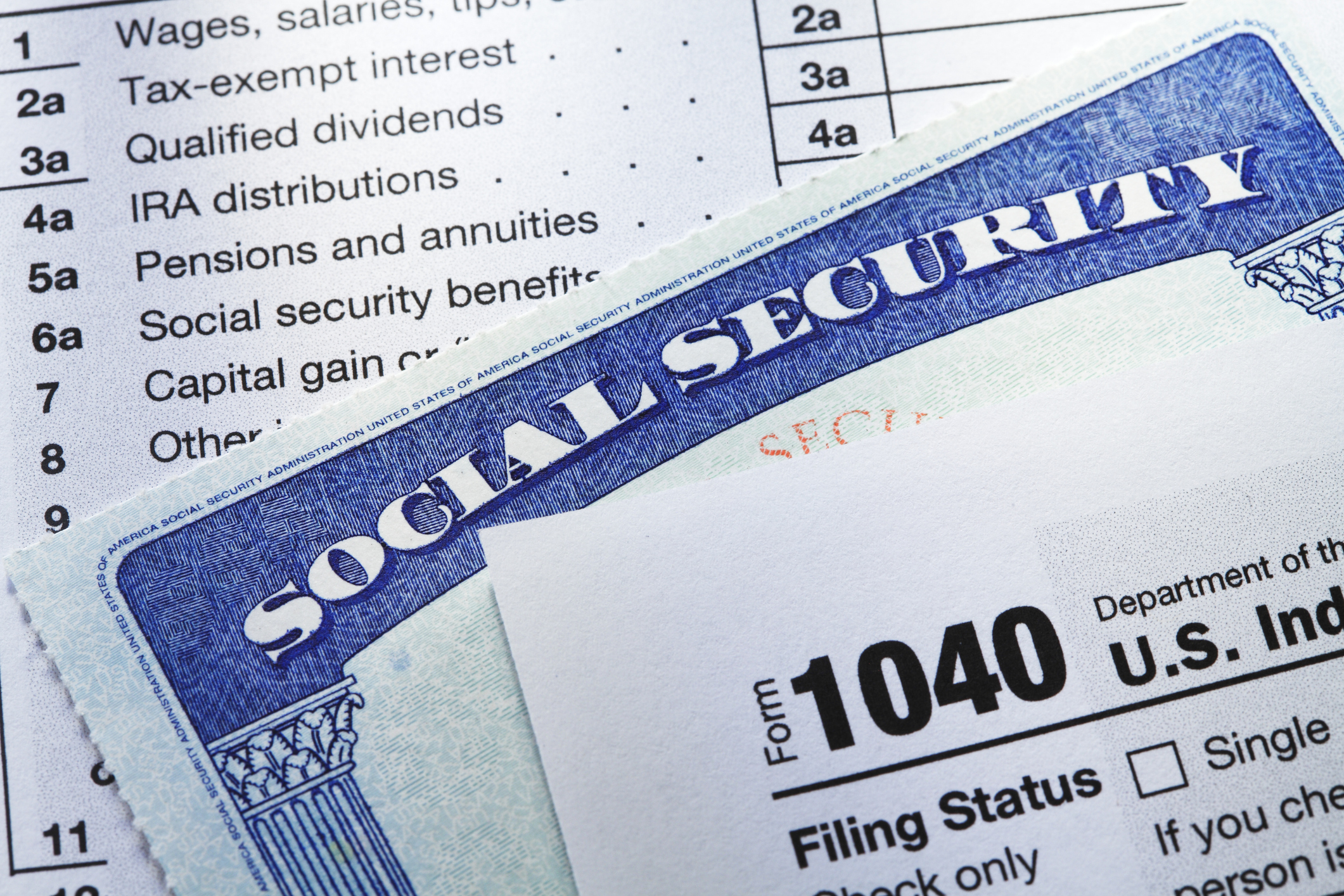
Could retirees see a break on their federal taxes next year? The "You Earned It, You Keep It Act," sponsored by Rep. Angie Craig (D-Minn.), proposes eliminating the federal income tax on Social Security benefits. The bill also proposes tax relief for older adults and is designed to ensure the long-term stability of Social Security.
But will it pass? Similar proposals, including the "RETIREES FIRST Act" and President Trump's pledge to eliminate Social Security taxes, are on the table, but their fate remains uncertain.
Read more about the proposed legislation, potential benefits, and challenges: Will Retirees Stop Paying Tax on Social Security Next Year?
Your Retirement Income and the IRS: Tax Changes to Know
Good morning. Let’s start today with a look at the shifting retirement tax landscape. Many things are happening at the federal and state levels, including reforms to lower tax rates (or extend existing tax cuts) and, in some cases, to reduce or eliminate taxes on Social Security (See our previous post).
Meanwhile, navigating the world of retirement taxes can feel like a whole new ballgame. Gone are the days of simple W-2s, replaced by a mix of Social Security, required minimum distributions, and investment income, each with its own tax rules.
So, it’s more important than ever to appreciate and understand how your hard-earned retirement income will be taxed.
Our recent article summarizes some key aspects of retirement income taxes to help you make informed decisions and keep more of your hard-earned money where it belongs — with you.
Retirement Income Taxes and the IRS: What Every Retiree Should Know
- Kelley
Tax Policy News: Trump Says Tariffs Are on for March 4

As March 4, 2025, approaches, the global economy braces for a potential shift in international trade. President Trump is poised to implement a series of tariffs that could upend economic relationships with the United States' largest trading partners.
As Kiplinger has reported, the proposed tariffs are sweeping: a 25% levy on all imports from Canada and Mexico (with a 10% exception for Canadian energy), and a doubling of existing tariffs on Chinese goods to 20%. The move would affect an estimated $1.5 trillion annual imports, potentially sending shockwaves through global markets.
Trump's rationale? He argues these measures are necessary to combat the influx of illegal drugs, particularly fentanyl, into the United States. However, critics say this approach is a blunt instrument that could have far-reaching consequences.
The impact on American consumers and businesses could be significant.
- Some experts estimate that these tariffs could result in a tax increase of $120 billion to $225 billion annually for U.S. citizens.
- Industries from automobiles to agriculture and even many small businesses are holding their breath, anticipating potential disruptions to supply chains and increased costs.
Meanwhile, China is reportedly considering retaliatory measures, targeting American agricultural and food products. Canada and Mexico have been scrambling to appease Trump's demands, with Canada even appointing a "fentanyl czar" in an attempt to address U.S. concerns.
As March 4th approaches, uncertainty reigns. Will Trump follow through, or will there be another last-minute reprieve? For now, he says the tariffs are on. According to the Associated Press, Trump told reporters:
“Tomorrow — tariffs 25% on Canada and 25% on Mexico. And that’ll start. They’re going to have to have a tariff.”
Stocks slid in response to the news.
One thing is clear: if implemented, these tariffs could mark a dramatic shift in U.S. trade policy, with ripple effects felt across the global economy.
Learn More About Trump Tariffs: Food, Gas Prices to Spike If Trump Levies Tariffs, Tariffs: What They Are and How They Impact Your Wallet

Kelley simplifies federal and state tax information, news, and developments to help empower readers. She has over two decades of experience advising on and covering education, law, finance, and tax as a corporate attorney and business journalist.
ICYMI: 2025 Tax Deduction Change for Those Over 65
Taking a break from the March 4 Trump tariff talk: Have you seen the IRS inflation adjustments for 2025? There are some interesting changes, including for those 65 and older. The 2025 adjustments are relatively modest but could make a difference for tax returns typically filed in early 2026.
- For single filers and heads of households over 65, the extra standard deduction goes up to $2,000. (That's a $50 increase from 2024.)
- If you're married filing jointly, each qualifying spouse gets $1,600 — up $50 from last year.
- So, if both of you are 65 or older, you're looking at an extra $100 in deductions.
Here's something to remember: if you're 65 or older and blind, you can double those amounts. That means $4,000 for single filers or heads of household and $3,200 per qualifying spouse for joint filers.
Those changes are on top of the regular standard deduction increases. For 2025, it's $15,000 for single filers, $30,000 for married couples filing jointly, and $22,500 for heads of household.
These aren't huge changes for some, but depending on your situation and tax bracket, they could lower your tax burden. Checking with your tax advisor to see how these and other adjustments might affect your situation can help.
Related: How Inflation Impacts Your Taxes and 2025 Extra Standard Deduction Change for Those Over 65
- Kelley
Tariffs News: Trade War Hits Home, Target CEO Says Higher Prices Likely Soon

As the clock struck midnight on Tuesday, March 4, 2025, President Trump's long-threatened tariffs on Canadian and Mexican imports took effect. Those new taxes — 25% on most imports and an additional 10% on Canadian energy — mark a major shift in North American trade relations.
Tariffs are essentially taxes, and consumers ultimately bear the cost. As prices rise, the impact is felt directly in our wallets.
Canada's response was immediate, with outgoing Prime Minister Justin Trudeau imposing a 25% tariff on $20 billion of U.S. goods and planning more tariffs. China, facing its own tariff increase, also reportedly plans to impose duties on U.S. agricultural products. Mexico is expected to announce its response later today.
Target CEO Brian Cornell told CNBC, "These tariffs will undoubtedly lead to higher prices on many everyday products." As Kiplinger has reported, tariffs will cause consumers to pay more for shopping in 2025.
As global markets react and economists warn of potential economic challenges, this trade dispute is no longer talk — it will affect consumers. With the possibility of a full-blown North American trade war looming, the question remains: Who ultimately benefits?
- Kelley
RMDs: Avoid These Common Mistakes
Required Minimum Distributions (RMDs) are a non-negotiable aspect of retirement planning, but are you sure you're getting them right? The stakes are high; missteps can trigger IRS penalties and unnecessarily inflate your tax bill. With recent changes from the SECURE 2.0 Act adding to the complexity, even seasoned retirees can stumble.
Are you sure you're calculating your RMD correctly? Are you aware of the aggregation rules and how they apply to your accounts? And are you fully leveraging opportunities like Qualified Charitable Distributions to minimize your tax burden?
Read on to discover common RMD mistakes and protect your retirement strategy.
Related: Seven Common RMD Mistakes to Avoid AND Required Minimum Distributions: What Every Retiree Needs to Know
Social Security Fairness Act Benefit Boost? Don’t Forget the Taxes

For millions of retirees, a long-awaited change to Social Security benefits has arrived,. The recent passage of the Social Security Fairness Act introduced significant changes for many retirees, particularly those who were impacted by the Windfall Elimination Provision (WEP) and Government Pension Offset (GPO).
Over 3.2 million individuals are expected to see some increased benefits as a result of this act, according to the Social Security Administration (SSA). The law primarily affects public servants who receive pensions from work not covered by Social Security, including teachers, firefighters, police officers, and certain federal employees.
And while the increase in benefits is a positive development, it’s important to be aware of the potential tax implications of this additional income.
For example, the changes may bring some unexpected surprises for retirees, especially when it comes to how much of their Social Security benefits could be subject to tax or how their overall tax picture might shift.
Could it affect your tax situation? What about other costs tied to your income, like your Medicare premiums (IRMMA)? Those are questions worth asking as you plan.
So, if you’re one of the millions impacted by this change, now is the time to take a closer look at what it could mean for you from a tax perspective.
Also, stay tuned for more insights from Kiplinger on navigating this new chapter in Social Security benefits.
Social Security Fairness Act Tax implications: Are You Prepared?
Also from Kiplinger:
The Social Security Fairness Act: Good News for Retirees?
Social Security Fairness Act Back Payments Start Arriving
- Kelley
Trump Steadfast on Tariffs in Speech to Congress

President Donald Trump delivered his State of the Union address to Congress and the nation Tuesday night — and taxes, particularly tariffs, made a splash.
Notably, the president omitted the fact that his latest 25% tariffs on top trading allies Canada and Mexico have sent the stock market tumbling. China was also hit by an additional 10% duty, one month after the Trump administration had placed a 10% tariff on the country. As a result, the Dow plunged 670 points by the closing bell, its worst day in over a week.
At the same time, retail giants like Target are warning shoppers of price hikes on fruits and vegetables as soon as this week. Target CEO Brian Cornell said the company relies on Mexican produce during winter months. Trader Joe’s, which also carries produce from Mexico — like avocados — and frozen items from Canada, could see prices increase as a consequence of tariffs.
“Tariffs are about making America rich again and making America great again. And it’s happening and it will happen rather quickly,” Trump said during his address. “There will be a little disturbance, but we’re ok with that.”
The disturbance refers to rising market fears, a destabilized stock market, and rising prices on everyday goods, from your clothes and food, to furniture and cars. It’s also a stark departure from President Trump’s promise on “Day One” to lower grocery prices and inflation.
As reported by Kiplinger, Canada, Mexico, and China are retaliating against the Trump administration’s tariffs. The actions are likely to worsen the state of your wallet. If you didn’t know, Canada exports eggs to the U.S. With eggs already scarce due to the bird flu, a trade war is not the best news.
That’s not all — Trump also reaffirmed reciprocal global tariffs effective April 2, citing President William McKinley’s as an example of the positives of tariffs.
As a note: McKinley’s final words on tariffs in 1901 were “Isolation is no longer possible or desirable.” He added, “Commercial wars are unprofitable.”
Related: Trump’s Trade War Targets Your Groceries

Gabriella is a seasoned finance journalist with 8 years of experience covering consumer debt, economic policy, and tax. She contributed to national dialogues on fiscal responsibility, market trends, and economic reforms.
Thousands of IRS Employees Take Trump Buyout Offer
The National Treasury Employees Union estimates that up to 5,000 IRS staff accepted the deferred resignation offer from the Office of Personnel Management (OPM), TaxNotes first reported.
The Trump administration had extended the buyout offer to approximately 2.3 million federal workers, promising continued pay through September 30, 2025, if they agreed to resign by the deadline. NTEU President Doreen Greenwald told reporters that between 4,000 and 5,000 IRS employees took the deal despite the program’s legal controversies and uncertainty.
The buyout offer is spearheaded by Elon Musk and his Department of Government Efficiency (DOGE) as part of President Donald Trump’s goals to reshape the IRS and shave down the federal workforce.
As reported by Kiplinger, IRS employees who are critical to the filing season are required to continue working until May 15, including those who took the offer. Separately, the IRS fired approximately 6,700 workers on February 20, casting further doubt on how these changes will impact the 2025 tax filing season.
Before the layoffs and downsizing measures, the IRS had been struggling to hire workers after decades of staff shortages. Even with a headcount of approximately 100,000 full-time employees before Trump’s actions to shrink the workforce, half of those employees were part of essential departments to the tax filing and customer service.
The IRS is known to siphon employees from less critical departments to aid Taxpayer Services and take customer service calls during the busy months of tax season. Concerns are brewing that these latest actions may cause delays for taxpayers like you.
For more information: Could ERC Delays Get Worse if Trump Downsizes the IRS?
- Gabriella
Can Florida Abolish Property Taxes?

Florida Gov. Ron DeSantis is doubling down on eliminating property taxes in the state, and economists think the idea is incredibly risky.
During a State of the Union Speech March 4, DeSantis addressed the tax reform, saying, “You buy a home, you pay off the mortgage, and yet you still have to write a check to the government every year just for the privilege of living on your own property.”
In Florida, like in other states, property taxes fund schools, infrastructure, and safety net programs — like firefighters and police departments. The revenue is even more critical as the Sunshine State is a no income tax state.
Economists warn that without property taxes, Floridians may have no choice but to face a record-high sales tax of 12%. That’s much higher than California’s nationwide high of 7.25%, and double the 6% Florida currently levies.
Even then, it remains uncertain whether consumers will be able to purchase at the same rate they currently do to sufficiently cover the revenue gap of a no-property tax state.
For more details: Why Abolishing Florida Property Taxes is Problematic
- Gabriella
State Tax News and Important March Dates

Good morning, and welcome back! Here’s your weekly update on state tax news. Several states are proposing and/or enacting key tax changes.
So here are a few state tax highlights you might have missed in the last week:
- Arkansas lawmakers are seeking to eliminate the state's grocery tax, which currently stands at 0.125%. This is the lowest rate among states that still tax grocery items.
- Idaho has a new refundable tax credit starting this year. Eligible parents with children enrolled in homeschool or private school may qualify for the Idaho parental choice tax credit, worth up to $5,000 per K-12 student ($7,500 per student with a disability).
- New Jersey Gov. Murphy pitched a budget proposal with record-high property tax relief for New Jersey residents. However, millionaires in the state and other New Jerseyans could end up footing the bill.
- Oregon House Bill 3362 is causing debate as lawmakers decide whether to use a 4% “tire tax” to fund fish and wildlife protections. The increased cost of tires would also support Amtrak Cascades rail service.
- Rhode Island senators recently proposed a bill to end the state tax on Social Security benefits. The Ocean State is one of nine states that still tax Social Security payouts above a certain threshold.
Also, now that we’re almost done with our first week of March, let’s dive into a few important dates later this month. You can use these days for tax planning:
St. Patrick’s Day (Mar. 17): Celebrate the holiday by volunteering for charity. Not only will this support your local community, but if you itemize in 2026, your charitable contribution could reduce your taxes owed.
Check Your Mailbox: If you claimed the ACTC or EITC on your 2024 tax return, those refunds are expected to roll out this month. We’ve got a rundown of the IRS tax refund calendar if you need a schedule.
Upcoming March Tax Deadlines:
- March 10 is the deadline to report tips to your employer (if you have any).
- March 17 is the deadline for S corporations and partnerships to file 2024 business tax returns.
Don’t miss these important due dates. For more information, check out Kiplinger’s report Tax Deadlines by Month.
More to come! But for now, continue having a productive March.

Kate is a CPA with experience in tax, audit, and finance topics. As a tax writer at Kiplinger, Kate helps you and your wallet stay in the know.
Considering Skipping Tax Season? Think Again
So far, the IRS is reporting fewer tax forms filed compared to last tax season. This may not come as a surprise with all that’s been going on in the news lately.
However, 2024 tax returns are still due, and April 15th is the deadline. If you miss that deadline and do not pay your taxes owed, you could be subject to a 5% penalty of your tax due for each full or partial month you are late — plus any daily compounded interest.
And there may be further consequences if you still don’t pay. For instance, the IRS can levy on your bank account, ask for a revocation of your passport, and even seize your house for outstanding tax debt.
For more information, check out Kiplinger’s report 5 Scary Things the IRS Can Do If You Owe Back Taxes.
- Kate
Trump Pauses Tariffs on Mexico, Yet Again
Tariffs are making headlines this week. Here’s what we know.
President Donald Trump paused 25% tariffs on Mexican imports until April 2, after speaking with President Claudia Sheinbaum. Is it a sign of regret?
The move comes two days after the Trump administration slammed Mexico and Canada with sweeping 25% duties on all imports to the U.S. on March 4, igniting a trade war with our closest trading partners and sending the stock market tumbling. Tariffs on Chinese imports also doubled, to 20%.
As the stock market plunged, Trump announced plans to temporarily walk back tariff hikes on automakers whose cars comply with the North American trade agreement known as the USMCA, allowing a one-month delay for U.S. carmakers. As reported by Kiplinger, brands such as General Motors, Ford and Stellantis have manufacturing plants in Mexico and Canada and would have been hit hard by the duty.
Still, the stock market remained on a downswing Thursday as Canada and China are still in the heat of a trade war with the United States. What does a trade war with our closest allies mean for you?
The added tariff costs, which importing companies pay, are expected to be transferred to consumers in some capacity — leading to price hikes on everyday goods, from food and beverages, to your car.
For more, see: Trump’s Trade War Targets Your Groceries

Gabriella is a seasoned finance journalist with 8 years of experience covering consumer debt, economic policy, and tax. She contributed to national dialogues on fiscal responsibility, market trends, and economic reforms.
Retirement Abroad: Tax Considerations

Does retirement outside the U.S. sound intriguing? Maybe it’s a vision of scenic beaches and fresh, locally-sourced food. Or perhaps cheaper healthcare and lower housing costs are more the allure.
Either way, one word could bring those fantasies to a halt: Taxes.
Unfortunately, you’ll still need to file (and likely pay) U.S. federal taxes even if you leave the country. But how much you pay may depend on where you go. Some countries could help you avoid double taxation and even provide a few perks.
For example, Panama’s retiree visa offers a 25% discount on utility bills and airline tickets. And Costa Rica’s property taxes are significantly lower on average compared to the U.S.
For more information about taxes and retirement abroad, check out Kiplinger’s reports:
Tax Reasons to Retire in Panama in 2025
Three Countries Without Inheritance Tax
Retire in Costa Rica With These Tax Benefits
- Kate
Tax News: Trump Tariffs Off Again As Stocks Struggle
About 48 hours after levying 25% tariffs on two of the United States’ largest trading partners, President Trump again paused most of his tariffs on Canada and Mexico. This latest trade policy flip left some businesses and consumers scrambling for stability.
Why does this matter? Tariffs are taxes on imported goods. When the government imposes these fees, consumers often end up footing the bill through higher prices at the checkout counter. As Kiplinger has reported, everything from your favorite avocados to the car you've been eyeing could suddenly come with a heftier price tag.
Related: Trump Tariffs: Which States Will Be Hardest Hit?
In an interesting development, the United Auto Workers Union expressed support for Trump’s tariff policy, writing the following in a release:
“There’s been a lot of talk of these tariffs “disrupting” the economy. But if corporate America chooses to price-gouge the American consumer or attack the American worker because they don’t want to pay their fair share, corporate America bears the blame for that decision.”
Meanwhile, the stock market reacted negatively to President Trump's recent tariff actions and the resulting uncertainty.

Related from Kiplinger’s investing team: Trump's Tariff Reversal Can't Save Stocks
As we navigate an uncertain tax landscape, it's worth watching how these trade policy changes impact your wallet in the coming months. At least for the moment, some can breathe a sigh of relief.

Kelley simplifies federal and state tax information, news, and developments to help empower readers. She has over two decades of experience advising on and covering education, law, finance, and tax as a corporate attorney and business journalist.
Grocery Tax Debates Amid High Egg Prices: A 2025 Update

As U.S. shoppers grapple with rising food costs (egg prices are averaging $7.09 per dozen), grocery taxes are at the forefront of many state-level policy discussions. While most states have eliminated sales taxes on groceries, others still impose them as of 2025.
Related: Food Tax: States That Still Tax Groceries
However, the state food tax landscape is still changing. For instance, Illinois plans to eliminate its 1% grocery tax as of January 1, 2026, while Arkansas Gov. Sarah Huckabee Sanders has proposed eliminating the state's remaining 0.125% grocery tax.
In Alabama, Democratic lawmakers are reportedly pushing to eliminate the state's 3% grocery tax, while Mississippi's legislature is considering a cut to its 7% grocery tax as part of a broader tax reduction package.
Learn More: Alabama Grocery Tax: How Much Will You Save?, AND Kansas Food Tax Cut: What to Know.
As states weigh the benefits of tax relief against potential revenue losses, the debate over grocery taxes will remain a hot topic in state capitals. High food prices will likely impact federal policy chatter as well.
- Kelley
Calculating Taxes on Social Security Benefits
If you're receiving Social Security, understanding how it's taxed is crucial for effective financial planning. Here's a quick guide:
Each January, after you begin receiving Social Security benefits, you will receive a statement (Form SSA-1099) showing the total benefits you received in the previous year.

Calculate Your Combined or Provisional Income
When determining how much of your Social Security may be taxed, the first step is to calculate your "combined income." (This is also sometimes called "provisional income.")
Combined Income = Adjusted Gross Income + Nontaxable Interest + 1/2 of Social Security Benefits
Next, you’ll want to check your Social Security tax threshold:
Single filers:
- Under $25,000: No tax
- $25,000 - $34,000: Up to 50% taxable
- Over $34,000: Up to 85% taxable
Married filing jointly:
- Under $32,000: No tax
- $32,000 - $44,000: Up to 50% taxable
- Over $44,000: Up to 85% taxable
Use IRS Tools: If your income exceeds these thresholds, use the worksheets in IRS Publication 915 to calculate the taxable amount. The IRS also offers a tool on its website to help. Of course, you can also work with a trusted tax professional.
Related: How to Calculate Taxes on Social Security
Also, Don’t Forget State Taxes: Some states also tax Social Security income. Check your state’s taxing authority for specifics.
Also see: Retirement Taxes: How All 50 States Tax Retirees and States That Tax Social Security Benefits in 2025.
- Kelley
Retirement tax planning for 2025
Good morning! Let's start this week by discussing your financial future. Whether you’re just starting to save or nearing retirement, taking advantage of tax-efficient strategies can make a big difference in your long-term wealth. Here are a few things to consider.

Catch-Up Contributions
If you’re 50 or older, you can make catch-up contributions to your retirement accounts, which allow you to save more than the standard annual limits.
- For 2025, the catch-up contribution limit for 401(k) plans is $7,500 on top of the regular $23,500 contribution limit.
- Even better, if you’re between ages 60 and 63, new super catch-up contributions let you save an additional $11,250 annually.
Those higher limits are designed to help accelerate your savings during your peak earning years. For more information, see New for 2025: SECURE 2.0 Super Catch-up Contributions.
Roth Accounts
Roth accounts are another tool worth exploring. While contributions are made with after-tax dollars, qualified withdrawals in retirement are tax-free. This can be especially valuable if you expect tax rates to rise or think you’ll be in a higher federal income tax bracket later in life.
For some, combining Roth contributions with traditional pre-tax savings can provide flexibility and balance in retirement.
Employer Matches
If your employer offers a matching contribution to your retirement plan, consider contributing enough to take full advantage. Some see these matches as "free money" that can significantly increase your overall savings.
IRA Contributions: There’s Still Time
For those with an IRA, remember that you have until the tax filing deadline (typically April 15) to make contributions for the prior year. This gives you extra time to maximize your tax-advantaged savings. (Keep IRA contribution limits in mind.)
Related: New IRA and 401(K) Contribution Limits Are Set
Bottom line
Reviewing and updating your retirement strategy allows you to potentially take advantage of these and other opportunities and set yourself up for a more secure future. If you’re unsure where to start, consider contacting a financial advisor or tax professional who can help tailor these strategies to fit your specific goals.
- Kelley
Economic Uncertainty: Tariffs, Recession Fears, and Tax Cut Debates

Let's dive into some recent news...
First Up: Tariffs
President Trump recently reignited trade tensions with Canada by threatening to impose retaliatory tariffs of up to 250% on Canadian dairy products.
During an Oval Office briefing late last week, Trump accused Canada of exploiting American farmers through its high tariffs on U.S. dairy exports, which he described as “unjust.” Those tariffs, however, only apply after the U.S. exceeds specific export quotas under the USMCA agreement — limits United States producers have yet to reach.
Canadian officials pushed back, calling Trump’s claims “false” and labeling the proposed tariffs “entirely unwarranted.”
Recession in 2025?
Meanwhile, concerns about the broader economic outlook are growing. In a Fox News Sunday interview, Trump declined to rule out the possibility of a recession in 2025.
“I hate to predict things like that, Trump said, adding, “There is a period of transition because what we’re doing is very big. We’re bringing wealth back to America. That’s a big thing… it takes a little time.”
His comments come as economic indicators show signs of strain: unemployment ticked up to 4.1% last month, and consumer confidence saw a steep drop.
Tax Negotiations
All of this is unfolding as Congress dives into contentious tax negotiations. GOP lawmakers want to extend key 2017 Tax Cuts and Jobs Act provisions while balancing budget constraints.
According to Politico, some House Republicans are resisting efforts to eliminate clean energy tax credits introduced under the Inflation Reduction Act. These credits have driven significant investment in GOP districts, creating an interesting divide within the party as it looks to fund sweeping tax cuts.
With trade disputes escalating and economic uncertainty mounting, the intersection of tariffs and tax policy will likely dominate political and economic discourse in the coming weeks. Stay tuned.

Kelley simplifies federal and state tax information, news, and developments to help empower readers. She has over two decades of experience advising on and covering education, law, finance, and tax as a corporate attorney and business journalist.
Retiring Abroad? Panama Offers a Tax-Friendly Option
As the world becomes increasingly interconnected, more Americans are embracing the idea of retiring abroad, drawn by the promise of new experiences, lower costs of living, and favorable tax environments.
As our tax writer Kate Schubel has reported, Panama stands out as a top destination for retirees due to its absence of inheritance tax, making it an attractive choice for those looking to preserve assets for their heirs.

Panama retirement benefits
- Panama offers retirees numerous benefits, including a retirement visa that provides various discounts and a warm climate with few hurricanes.
- Additionally, only U.S. taxes are owed on foreign-earned income and U.S. retirement benefits, avoiding double taxation on income from outside Panama.
- The country also boasts a lower cost of living, diverse landscapes, and high-quality healthcare, making it a popular choice for expats.
Related: Three Tax Reasons to Retire in Panama
While Panama is a popular option, other countries also offer favorable tax environments for retirees. Consult an international tax professional to navigate the complexities of international tax to help you choose the best destination for your circumstances.
Learn More: Three Countries to Retire With No Inheritance Tax
- Kelley
Trump Tesla News Amid EV Credit Debate

Welcome back. We’re starting with news: President Trump wants to buy a Tesla.
Trump’s Monday evening post on his social media platform Truth Social declared, "I’m going to buy a brand new Tesla tomorrow morning as a show of confidence and support for Elon Musk, a truly great American."
The statement comes as Musk, a billionaire leading the Trump administration’s Department of Government Efficiency (DOGE), faces scrutiny for his dual roles in government and private industry.
DOGE's impact on the IRS has been significant, with at least 6,700 IRS positions slated for elimination and perhaps up to 45,000 positions (about half the IRS’ workforce) potentially being cut, according to some reports. Some of those cuts and a hiring freeze during tax season have raised concerns about the IRS's ability to maintain service quality and enforcement capabilities. There have also been ongoing concerns about DOGE access to sensitive Treasury and IRS data systems.
Update: On March 11, 2025, President Donald Trump hosted Elon Musk on the South Lawn of the White House, showcasing several Tesla models. Trump expressed his support for Tesla, praising Musk as a "great patriot" and announcing his intention to purchase one of the vehicles.
Meanwhile, the federal electric vehicle tax credit remains a contentious issue on Capitol Hill. Despite Trump's historical opposition to clean energy incentives in the Inflation Reduction Act, Politico first reported that some GOP lawmakers are now advocating to preserve them.
As Tesla navigates challenges (e.g., declining sales, plummeting stock prices, margin pressure, increased competition, etc.) and its CEO confronts some of the blowback from “chainsaw” DOGE government cuts, the implications of these developments will continue to unfold in the coming months.
Note: In the meantime, if you took possession of an EV in 2024 and can claim the credit, the tax break is available for the 2024 tax year. For more information, see How the EV Tax Credit Works and Is the EV Tax Credit Going Away?

Kelley simplifies federal and state tax information, news, and developments to help empower readers. She has over two decades of experience advising on and covering education, law, finance, and tax as a corporate attorney and business journalist.
Tariffs vs. Tax Cuts: Which is Most Important Now?
As the U.S. economy faces uncertainty, an interesting voice is pushing back against President Trump's tariffs.
Stephen Moore, a former economic adviser to Trump and co-author of "Trumponomics," said on Fox News Sunday that the administration’s tariff strategy isn’t the economic boost the country needs right now.
Moore's concerns stem from recent economic indicators, including a disappointing jobs report and declining consumer confidence. He argues that the economy is "wobbly" and needs stimulation rather than the drag tariffs can create.
Instead of tariffs, Moore advocates for prioritizing expanding the Trump tax cuts from 2017 (the TCJA). Moore called for Congress to pass these tax cuts by Memorial Day to deliver the economic boost he sees as essential.
Meanwhile, Trump doubled down on tariffs on Canadian steel and aluminum imports, posting Tuesday: “I have instructed my Secretary of Commerce to add an ADDITIONAL 25% Tariff, to 50% on all STEEL and ALUMINUM COMING INTO THE UNITED STATES FROM CANDA, ONE OF THE HIGHEST TARIFFING NATIONS ANYWHERE IN THE WORD.”
As the administration grapples with these strategies, the impact on U.S. consumers and businesses hangs in the balance. With the 2025 tax debate ongoing and economic uncertainties looming, the coming months will be crucial in determining the direction of U.S. monetary policy and its impact on you.
More to come.
- Kelley
The 2025 Standard Deduction: What You Need to Know

As we move through 2025, taxpayers should take note of the updated standard deduction amounts, which have increased slightly from 2024 due to inflation adjustments. These changes are important for those filing their 2025 tax returns in early 2026 and those still working on their 2024 returns.
For the 2025 tax year, the standard deduction amounts are:
- $15,000 for single filers and married individuals filing separately (up $400 from 2024)
- $30,000 for married couples filing jointly and qualifying widow(er)s (up $800)
- $22,500 for heads of household (up $600)
Additionally, taxpayers aged 65 or older or those blind can claim an extra standard deduction of $2,000 per qualifying individual in 2025.
For those still finalizing their 2024 taxes, the standard deduction amounts were slightly lower: $14,600 for single filers, $29,200 for joint filers, and $21,900 for heads of household.
The decision to take the standard deduction or itemize is critical. Most taxpayers opt for the standard deduction due to its simplicity and the higher thresholds introduced by the Tax Cuts and Jobs Act (TCJA). However, with the TCJA set to expire at the end of 2025, that could change.
For more information, see: What’s the Standard Deduction for 2024 and 2025.
- Kelley
Trump Won’t Double Tariffs on Canadian Metals

President Donald Trump no longer plans to raise tariffs on Canadian steel and aluminum imports to 50% on Wednesday, according to White House trade advisor Peter Navarro.
Trump announced plans to double import tariffs on Canadian metals starting March 12, 2025, in response to Ontario’s decision to impose a 25% surcharge on electricity exports to Michigan, New York, and Minnesota, with a 25% tariff on Canadian electricity. The action would have increased utility bills for U.S. consumers by $100 a month, according to Canadian government officials.
After much back-and-forth and another bad day for the U.S. stock market, Ontario Premier Doug Ford agreed to suspend the 25% tariff threat. Meanwhile, the Trump administration is set to levy 25% tariffs on all steel and aluminum imports to the U.S., including those from Canada, at midnight Wednesday.
Trump’s 25% tariffs on aluminum and steel imports and your finances:
As reported by Kiplinger, Trump’s sweeping tariffs on metals will impact the costs of everyday goods, from certain canned foods in the grocery aisle to cars and homebuilding. For instance, Coca-Cola announced that it will likely increase its beverage production in plastic bottles in response to the tariff hikes. The company may also source aluminum domestically, but that will likewise increase consumer prices.
For more information: Trump Tariffs on Metals to Slam Soda and Housing Prices in U.S.

Gabriella is a seasoned finance journalist with 8 years of experience covering consumer debt, economic policy, and tax. She contributed to national dialogues on fiscal responsibility, market trends, and economic reforms.
Avoid Common Tax Return Errors When You File
As millions of taxpayers prepare to file their taxes, the IRS flagged five common return errors that may result in unwanted delays or a rejected return.
These mistakes may be as small as a misspelled name or an omitted number on the bank account you registered for your direct deposit. Still, these subtle inaccuracies can be easily avoided by double-checking your documents, getting help from a reputable tax preparer, or using a tax software service that does the math for you and points out missing information as you complete your return.
That being said, here are some mistakes you don’t want to make on your tax return this year.
1. Missing or inaccurate Social Security Number: Getting your SSN or individual taxpayer identification number wrong can result in a rejected return.
2. Filing with an expired ITIN: If your taxpayer identification number (ITIN) is unused for three years, it will expire. Your return will not be accepted and refunds may be withheld until you renew your ITIN.
3. Typos and math mistakes: Misspelling a name, entering a bank account incorrectly, or having wrong math calculations can result in delays or the rejection of your return.
4. Incorrect filing status, dependents and more: If you file your tax return with an incorrect filing status, dependents, total income, or deductions or credits, you’ll have to file an amended return.
5. Unsigned forms: An unsigned tax return is not a valid return. The IRS will return the unsigned income tax return for you to sign and resubmit for processing. This may result in delays or at worst — a delinquency penalty.
Why are errors such a big deal? Sometimes, making a mistake on your tax return can result in unwanted delays, a rejection, or potential delinquency penalties.
As an example, math errors were a significant problem for many taxpayers claiming the Employee Retention Credit (ERC). As of October 2024, the IRS reported a backlog of 1.2 million ERC claims dating back to the pandemic. Now, as President Donald Trump works to shave down the IRS workforce -– delays may worsen.
To learn more about how to steer clear of common tax preparation errors see my latest story: Don’t Make These Five Mistakes on Your Tax Return
- Gabriella
U.S. Trade Partners Retaliate Trump’s Tariffs on Metals
As reported earlier, President Donald Trump raised tariffs on global aluminum and steel imports to 25% on Wednesday. Now, some of the United States’ biggest trade partners are retaliating.
The European Union responded with reciprocal tariffs on $28 billion of U.S. goods imported to Europe. Some items include American beef, poultry, and vegetables. The extensive 99-page list shared by Politico also mentions taxing motorcycles, footwear, and heavy-duty plant machinery.
EU officials said the strategic tariffs aim to hit products made in Republican states. For example, beef and poultry products are made in Kansas and Nebraska. Some blue states will inevitably be impacted. Vermont is the leading producer of maple syrup in the U.S., and that item is included in the list.
“We firmly believe that in a world fraught with geopolitical and economic uncertainties, it is not in our common interest to burden our economies with tariffs,” said European Commission President Ursula von der Leyen in a statement.
Canada also responded with 25% tariffs on more than $20 billion worth of U.S. goods on Wednesday as a countermeasure to Trump’s tariffs. The northern trade ally is the largest steel supplier to the U.S. Some items impacted included sports equipment and computers.
The fresh wave of duties is in addition to 25% tariffs Ottawa had imposed on $30 billion worth of U.S. goods. According to Canadian Finance Minister Dominic LeBlanc, the new tariffs will be enacted Thursday, March 13, 2025.
This news is developing.
Related: Tariffs: What They Are and How They Impact Your Wallet

Gabriella is a seasoned finance journalist with 8 years of experience covering consumer debt, economic policy, and tax. She contributed to national dialogues on fiscal responsibility, market trends, and economic reforms.
Update: Goverment Shutdown 2025?

You may have heard rumblings about a looming federal government shutdown due to ongoing legislative challenges. The U.S. House of Representatives recently passed a continuing resolution (CR) to fund the government, but the CR faces opposition in the U.S. Senate.
The Senate requires bipartisan support to pass legislation, which complicates the process. Democrats are reportedly hesitant to support the resolution due to certain policy provisions and significant funding concerns.
The deadline to avoid a government shutdown is March 14, and negotiations are ongoing. While there is still time for an agreement, the current situation suggests a shutdown remains a possibility unless a compromise is reached in time.
For more information about how this could impact tax season, see: What Would a Government Shutdown Do to the IRS?
- Kelley
State Tax News, Proposals, and Credits on Taxes
Good morning, and welcome back! Here’s your weekly update on state tax news. Several states are proposing and/or enacting key tax changes.
So here are a few state tax highlights you might have missed in the last week:
- Iowa lawmakers are proposing two bills that could significantly overhaul property tax relief in the state. A few of the highlights include a $25,000 homestead property tax exemption, increased veteran property tax exemption, and a property tax credit for Iowans age 70 and older who make less than 350% of the federal poverty level.
- Kansas has a bill to eliminate its affordable housing tax credit, which has helped construct 4,800 homes across the state, according to the Kansas Housing Resource Corporation. The proposal left the House and is moving to the Senate for review.
- Michigan is considering lowering its state income tax rate from 4.25% to 4.05%. The Republican-led bill harkens back to a one-year reduction in 2023 before financial triggers caused the rate to rise again. The bill is currently undergoing House review.
- Minnesota lawmakers have proposed a bill that could eliminate the lowest income tier rate of 5.35%. This would allow the first $47,620 in income to be state tax-free for married filing joint couples ($32,570 for single filers). Minnesota has four income brackets, with the highest income tax rate at 9.85%.
- New Jersey has expanded its DirectFile.nj.gov program to include 400,000 residents with retirement income. The Direct File federal program was launched to provide taxpayers a free and “direct” way to file with the IRS. However, more than 20 federal staffers, some of whom had previously worked on the IRS tax filing program, resigned last month, citing ethical concerns about the Department of Government Efficiency (DOGE) dismantling critical public services.
Additionally, Georgia surplus tax refunds could be welcomed again this year. After passing the state House vote unanimously last week, a bill proposing these one-time payouts for 2025 is moving onto the state Senate for approval. If the bill is approved and signed by Gov. Kemp, Georgia residents could expect about $1 billion in payouts.
That’s it for now! But be sure to check back soon for more tax news and updates.

Kate is a CPA with experience in tax, audit, and finance topics. As a tax writer at Kiplinger, Kate helps you and your wallet stay in the know.
Aging-in-Place Tax Ideas for Retirement
Do you plan on retiring in your current home, the so-called “aging in place" strategy?
You’re not alone. Some retirees are saying ‘no’ to rising mortgage rates and have decided to put down roots in their forever homes.
But is your home ready for retirement?

Aging-in-place plans typically involve a list of upgrades for your house. Whether that’s installing non-slip floors, easier-to-read thermostats, or lower kitchen cabinets — nearly every home needs an improvement or two before becoming retirement-ready.
Luckily, a few home improvements may be tax-friendly, meaning you can deduct certain upgrades as medical expense tax deductions. However, not all renovations qualify, and you will want to look out for how home improvements could impact your capital gains tax or next property tax bill.
Interested? You can read more about it in Kiplinger’s report: Home Improvement Tax Ideas for Retirement. Also, check out our other tax articles for home ideas:
Downsize in Retirement With 2025 Tax Benefits
Should Rent Be Part of Your Retirement Plans?
Tax Credits for Energy-Efficient Home Improvements
- Kate
‘Middle-Class’ and Hate Paying Taxes? Best States

Ever wonder which are the best states for middle-class families who hate paying taxes? Look no further.
Kiplinger reviewed each state’s median annual salary. Then, we calculated the average annual tax spent on state income taxes, property taxes, and sales tax on essential items such as groceries, diapers, and other necessities. Based on those metrics, ten states floated to the top, including some states that don’t tax income. However, there may be a couple of surprises on the list.
Also, be sure to check out Kiplinger’s other state roundup articles that may feature your state as having tax-friendly perks:
States With the Lowest Property Tax
States That Won't Tax Your Retirement Income in 2025
Ten States With the Lowest Sales Tax
- Kate
More Trump, DOGE IRS Layoffs After Tax Season?

Good morning. We’re watching much news today as the U.S. Senate works to avert a government shutdown, and controversy continues with federal government agencies and the Trump administration’s Department of Government Efficiency (DOGE).
The latest involving the IRS is that DOGE has proposed a substantial downsizing of the IRS that would further reduce its workforce by nearly 20% by mid-May.
The proposed IRS reduction would result in the termination of an additional 6,800 employees, in addition to the nearly 7,000 probationary workers already dismissed and around 4,700 who reportedly accepted voluntary buyouts.
If implemented, these cuts would amount to a total IRS workforce reduction of almost 20% since the start of 2025. Some are concerned about the impact of such significant cuts on revenue generation and customer service.
For instance, reduced audit capacity could affect voluntary tax compliance, and the timing of these reductions, following closely after the tax filing deadline, could severely impact the agency's ability to process returns and serve taxpayers effectively.
The move could also result in billions of lost revenue because fewer agents will be available for tax enforcement involving the wealthy and large corporations.
Advocacy group Americans for Tax Fairness expressed concern in a post yesterday on X (formerly Twitter).
“Firing IRS agents will let the wealthy cheat us out of billions in taxes. Cutting a few thousand jobs will never make up for those losses. This isn’t about “saving money.” It’s about making the rich richer.”
Meanwhile, return-to-office (RTO) mandates pushed by Trump and DOGE have created confusion for the IRS. On March 12, 2025, the agency reportedly paused its RTO order for customer service employees after discovering there weren't enough desks to accommodate everyone.
This disarray comes while the agency still lacks a Senate-confirmed IRS Commissioner. Trump’s pick for the role, former Rep. Billy Long, hasn’t had a confirmation hearing, seemingly due to delays in completing his background paperwork. Concerns about his qualifications and involvement in promoting the fraud-prone Employee Retention Tax Credit program remain.
Despite this turmoil, Tax Day is still April 15 for most taxpayers. So stay with us for daily updates, tips, and news.

Kelley simplifies federal and state tax information, news, and developments to help empower readers. She has over two decades of experience advising on and covering education, law, finance, and tax as a corporate attorney and business journalist.
Yes, Taxes Are Due Soon: What to Know Now
As we're in the thick of the 2025 tax season, it's crucial to stay on top of important deadlines. Here's the latest information on when taxes are due this year.
Federal Tax Deadline
Tuesday, April 15, 2025, is Tax Day, the deadline for most taxpayers to file their federal income tax returns for the 2024 tax year.
Now is the time to gather your documents and start preparing your return if you haven't already. For more information, see: How to Prepare to File Your Taxes and Tax Changes to Know Before You File.
Where We Stand Now
As of today, Friday, March 14, 2025, we're about a month away from the filing deadline.
- The IRS began accepting returns on January 27th, so if you're ready, you can file right away.
- Many taxpayers have already received their refunds, with the average processing time for e-filed returns being about 21 days.
Importantly, some states have received extensions due to natural disasters. For example, the California tax deadline is extended to October 15, for parts of the state affected by wildfires, while several counties in Florida, Alabama, and other southeastern states impacted by hurricanes have until May 1, 2025. For more information, see States With IRS Tax Deadline Extensions.

What to Do If You Can’t Make the Tax Deadline
If you don't think you'll make the April 15th deadline:
- You can request an automatic extension by filing Form 4868 before April 15th.
- Remember, an extension gives you until October 15, 2025, to file, but you still need to pay any taxes owed by April 15th to avoid penalties.
State Tax Deadlines and Extensions
Most states align with the federal deadline, but double-check your state's specific requirements. Also, check with your state's tax authority for specific details if you live in an area affected by recent natural disasters.
A Few More Tax Tips
- E-file for faster processing and refunds
- Double-check all your information to avoid common tax return errors and delays
- If you owe taxes, consider IRS payment plans if you can't pay in full
- Kelley
In the News: White House Claims Tariffs Are Tax Cuts
In a March 11 briefing, White House Press Secretary Karoline Leavitt said that tariffs were tax cuts.
"Tariffs are a tax hike on foreign countries that have been ripping us off. Tariffs are a tax cut for the American people," Leavitt claimed.
That false assertion has sparked discussion among economic experts and policy analysts.
According to economic consensus, tariffs are a form of taxes. When tariffs are imposed, they typically result in increased costs for companies importing goods, which can lead to higher prices for consumers.
While tariff revenue goes to the government, many economists note that that doesn't necessarily translate to tax reductions for the general public. The impact of tariffs can vary depending on market conditions, industry specifics, and consumer behavior.
Since tariffs are a key part of President Trump’s tax and economic plans, it's important to understand the nature of tariffs and their potential effects on your wallet. For more information, see Gabriella’s coverage:
Tariffs: What They Are and Who Pays AND Trump Tariffs: Which States Will Be Hardest Hit?
- Kelley
Gift Tax Exclusion Update: Maximizing Your Giving 2025 and Beyond
Welcome back. Let's start today with gifting.
The IRS has increased the annual gift tax exclusion to $19,000 per recipient, up from $18,000 in 2024. This allows individuals to gift up to $19,000 to as many people as they wish without triggering gift tax reporting requirements. Married couples can offer tax-free gifts of up to $38,000 per recipient.
In addition, the lifetime estate and gift tax exemption has risen to $13.99 million per individual in 2025 (or $27.98 million for married couples). However, this expanded exemption is set to expire at the end of the year unless Congress acts.

With a Republican-controlled Congress and President Trump’s administration prioritizing tax cut policy, these high exemptions will likely either be extended or made permanent. The GOP has already introduced potential tax reform proposals, including extending key provisions of the 2017 Tax Cuts and Jobs Act (TCJA) and repealing the federal estate tax altogether. The measures align with Republican goals of reducing taxes on wealth transfers.
However, these changes come with fiscal challenges. Extending TCJA provisions could cost trillions over the next decade, and repealing the estate tax would reduce federal revenue by an estimated $370 billion over ten years. To offset these costs, Republicans are considering significant spending cuts to programs like Medicaid and SNAP, which could disproportionately impact those with lower incomes.
The political landscape underscores the importance of strategic gift planning for high-net-worth individuals in 2025 and beyond. Consult a tax professional to navigate these and other potential changes.
- Kelley
Trump $150K No-Tax Proposal: What We Know So Far
Donald Trump has reportedly floated the idea of eliminating federal income taxes for anyone earning less than $150,000 a year.
At first glance, this proposal might seem like a huge win for the U.S. middle class, but digging deeper reveals significant economic concerns and logistical challenges. This idea would exempt most Americans — some estimates as high as 90% or more of working-age individuals — from paying federal income taxes. This could drastically reduce government revenue, which helps fund critical programs like Social Security, Medicare, infrastructure projects, etc.
- Also, without a clear strategy to replace this lost income, such a proposal risks creating massive budget deficits or forcing cuts to vital public services.
- Another issue is tax fairness. Those earning just above the $150,000 threshold would suddenly be responsible for a disproportionate share of taxes.
- That could create a “tax cliff,” where earning slightly more results in a significantly higher tax burden and could discourage income growth and produce unintended consequences for workers and businesses.
Trump’s idea also raises questions about how the government would compensate for the shortfall. Would corporate taxes increase? Would spending cuts be made?
Trump administration officials have pointed to tariffs as a solution. However, as Kiplinger has reported, the costs of tariffs are typically passed on to consumers.
For more information, see Gabriella’s latest reporting: Trump: No Taxes If You Eearn Less Than $150K?
- Kelley
2025 Tax Season: Filings Lag as DOGE IRS Changes Loom

As we enter mid-March 2025, the IRS reports a significant downturn in tax return submissions compared to previous years. Since the January 27 start of the filing season, the number of returns processed has fallen by 4.2% compared to the same period in 2024.
The decline comes despite an average increase in refund amounts of 5.7%, suggesting that fewer taxpayers are filing early this tax season.
The slowdown might be attributable, at least in part to recent significant changes in federal government operations, particularly the controversial Department of Government Efficiency (DOGE) spearheaded by Elon Musk under the Trump administration.
- As Kiplinger has reported, concerns have been voiced about DOGE personnel accessing sensitive IRS tax information and potentially disrupting IRS operations during this crucial filing period.
- Further complicating matters is the ongoing reduction of the IRS workforce. The Trump administration's plan to cut approximately 20% of IRS staff by mid-May comes after thousands of layoffs.
- These reductions and DOGE's interventions have created uncertainty for taxpayers and remaining IRS employees.
Additionally, the IRS continues to operate without a Senate-confirmed Commissioner, as we await hearings for Trump's IRS pick, former Congressman and auctioneer Billy Long.
As the April 15 Tax Day deadline looms, some question whether these changes will delay processing returns and issuing refunds. Some good news? As of March 7, the IRS issued $145,063 billion in tax refunds, with an average amount of $3,324.
Still, the current situation presents a unique challenge for the 2025 tax season. So stay tuned to learn more about administrative overhauls and other IRS changes that could impact you going forward.

Kelley simplifies federal and state tax information, news, and developments to help empower readers. She has over two decades of experience advising on and covering education, law, finance, and tax as a corporate attorney and business journalist.
Does Your Child Need to File a Tax Return?

As Tax Day approaches, some parents wonder if their children need to file a tax return. The answer isn't always straightforward, but understanding the basics can help you make the right decision for your family.
For the 2024 tax year, children who earned more than $14,600 in wages or salary must file a return. However, the threshold is much lower for other types of income. If your child received $400 or more in tips or self-employment income, they must file. For unearned income, such as dividends or interest, the filing requirement kicks in at $1,300.
However, even if your child isn't required to file, it might be beneficial to do so, in some cases, for example: if they're eligible for a refund.
Remember, as a parent, you're not obligated to claim your child's income on your tax return.
Filing taxes for your child doesn't necessarily mean you cannot claim them as a dependent. Generally, as long as your child doesn't provide more than half of their own financial support and meets other IRS criteria, you typically claim them. Check with a tax professional who knows your situation to be sure.
For more information, see: Does Your Child Need to File a Tax Return This Year?
- Kelley
In the News: Could Buy-Borrow-Die Reform Help Pay for Trump Tax Cuts?
As the Republican-led Congress debates extending Trump-era tax cuts set to expire soon, at the end of 2025, a March 17 Yale Budget Lab report has sparked discussions about closing a tax loophole used by the ultra-wealthy. The "buy-borrow-die" strategy allows the rich to avoid capital gains taxes while accessing their wealth tax-free.
Here's how it works:
Buy: Wealthy individuals purchase assets that appreciate over time, like stocks or real estate.
Borrow: Instead of selling these assets and triggering taxes, they borrow against them at low interest rates.
Die: When they pass away, their heirs receive the assets with a stepped-up basis, wiping out potential capital gains taxes.
The Budget Lab estimates this creates a significant tax advantage, noting, "the rich face an average tax rate from borrowing that is about 12 percentage points less than from dumping assets."
To address this issue, the report proposes three options that could generate $102 billion to $147 billion over a decade:
- Treat loans as taxable asset sales
- Impose a withholding tax on loan proceeds
- Levy an annual tax on loan balances
While those proposals won't fully offset the potential $4 trillion cost of extending the 2017 Trump tax cuts, they target a growing wealth inequality loophole. According to the Budget Lab, the reforms would primarily affect the top 0.1% of earners, with minimal impact on middle-class taxpayers.
As lawmakers search for ways to fund tax cut extensions without burdening average taxpayers, the "buy-borrow-die" strategy could be part of a broader conversation about tax fairness and fiscal responsibility.

Kelley simplifies federal and state tax information, news, and developments to help empower readers. She has over two decades of experience advising on and covering education, law, finance, and tax as a corporate attorney and business journalist.
Unemployment Taxes in 2025: A Review Amid Federal Layoffs
Many people are unexpectedly dealing with unemployment right now — not only in the private sector but also due to unprecedented mass layoffs in the federal government. The Trump administration’s Department of Government Efficiency (DOGE), led by Elon Musk, has been implementing extensive cuts, resulting in tens of thousands of federal employees losing their jobs.
Newsweek reported that as of February 22, 2025, approximately 62,530 federal workers were dismissed in the first two months of 2025. That reportedly represented a 41,311% increase compared to the same period last year.
The IRS has already laid off about 7,000 probationary employees and is drafting plans to further reduce its 90,000-person staff through additional layoffs, attrition, and incentivized buyouts.
In this challenging economic climate, it's important to review how unemployment benefits are taxed. Here’s some information to get you started.

At the federal level, unemployment benefits are considered taxable income, requiring recipients to report them on their federal tax returns. However, state-level taxes vary significantly across the U.S.
- As of 2025, 14 states plus the District of Columbia don’t impose state income taxes on unemployment benefits.
- These include Alabama, Alaska, California, Florida, Montana, Nevada, New Hampshire, New Jersey, Pennsylvania, South Dakota, Tennessee, Texas, Virginia, and Washington.
- For the remaining states, tax rates and structures differ. Some states apply a flat tax rate, while others use progressive tax brackets.
To manage your tax liability, consider having a portion of your unemployment benefits withheld for federal taxes by completing Form W-4V (Voluntary Withholding Request). Additionally, you may need to make estimated tax payments throughout the year to avoid penalties.
Consult a financial planner or a trusted and qualified tax professional for guidance tailored to your specific situation.
For more information, see our guide: Is Unemployment Taxable in Your State? AND
Trump Wants You Out at the IRS, But You’ll Have to Wait Until May
- Kelley
IRS Acting Chief Counsel Replaced by DOGE Ally

The disruptions at the IRS continued this week as Elon Musk’s Department of Government Efficiency (DOGE) gained more grip over the agency.
IRS acting chief counsel, William Paul, was reportedly demoted from his role at the agency and is expected to return to his prior role as deputy chief counsel technical. Paul was replaced by another IRS attorney, Andrew De Mello, who sources familiar with the matter say is supportive of DOGE.
The chief counsel serves as the top legal advisor to the IRS Commissioner, Treasury, and taxpayers. The position, along with the commissioner, is appointed by the President and confirmed by the Senate.
Although President Donald Trump has the power to appoint these positions, the reshuffling of said positions is an unusual move as the presidency changes hands. In case you missed it, former IRS Commissioner Danny Werfel stepped down from his role three years before his tenure was due to end to ensure a seamless transition for Trump’s commissioner nominee, ex-congressman and auctioneer Rep. Billy Long (R-Missouri).
These changes come as IRS leadership and employees are at odds with DOGE personnel gaining access to sensitive taxpayer databases and contracts. Some servers contain your Social Security number, address, and bank information.
At the same time, the Trump administration, via DOGE, has shaved down the IRS workforce by thousands over the last month. It’s reported that DOGE expects to cut down the IRS headcount by nearly 20% by May 15.
That means 6,800 federal employees would be terminated, adding to 11,400 who have been laid off or accepted the controversial Trump buyout offer. For more information on how this can impact you as a taxpayer, see our coverage.
Related: Could ERC Delays Get Worse if Trump Downsizes the IRS?

Gabriella is a seasoned finance journalist with 8 years of experience covering consumer debt, economic policy, and tax. She contributed to national dialogues on fiscal responsibility, market trends, and economic reforms.
IRS Puts Fired Probationary Employees on Paid Leave
The IRS laid off close to 7,000 probationary employees on February 20, and now the agency is reinstating and placing those workers on administrative leave until further notice.
The mass layoffs were part of the Trump administration’s efforts to downsize the federal workforce, which include a buyout offer that nearly 5,000 IRS employees have reportedly accepted. Former IRS employees fired during their probationary periods received an email this week, telling them they would be placed on paid administrative leave.
“While you are being reinstated to federal service, you are also being placed on administrative leave. You should not report to duty or perform any work until receiving further guidance,” said the email addressed to impacted employees.
According to court documents, the government was ordered to rehire 24,000 workers across 18 agencies. The IRS workers account for 30% of that total. Workers placed on administrative leave will receive their pay and benefits, including health insurance, dental coverage, vision, and life insurance.
More layoffs could be on the horizon. The Trump administration is reportedly planning another round of layoffs at the IRS which could impact 20% of workers by May 13. That means 6,800 employees would be laid off, adding to about 6,700 firings (currently being placed on administrative leave), and 4,700 accepted buyouts.
These dramatic changes can impact your experience as a taxpayer, so stay tuned to updates as we cover what’s going on with the IRS this tax season.
In case you missed it: DOGE Gains More Grip on IRS Amid Leadership Reshuffle
- Gabriella
IRS Refund: How Much Will You Get?

Roughly a month ago, taxpayers were getting an average refund worth $2,252. That amount was down nearly $1,000 compared to a year ago.
Those figures, however, did not reflect tax returns claiming popular family tax credits like the Earned Income Tax Credit (EITC) or the Additional Child Tax Credit (ACTC). The IRS began issuing refunds for those tax breaks toward the end of February, with related funds available on taxpayer bank accounts or debit cards by March 3, if they chose direct deposit.
That being said, the average refund amount was $3,379 for the week ending March 7, based on over 42 million delivered direct deposit refunds. That’s up from $3,209 average refund amount from a year ago. Overall, the IRS has processed over 60 million tax returns this tax season.
As reported by Kiplinger, tax refunds may be slightly larger this year due to inflation-related changes to the tax code. This includes tax bracket adjustments for inflation that can impact the amount of tax credits and deductions, who is eligible for them and a larger standard deduction.
If you'd like to track the status of your tax refund, check the IRS 'Where's My Refund' tool.
For more information on why some taxpayers may see a slightly larger tax refund, see our story on IRS Tax Refunds.
- Gabriella
State Tax News, Bills, and Grocery Credits
Good morning, and welcome back! Here’s your weekly update on state tax news. Several states are proposing and/or enacting key tax changes.
So here are a few state tax highlights you might have missed in the last week:
- Idaho Gov. Brad Little signed legislation expanding the state’s grocery tax credit to $155 per person, up from $120 for most residents. Idahoans may use the grocery tax credit to offset expenses in one of the few states that still tax groceries.
- Mississippi House lawmakers are seeking to end the state’s income taxes and reduce the grocery tax rate. Groceries in the Hospitality State are currently taxed at 7%, which would be reduced to 5% if the new plan is signed into law. The House proposal could also reduce the 4% income tax rate annually until Mississippi becomes one of the states with no income tax. However, both the state House and Senate have a slew of tax proposals in play, with various tax cuts and increases, and some proposed measures might be dropped.
- Missouri House members just passed a bill that would lower the state’s income tax to a flat rate of 4.7% and could allow for future reductions until the rate reaches 3.7%. Currently, the Show-Me State’s income tax rates range from 2% to 4.8%. The flat income tax proposal moves onto the state Senate next.
- Tennessee doesn’t impose a statewide property tax, but that’s not stopping the state’s Senate from proposing a constitutional amendment to ban future state-issued property taxes. The Volunteer State has some of the lowest property tax rates in the nation, however, amounts vary by county.
New this week: You may be tracking taxes on tips at the federal level, but could you still pay state tax on tips? Whether your state will eliminate tax on tips or keep taxing them could depend on where you live. For example, Arizona has proposed a bill that would make tips not taxable at the state level, while Connecticut lawmakers propose enacting an income tax cap to deter abuse from high-income earners.
That’s it for now! But be sure to check back soon for more tax news and updates.

Kate is a CPA with experience in tax, audit, and finance topics. As a tax writer at Kiplinger, Kate helps you and your wallet stay in the know.
Bored in Retirement? There’s a Tax Solution for That (and it’s Fun)
After the first few days, weeks, or months, maybe retirement had you questioning: What should I do every day? Or, where do I go to have fun?
Without work emails or kids’ busy schedules, you may find yourself with a lot of free time. And all the while, inflation causes your tax bill to climb higher and higher.
Fortunately, there’s a tax solution for that: And no, we’re not talking about doing your taxes (well, that is one idea).
But there are five tax-friendly fun retirement activities you could try. For instance, a significant portion of entrepreneurs are over the age of 50, so why not consider starting that business you’ve always wanted?
On the other hand, you may want to pick up an additional hobby, start volunteering with an organization, or learn a new skill. These projects could help you save on taxes.
For more information, check out Kiplinger’s tax reports on fun retirement activities:
Fun Things to Do in Retirement With Added Tax Benefits
Three Creative Ways to Lower Your Retirement Taxes
‘Pickleball Tax’? It’s More Likely Than You Think
- Kate
Hobby Income vs. Business Income: Know the Difference

You may already know that hobby income is taxable. This can include special interest projects like woodworking, quilting, photography, or crocheting. The IRS requires you to report all income you receive from a revenue stream. But determining whether it’s a hobby vs. a business makes a big difference.
Hobbies are not taxed the same as other income types. For example, you cannot deduct hobby expenses on your federal income tax return.
But what starts as a hobby could quickly become a business, so it’s important to reassess your hobbies annually for tax purposes. For instance, if you expect to make a profit this year or next, the IRS might consider the activity a business and not a hobby, and tax it accordingly.
For more information on hobby income vs. business income, check out Kiplinger’s other reports:
1099-K Reporting Change for the 2025 Tax Season
Home Office Tax Deduction: Work-from-Home Write-Offs
Seven Overlooked Tax Deductions for the Self-Employed
- Kate
News: Trump’s Education Department Move Sparks Tax Credit Fears
Good morning, and welcome back. Let's start the day with some news that might not at first seem tax-related.
President Trump's recent executive order to dismantle the U.S. Department of Education has sparked concerns about potential impacts on education policy. While the order is designed to transfer educational responsibilities to state and local governments (state and local government already manage most education decisions), it has raised questions about the future of federal education support for students in need as well as valuable education tax benefits.
For instance, Republican lawmakers in Congress are reportedly considering modifications to or elimination of key tax breaks, including the American Opportunity Tax Credit (AOTC) and the Lifetime Learning Credit (LLC). These changes, those lawmakers say, could save the government an estimated $85 billion over 10 years.
Another proposal under consideration is the taxation of scholarships and fellowships, which are currently tax-exempt when used for qualified educational expenses. This change could significantly affect college affordability for many families.

The potential closure of the Education Department also raises concerns about the administration of federal student loan programs and the enforcement of disability rights in education. While borrowers would still be required to repay their loans, the transition could lead to uncertainty in loan servicing and repayment plans.
As the situation unfolds, educators, parents, and students are left with many unanswered questions about the future of federal education policy, financial support, and related tax policies.
However, it's important to note that Trump cannot order the elimination of the department, since that requires Congressional action. The administration's goal is to dismantle the agency in a piece-by-piece approach.
For more information, see: What Happens With Scholarships, Tax Credits if Trump Closes the Dept. of Education?
- Kelley
Women’s March Madness and Other Less-Exciting Brackets

March Madness is in full swing, and the women's tournament is delivering. Columbia and William & Mary made history with their first-ever NCAA Tournament wins, advancing to the first round. March 21 matchups include Michigan vs. Iowa and Kentucky vs. Liberty, with South Carolina and UCLA taking the court later.
But there's another less thrilling set of brackets capturing attention this March – tax brackets. While not as interesting for most as buzzer-beaters, they're crucial for your financial game plan.
For 2025, the IRS has adjusted the income tax brackets for each marginal tax rate to account for inflation. For example, single filers now enter the 22% bracket at $48,476, up from previous years. These changes can impact your take-home pay and tax strategy.
So, while you're cheering on your favorite basketball team, take a moment to check out your federal tax bracket.
Learn More: New 2025 Tax Brackets Set and Federal Tax Brackets and Income Tax Rates for 2024 and 2025.

Kelley simplifies federal and state tax information, news, and developments to help empower readers. She has over two decades of experience advising on and covering education, law, finance, and tax as a corporate attorney and business journalist.
ICYMI: The Direct File IRS Program: What to Know This Tax Season
IRS Direct File offers eligible taxpayers a free way to file federal tax returns directly with the federal tax agency. As we’ve reported, It is currently available for this 2025 tax season in 25 states.
This service has expanded since its 2024 pilot phase and appears to be well-received by users so far. The IRS expected 30 million taxpayers to be eligible to use the service this year.
However, the program's future beyond this tax season is uncertain. While U.S. Treasury Secretary Bessent has committed to maintaining Direct File through April 15, 2025, there are no guarantees for subsequent years. The Trump administration and some Republican lawmakers have expressed reservations about the program's long-term sustainability and cost-effectiveness.
Several factors suggest Direct File may face challenges ahead:
- The IRS has paused certain technology upgrades, including a review of Direct File.
- Discussions about potential reductions in the IRS workforce could impact the program.
- Some in Congress have called for ending Direct File, citing concerns about government overreach.
For this filing season, at least, Direct File remains an option for eligible filers. However, its continuation beyond 2025 will likely depend on decisions made by the administration and Congress in the coming months.
To learn more, see Kate’s coverage: How IRS Direct File Works in 2025
- Kelley
In the News: IRS Plans to Share Tax Data with ICE
Good morning, and welcome back. Let's start the day with some news that has potential privacy implications.
The IRS reportedly is nearing an agreement with Immigration and Customs Enforcement (ICE) to share taxpayer data for immigration enforcement purposes. This proposed deal would allow ICE to submit names and addresses of suspected undocumented immigrants for verification against IRS records.
Historically, the IRS has maintained strict confidentiality regarding taxpayer information, but this shift aligns with the Trump administration's intensified deportation efforts.
Some privacy advocates have raised concerns, arguing that the actions could violate federal laws protecting taxpayer confidentiality.
The IRS has encouraged undocumented immigrants to file taxes using Individual Taxpayer Identification Numbers (ITINs), which require them to disclose sensitive information, including addresses, employers, and income details.
Despite their exclusion from most public benefits, undocumented immigrants contribute significantly to the U.S. tax system. Data show In 2022 alone, undocumented taxpayers paid $96.7 billion in federal, state, and local taxes, including $25.7 billion in Social Security taxes and $6.4 billion in Medicare taxes.
If finalized, the agreement could redefine how IRS tax data is used in immigration enforcement and likely spur lawsuits regarding tax privacy.
- Kelley
Time is Running Out: File Soon for $1 Billion in Unclaimed Tax Refunds

As the clock ticks down to Tax Day, April 15, 2025, the IRS is sounding the alarm on $1 billion in unclaimed tax refunds from 2021. That money belongs to over 1.1 million taxpayers across the U.S. who didn’t file a tax return for 2021.
The IRS says the median refund amount is $781, but it could be higher for those eligible for credits like the Earned Income Tax Credit (EITC).
Why are so many refunds unclaimed?
Many workers with lower incomes, students, and part-time employees may not have realized they were required to file or thought they wouldn't receive a refund. Others simply missed the deadline but can still claim the refund if they file by the deadline and have filed returns for 2022 and 2023.
After April 15, 2025, these unclaimed refunds become the property of the U.S. Treasury.
To learn more, see: IRS Says File by April 15 for $1B in Unclaimed Tax Refunds

Kelley simplifies federal and state tax information, news, and developments to help empower readers. She has over two decades of experience advising on and covering education, law, finance, and tax as a corporate attorney and business journalist.
The Home Office Deduction for 2025: What to Know
If you're self-employed and work from home, the home office tax deduction could be a valuable opportunity to reduce your tax bill. While many remote employees can't claim this deduction, independent contractors and business owners may still qualify in 2025.
To be eligible, one key requirement is that you must use the claimed office portion of your home regularly and exclusively for business. This could be a dedicated room or even a section of a room, as long as it's used solely for work purposes.

When it comes to calculating your deduction, you generally have two options:
The simplified method: Deduct $5 per square foot of your office space up to 300 square feet (maximum $1,500).
The regular method: Calculate the percentage of your home used for business and apply that to your actual expenses, including mortgage interest, utilities, and repairs.
While some find the simplified method easier, the regular method can sometimes result in a larger deduction. If you’re uncertain about which method is right for you or whether you can claim the credit, consult a qualified and trusted tax professional.
But don't let IRS audit fear deter you from claiming this legitimate deduction. If you qualify, it can potentially reduce your taxable income and help you keep more of your hard-earned money.
For more information, see our Guide to the Home Office Tax Deduction.
- Kelley
Tax Reform Update: U.S. House vs. Senate GOP Tax Plans Differ
Good morning and welcome back. Let's start today with some tax reform news.
As you may have heard, congressional Republicans are working to advance President Trump’s tax agenda; however, key differences between the U.S. House of Representatives and the U.S. Senate, both of which are Republican-led, could create hurdles.
With key provisions of the 2017 Tax Cuts and Jobs Act (TCJA) set to expire at the end of 2025, both chambers are racing to finalize their tax plans.
The House has passed a sweeping budget resolution that includes up to $4.5 trillion in tax cuts over the next decade.
- It proposes making Trump’s 2017 tax cuts permanent, eliminating taxes on tips and overtime pay, and introducing new deductions for auto loans on American-made cars.
- The House plan also addresses border security and raises the debt ceiling by $4 trillion, aiming to consolidate multiple priorities into one comprehensive bill.
In contrast, some Senate Republicans seem to favor a two-bill strategy.
- Their budget resolution focuses on immigration, defense, and energy but does not currently include provisions for tax cuts or address the debt ceiling.
- The Senate plan is far smaller in scope, with a $340 billion price tag compared to the House’s $4.8 trillion proposal.
Reconciling these differences will be critical for Republicans as they work to implement Trump’s tax agenda. So, stay tuned.
Also, for more information, see The Fine Print: What Trump Isn't Telling You About His 2025 Tax Plans.
- Kelley
In the News: IRS to See Significant Decline in Tax Revenue

The IRS is preparing for a 10% drop in tax revenue this year, amounting to over $500 billion, as reported by multiple sources. This shortfall, anticipated by the April 15 "Tax Day" filing deadline, is being attributed by some to changes in taxpayer behavior and staffing cuts implemented by the Trump administration so far.
The decline reflects a growing trend of individuals and businesses either failing to file taxes or attempting to evade payment altogether. Some taxpayers may be betting that audits are less likely due to the widespread layoffs at the IRS.
The Trump administration’s Department of Government Efficiency (DOGE) targeted nearly 20% of the IRS workforce for termination, with over 11,000 employees already dismissed. Those cuts have affected taxpayer services and enforcement divisions, likely limiting the agency's ability to investigate high-value corporations and wealthy individuals.
Other taxpayers may be concerned about DOGE and data privacy and may therefore be hesitant to file this tax season.
The projected revenue loss is particularly notable when compared to last year’s $5.1 trillion in tax collections and could have serious implications for federal budgets.
Some experts warn that diminished IRS capacity risks undermining compliance and creating long-term inefficiencies in tax collection. More to come.

Kelley simplifies federal and state tax information, news, and developments to help empower readers. She has over two decades of experience advising on and covering education, law, finance, and tax as a corporate attorney and business journalist.
Tax Breaks That Get Better With Age

As we journey through life, certain financial benefits become more accessible and valuable. These tax perks can potentially enhance your retirement planning and tax strategies. Consider these examples:
Catch-Up Contributions: Once you reach 50, you can start making additional contributions to your retirement accounts.
Retirement Withdrawal Flexibility: At a certain age, you gain more flexibility in accessing your retirement funds without incurring penalties.
Enhanced Deductions and Free Tax Help: As you age, you may be eligible for additional deductions that can reduce your taxable income. Plus, resources are available to help you navigate complex tax issues, helping ensure you maximize these benefits.
Charitable Giving and More: You can make tax-free charitable donations directly from your IRA from a certain age, which can also satisfy Required Minimum Distributions (RMDs).
Read our full article to learn more about these and other tax breaks, as well as how they can benefit you. Six Tax Breaks that Get Better With Age.
- Kelley
IRS Layoffs Sway Taxpayers to Put Off Filing Returns

Tax Day is quickly approaching, and millions of taxpayers still haven’t filed their tax returns yet.
According to the latest filing data provided by the IRS, just under 2% fewer tax returns were filed for the week ending March 14 compared to a year ago. Similarly, nearly 1.5% fewer returns have been processed.
IRS.gov website usage is dramatically down, registering a drop of 44.6% compared to a year ago.
One potential reason for the decrease in returns could be the Trump administration’s efforts to downsize the IRS. So far, Elon Musk’s Department of Government Efficiency (DOGE) has pushed nearly 5,000 IRS employees to take a controversial buyout offer and reportedly plans to cut 20% of staff by mid-May.
The agency also laid off nearly 7,000 probationary employees on February 20, but these workers were recently placed on paid administrative leave until further notice. Multiple reports show that DOGE may be considering cutting down the IRS headcount by half, or about 50,000.
The disruptions at the IRS have aggravated existing internal challenges at the agency, particularly with regard to delays and compliance. For some taxpayers, the unpredictable tax season has caused them to hold off their filing plans.
A survey from Credit Karma found that 57% of respondents said they were aware of the layoffs at the IRS, driving 47% of taxpayers to say they were not confident in the IRS agency’s ability to enforce tax compliance.
The lack of confidence in the IRS has sparked fears of delays for many taxpayers. Among those who already filed but are still waiting on a refund, 46% say they are worried their refund will be delayed due to layoffs. At the same time, 43% of those who have not yet filed share the same concerns.
The worries cut across different age groups but have sparked different reactions. About a quarter (24%) of taxpayers say they feel less concerned about making mistakes on their tax returns. Similarly, one in six (17%) of millennials admitted that they are considering not filing taxes due to the reduced chances of facing an audit.
In case you missed it: Among the nearly 7,000 IRS probationary employees laid off last month, most belonged to compliance departments responsible for audits.
The tax deadline for most taxpayers is April 15, and the IRS expects more than 140 million individual tax returns to be filed by that date. To check the status of your tax refund, see our story ‘Where’s My Refund’ to track its progress or potential delays.
Related: Could ERC Delays Get Worse if Trump Downsizes the IRS?

Gabriella is a seasoned finance journalist with 8 years of experience covering consumer debt, economic policy, and tax. She contributed to national dialogues on fiscal responsibility, market trends, and economic reforms.
Trump’s Downsizing of the IRS is Causing Problems
This morning, we discussed how IRS layoffs are causing some taxpayers to delay filing their tax returns, as concerns spike over potential delays and errors.
Their concerns are within reason. Kiplinger spoke with several CPAs and tax experts across the country who say they are noticing unusual delays this tax season. For one, it’s getting harder to reach an IRS agent on the phone, putting their clients’ tax returns and problems inevitably on hold.
“We have already seen with several of our clients’ cases our communications — voicemails and taxes — with their revenue officers becoming a black hole,” Logan Allec, CPA and founder of Choice Tax Relief, told Kiplinger. “Although we don’t know for sure, we suspect that this means that these revenue officers are no longer with the IRS, and we have to wait for a new one — from the already reduced pool of revenue officers to be assigned.”
Other industry professionals cited that the lack of staff would cause slow tax processing and refunds on complicated returns, which would have a “knock-on” effect of spiking the annual budget deficit.
A separate study from the Yale Budget Lab revealed that if the IRS shrinks by 50% — equal to a workforce reduction of about 50,000 — the agency would face a $395 billion ($350 billion net) forgone revenue over 10 years. If the dramatic staffing decrease leads to an increase in taxpayer noncompliance, revenue losses could rise as high as $2.4 trillion in a decade.
We asked our sources how the government would handle the budget deficit, and they speculate that to make up for lost revenue from experienced auditors, the agency would be forced to target low-hanging fruit — or easier casework. These include taxpayers on repayment plans or individuals behind on their taxes.
For more, see my latest story: IRS Layoffs Spark Delays, Doubt This Tax Season
- Gabriella
Tax Update: Extended Deadline for West Virginia Taxpayers

The IRS announced that individuals and businesses impacted by severe storms that began on Feb. 15, 2025, in West Virginia are eligible for tax relief and may file taxes after the April 15 deadline.
These taxpayers have until November 3, 2025, to file their individual and business tax returns or make payments to the agency. The IRS has also extended tax deadlines in several states due to severe storms, fires, hurricanes, or other federally declared natural disasters.
As reported by Kiplinger, the IRS frequently adds new states to its extended deadline list. So, if you don’t see your state below, you can verify if you are eligible on the IRS official disaster relief website.
As an example, some states that have extra time to file their federal tax return include:
1. Individuals and businesses impacted by California wildfires;
2. Taxpayers impacted by Hurricane Milton in Alabama, Florida, Georgia, North Carolina, South Carolina, Tennessee, and Virginia;
3. Kentucky taxpayers impacted by severe weather events that began on Feb. 14, 2025, and more.
As a note, taxpayers impacted by federally declared natural disasters must recover tax records as soon as possible to facilitate the claims process. Tax records like your federal and state tax return can serve as proof of income, property ownership, and expenses that may be subject to federal disaster-related tax deductions or government relief.
If you haven’t been impacted by a severe storm but still need more time to file your tax return or pay the IRS, you also have options.
For more information: States With 2025 IRS Tax Deadline Extensions. Don’t miss this related story: The Truth About Hurricane Relief, FEMA, and Your Taxes.
- Gabriella
Trump Tariff News: 25% on All Car Imports
President Donald Trump just announced plans to impose 25% tariffs on imported automobiles and parts. The announcement during a press conference at the White House is seen as a significant escalation in ongoing global trade tensions.
Trump claims these new tariffs will boost American manufacturing and bring car production back to the United States. However, industry experts warn that the move could disrupt supply chains, increase consumer costs, and potentially harm the U.S. economy.
The tariffs are set to take effect on April 2, 2025, as part of Trump's broader "liberation day" trade policy. Vehicles manufactured entirely in the U.S. and those from Canada and Mexico that comply with USMCA rules will reportedly be partially exempt.
We’ll provide more details as we get them.
- Kelley
Mississippi Tax Elimination and Other News on State Taxes
Good morning, and welcome back! Here’s your weekly update on state tax news. Several states are proposing and/or enacting key tax changes.
So here are a few state tax highlights you might have missed in the last week:
- The Alabama House legislature passed a bill calling for state sales tax exemptions on diapers, baby formula, and other household essentials. While the Cotton State’s 4% sales tax rate isn’t unusually high, total taxpayer savings could be $13 million annually if the bill is signed into law, according to Al.com. Next, the proposal goes to the state Senate for consideration.
- California has the highest gas tax rate in the states, at 69.82 cents per gallon. However, the Department of Transportation (DoT) is exploring using a mileage-based fee instead due to declining gas tax revenues and rising electric vehicle usage. The “California Road Charge” program would tax all motorists in the state to pay per mile. The DoT tested this program last year by taxing participants at a fixed rate of three cents per mile or an individualized rate per mile. The State Department is expected to report the results of the pilot later in 2025.
- Kansas Rep. Blake Carpenter (R-Derby) has proposed eliminating state income and property taxes. The proposal would cut sales tax exemptions via a state board. Revenue from these eliminations would go into a “Freedom From Taxes Fund,” which would theoretically garner enough interest income over time to offset the taxes collected. Voters might even be able to vote on House Concurrent Resolution 5014 on the November 2026 ballot.
Additionally, the Mississippi legislature has been eventful. For months, the state House has proposed a quick elimination of Mississippi’s income tax, while the state’s Senate favored a much slower approach — longer than a decade. But after receiving the Senate’s latest amendment to HB 1, the House passed the bill to Gov. Reeves.
The problem? Well, the economic trigger for the income tax cut was supposed to be 85% of state revenue growth. However, the state Senate accidentally drafted “.85%.”
This made the Senate’s plan to eliminate income tax about as fast as the House’s previous proposals. Gov. Reeves has said the passage of HB 1 is a “historic moment for our state,” leading some to believe he will sign the “typo bill” into law. However, the House has stated its willingness to renegotiate the trigger’s typos in a separate proposal with the Senate.
That’s it for now! But be sure to check back soon for more tax news and updates.

Kate is a CPA with experience in tax, audit, and finance topics. As a tax writer at Kiplinger, Kate helps you and your wallet stay in the know.
Do You Live in a High Income Tax State for Retirees?

Perhaps the first thing you thought about in retirement was pursuing a passion or exploring your family genealogy.
But what about income taxes?
Whether your state enacts high or low-income tax rates could be a factor when deciding where to retire, especially as you adjust to a fixed-income lifestyle. Income types like Social Security may be taxed at a higher rate in some areas than others, while a few states may partially (or fully) exclude pension income.
For instance, Vermont residents pay one of the highest income tax rates in the U.S. and may also be taxed on Social Security benefits. However, New Jersey taxpayers can be partially tax-exempt on private and public pension revenue streams if they meet income eligibility requirements.
For more information about high-income taxes in retirement, and to see where your state stacks up, check out Kiplinger’s reports:
States with the Highest Income Tax Rates for Retirees
States That Tax Social Security Benefits in 2025
Worst States to Retire if You Hate Paying Taxes
- Kate
Be Alert to AI Tax Scams This Filing Season
Individual taxpayers can lose thousands to scams during filing season. And according to a recent McAfee survey, those scammers are getting smarter.
Over half of adults surveyed say some scam methods are more sophisticated than before, with 87% worried that artificial intelligence (AI) is making scams difficult to spot. Scammers use AI to clone voices, impersonate tax preparation services, and generate fake websites to trick taxpayers out of their confidential information.
Remember: Don’t respond to an email, text, or any other kind of “unexpected” communication from the IRS demanding immediate payment. If in doubt, call a valid phone number directly from the IRS website to confirm the scam. Also, be sure to take your time. If an “urgent” message is preying on your busy schedule, don’t click on any links or make a step toward paying a “bill” until you have time to consider all the facts.
For more information on AI tax scams and other scammer reports, check out Kiplinger’s articles:
AI Tax Scams Target Middle and Older Adults: What to Know
IRS Back Taxes Scam Call Steals Millions
Retirees Face Significant Tax Bills Due to Fraud
IRS Warning: Beware of Smishing and 'Helper' Tax Scams
- Kate
GOP Eyes Cuts to Municipal Bond Tax Breaks Amid Tax Reform Push
Good morning and welcome back. Let's start the day talking about tax reform.
As Congress races to finalize tax reform plans before key provisions of the Tax Cuts and Jobs Act (TCJA) expire at the end of 2025, Republican lawmakers are considering significant changes to municipal bond interest tax exemptions. This proposal could reshape the $4 trillion municipal bond market, which has long been a cornerstone of U.S. public finance.
Currently, interest earned on municipal bonds is exempt from federal income taxes, saving investors an estimated $32 to $42 billion annually. These bonds are popular among high-income households due to their tax benefits, but GOP leaders argue that eliminating or capping this exemption could help offset the $4.5 trillion cost of extending TCJA provisions over the next decade.

Stephen Moore, a former economic adviser to Donald Trump, has supported this idea, suggesting it aligns with Republican goals of broadening the tax base while targeting wealthier investors who benefit most from the exemption. Other proposals include phasing out the exemption gradually or limiting it to specific types of bonds, like private activity bonds.
While no legislation has been introduced yet, the debate over municipal bond tax breaks highlights broader tensions in striking a balance between tax cuts and revenue generation.
Investors should monitor developments closely as Congress navigates these fiscal challenges.
For more, see: GOP May Tax Muni Bond Interest.

Kelley simplifies federal and state tax information, news, and developments to help empower readers. She has over two decades of experience advising on and covering education, law, finance, and tax as a corporate attorney and business journalist.
Crypto IRS Reporting Rule Repeal Heads to Trump’s Desk: What It Means for DeFi and Blockchain
In a significant move for the cryptocurrency industry, the U.S. Senate voted yesterday 70-28 to overturn a Biden-era IRS reporting rule that broadened the definition of "broker" in the crypto space. The rule, implemented in 2023, required decentralized finance (DeFi) platforms to collect and report user information for tax purposes, similar to traditional financial institutions.
Critics argued the rule was impractical and potentially harmful to innovation in the blockchain sector. Many DeFi platforms operate autonomously through smart contracts, without centralized control or access to user identities, making compliance with the rule challenging, if not impossible.
The bipartisan vote reflects growing recognition of blockchain technology's influence in the U.S. economy. Supporters of the repeal, including prominent crypto exchanges and advocacy groups, hailed it as a victory for innovation in the digital asset space.
The resolution now awaits the President's signature.
Although the repeal is projected to result in nearly $4 billion in lost tax revenue, proponents argue that the long-term benefits of supporting crypto innovation outweigh the short-term fiscal impact.
- Kelley
In the News: Trump's Auto Tariffs: Revenue Expectations
President Trump's decision to impose a 25% tariff on imported vehicles and parts will have significant implications for the automotive industry. So, a key question is how much revenue these tariffs are expected to generate.
The President has suggested that the tariffs could generate between $600 billion and $1 trillion over the next two years. However, a more conservative estimate from the White House puts the figure at around $100 billion.
This discrepancy highlights the uncertainty surrounding the economic impact of the tariffs. While they are intended to increase government revenue, they are likely to lead to higher costs for consumers and potential job losses in industries that rely on imported vehicles and parts.
Meanwhile, on Saturday, Trump told NBC News he "couldn't care less" if foreign automakers raise prices due to the levies.
As the tariffs are set to take effect on April 3rd, it remains to be seen how much revenue they will actually generate. The coming months will provide clarity on the economic impact.
- Kelley
Don't Be Fooled: April 1st Is an Important RMD Deadline
Good morning and welcome back. Let's start the week by discussing tax deadlines.
Are you over 70 and have a traditional IRA, 401(k), or other retirement plan? Then required minimum distributions (RMDs) are something you need to deal with.
Thanks to the SECURE Act and the SECURE 2.0 Act, the age at which you must start taking RMDs has shifted. It's now age 73. But here's where it gets a bit complicated: your first RMD can be delayed until April 1st of the year following the year you turn 73.
So, if you turned 73 in 2024, you have until April 1, 2025 (tomorrow), to take your first RMD.
But delaying means you'll have two RMDs in 2025 — one due by April 1st and another due by December 31st. Both distributions will be taxable on your 2025 tax return.
RMDs apply not only to IRAs and 401(k)s. Traditional SEP, SIMPLE IRAs, and workplace 403(b) or 457(b) plans also require them. Roth IRAs are exempt from tax until after the owner's death, and designated Roth 401(k)s are now RMD-free as of 2024.

What to Do?
RMDs are taxed as ordinary income, which can impact your federal income tax bracket and potentially increase the amount of Social Security income subject to tax.
If you're unsure how RMDs will affect you, consult a financial advisor or tax professional.
For more information, see: April RMD? Five Tax Strategies to Manage Your 2025 Income and Is Your First RMD Due April 1?
- Kelley
In the News: Are Tariffs the ‘Biggest Tax Cut’?
Peter Navarro, an advisor to President Donald Trump, recently described tariffs as the "biggest tax cut in American history." He argued on Fox News Sunday that tariffs, particularly on auto imports, could generate billions in revenue, which would then be reinvested into tax credits for buyers of American-made vehicles.
Navarro estimated that tariffs could generate $6 trillion over the course of a decade. His (and Trump’s) perspective challenges conventional economic views, which often associate tariffs with higher consumer prices rather than economic relief.
President Trump has also downplayed concerns about potential price hikes, suggesting that tariffs will encourage Americans to purchase domestic products. However, the claim that tariffs function as a tax cut has sparked skepticism among many economists.
Adding to the controversy is growing dissatisfaction with Trump’s economic policies.
Recent polls reveal that only 39% of Americans approve of his handling of the economy, while 51% disapprove — the lowest rating of his presidency. Additionally, a majority of Americans now reportedly describe the economy as “fair” or “poor,” with many believing they are worse off under Trump’s leadership.
Those sentiments highlight a disconnect between the administration’s optimistic view of tariffs and the experiences of many "average Americans" struggling with economic uncertainty.
More to come.
- Kelley
Treasury Ditching Paper Checks: What It Means for Your Refunds and Social Security Payments

If you're among the millions of people receiving federal payments, like Social Security benefits or tax refunds, it's important to know that the U.S. Treasury Department plans to phase out paper checks by September 30, 2025.
This change, driven by one of President Trump's executive orders, is, according to the Trump administration, part of a broader effort to modernize government financial operations, reduce costs, and enhance security.
- Electronic fund transfers (EFTs), like direct deposit, debit cards, and digital wallets, will become the standard for both receiving and making payments to the federal government.
- The shift is reportedly designed, in part, to address the inefficiencies and risks associated with paper checks, which are more prone to loss, theft, or alteration.
- The White House reports that maintaining the infrastructure for paper checks cost the government $657 million in 2024 alone.
Still, for Social Security recipients who rely on paper checks — approximately 456,000 individuals — this transition may create hardship and require significant adjustments.
The Treasury has indicated that limited exceptions will be made for those without banking access or in specific emergency situations, though the details are still unclear.
The Trump administration will reportedly launch a public awareness campaign to help guide individuals and businesses through the change. So, stay tuned.
For more information, see Gabriella's reporting: U.S. Treasury to Eliminate Paper Checks: What It Means for Tax Refunds, Social Security.

Kelley simplifies federal and state tax information, news, and developments to help empower readers. She has over two decades of experience advising on and covering education, law, finance, and tax as a corporate attorney and business journalist.
Will Trump Raise Taxes on the Wealthy to End Tax on Tips?
Good morning and welcome back. Let's start off today by talking about tax policy.
The Trump administration is reportedly exploring a tax proposal that could increase taxes on the wealthy while eliminating taxes on tips. The idea, reportedly still in the early stages of discussion, is designed to strike a balance between campaign promises and fiscal priorities.
The proposal described in reporting from Axios, would involve raising the top income tax rate back to 39.6%, the level it was before the 2017 Trump tax cuts (Tax Cuts and Jobs Act, TCJA). That increase could generate additional revenue, which might then be used to fund tax relief for tipped workers in the service industry.

Cutting taxes on tips would be a popular move among the so-called "working class" in the U.S., especially in sectors such as hospitality and food service, where tips account for a significant portion of income.
However, this potential shift wouldn’t be without challenges. While polls show broad public support for higher taxes on the wealthy, many Republican lawmakers remain opposed to any tax increases.
Meanwhile, Treasury Secretary Scott Bessent has warned of potential economic risks if the 2017 tax cuts aren’t preserved.
For more information about taxes on tips, see Should Taxes on Tips Stay or Go Under Trump? AND Are Tips Taxable? What to Know for 2025.
PLUS: Will Your State End Taxes on Tips This Year?
- Kelley
Cory Booker Delivers Historic Senate Speech About Trump Policies, Including Taxes

Senator Cory Booker, Democrat from New Jersey, captured attention due to a marathon speech on the U.S. Senate floor, lasting over 24 hours, to protest policies under the Trump administration. The speech began Monday, March 31 and continued well into Tuesday, April 1.
Booker opened his remarks by emphasizing the urgency of the moment, stating, “These are extraordinary times in our country, and they should not be regarded as ordinary within the United States Senate.”
His record-breaking speech focused on defending federal programs, including Social Security and Medicaid, which he argued are under threat from Republican proposals to fund tax cuts for corporations and the wealthy.
Booker criticized these tax policies for prioritizing the interests of billionaires over those of working families. He expressed concern about efforts to make the 2017 tax cuts (TCJA) permanent, warning that such measures would exacerbate economic inequality and balloon the national debt.
“It is wrong to take away health care for millions of Americans just to pay for tax cuts for the rich,” Booker declared.
He also criticized rhetoric surrounding the elimination of “waste, fraud, and abuse” as a pretext for cutting essential programs.
Throughout his speech, Booker shared letters from constituents worried about losing access to critical benefits, illustrating the human impact of these policies.
He urged lawmakers to prioritize fairness and compassion in their decisions rather than catering to corporations and billionaires.
During Booker’s speech, several Democratic colleagues joined to show support and contribute to the discussion.
Senate Minority Leader Chuck Schumer of New York, along with Sens. Chris Murphy of Connecticut, Lisa Blunt Rochester of Delaware, Andy Kim of New Jersey, Peter Welch of Vermont, Dick Durbin of Illinois, and Kirsten Gillibrand of New York, among others, have taken turns speaking briefly.
For more information, see: Are You Better Off Than You Were 71 Days Ago? Cory Booker Historic Senate Speech Highlights Taxes.

Kelley simplifies federal and state tax information, news, and developments to help empower readers. She has over two decades of experience advising on and covering education, law, finance, and tax as a corporate attorney and business journalist.
Trump Tariff Update: What’s Happening Now?
As President Trump continues to make tariffs a central part of his economic policy, the impact on the U.S. economy and consumers is becoming more evident.
Recent announcements include a 25% tariff on imported cars, effective April 3, as well as increased tariffs on steel and aluminum. Those measures aim to reduce the trade deficit and boost U.S. manufacturing, but economists warn of potential downsides, including higher consumer prices and inflation.
The tariffs have also sparked retaliatory actions from trading partners like Canada, Mexico, and China, further complicating global trade dynamics.
As the situation unfolds, it's crucial to stay informed about how these policies might affect your wallet and the broader economic landscape.
Full Story: What's Happening With Trump's Tariffs?
- Kelley
Trump Admin. Expected to Announce Reciprocal Tariffs

Good morning, and welcome back. President Donald Trump has referred to April 2 as “Liberation Day,” and you may be asking yourself what it means.
That’s one question that Sen. Cory Booker (D-NJ) asked multiple times during his historic 24+ hour speech on the Senate floor. Other government officials have also asked what this means for their constituents, as the Trump administration’s stance on tariffs is expected to have a widespread impact on trade.
The Trump administration is expected to announce and enact “fair and reciprocal” tariffs on the nation’s global trading partners today. The widespread tariffs will be levied on U.S. imports. According to a White House fact sheet, the sweeping tax will reduce the trade deficit, bolster the domestic economy and security, and encourage local manufacturing.
President Trump suggests reciprocal tariffs will liberate the U.S. from being “ripped off” by every nation. Economists, however, counter that tariffs are regressive and will lead to higher consumer prices or inflation, especially if retaliatory tariffs from other countries come into play.
For instance, on April 3, the Trump administration is slated to enact a separate 25% tariff on all imported automobiles. Trump says that this measure should encourage companies to manufacture cars inside the U.S. to avoid paying the tax.
The problem is that nearly half the cars sold in the U.S. are built outside of it, according to the Kelley Blue Book. Even the Tesla Model 3, which won this year’s ‘most American car’, reportedly still sourced some of its interiors from China.
As reported by Kiplinger, some analysts say the new auto tariffs could increase the cost of U.S.-manufactured cars by as much as $3,000 and those made in Mexico and Canada without exemptions by as much as $6,000.
A separate 25% tariff will apply to car parts on May 3, further straining U.S. consumers.
For the latest insights on tariffs, see Kelley’s article: What’s Happening With Trump’s Tariffs? Updates for April 2025.

Gabriella is a seasoned finance journalist with 8 years of experience covering consumer debt, economic policy, and tax. She contributed to national dialogues on fiscal responsibility, market trends, and economic reforms.
Florida Homeowners Could Get $1,000 in Property Tax Relief
Floridians are facing an uphill battle when it comes to rising property taxes.
Gov. Ron DeSantis has proposed several relief measures to reduce the tax burden on homeowners in the Sunshine State. Barely a month ago, DeSantis pitched abolishing the property taxes altogether.
Now, a new proposal aims to deliver immediate property tax relief to Florida homeowners via an average rebate of $1,000 for each homesteaded property in the state. If the measure passes, the rebates would be issued in December 2025 and cover state-mandated school property taxes.
According to the governor’s office, the property tax rebate program would benefit over 5.1 million homesteaded properties in Florida.
“Property taxes effectively require homeowners to pay rent to the government,” DeSantis said in a statement. “Constitutional protections for Florida homeowners require approval of the voters in 2026. In the meantime, Floridians need relief.”
The Florida House of Representatives proposed $5 billion in tax relief by reducing the state’s sales tax from 6% to 5.25%. Instead, DeSantis doubled down on lowering property taxes.
The governor called on the legislature to immediately shift the $5 billion rebate for homestead property owners. This is a developing story.
If you’re interested in lowering your property taxes, there are some strategies you can implement to reduce your bill. These include seeking property tax relief programs and exemptions, appealing your bill, relocating to a low property tax state or county, and limiting improvements to your home.
For more on Florida’s property tax: Why Abolishing Florida Property Taxes is Problematic
- Gabriella
Update: Trump Rolls Out ‘Kind’ Reciprocal Tariffs

President Donald Trump unveiled his tariff plans at an event in the White House Rose Garden this afternoon.
The Trump administration pointed out that reciprocal tariffs on all of the United States' trading partners were synonymous with what the president characterizes as ‘Liberation Day.’ Trump argues that enacting widespread reciprocal tariffs will restore “fairness” and correct longstanding “imbalances” in international trade that put the U.S. at a disadvantage.
Trump announced how the United States would charge “kind reciprocal tariffs” on other nations while holding up a chart today, meaning he would enact partial reciprocal taxes. Some targeted levies include 34% tariffs on China, a 20% tax on the European Union, a 46% tax on Vietnam, a 24% tax on Japan, 25% tariffs on South Korea, and 31% tax on Switzerland, just to name a few.
“They are ripping us off,” said Trump. “...Foreign nations will finally be asked to pay for the privilege of access to our market. The biggest market in the world.”
This is on top of a 10% baseline tariff on U.S. imports from all countries. This new wave of tariffs is just the tip of the iceberg.
LIBERATION DAY RECIPROCAL TARIFFS 🇺🇸 pic.twitter.com/ODckbUWKvOApril 2, 2025
So far, the Trump administration has imposed 20% tariffs on Chinese imports effective March 4, 2025. A 25% tax on most Canadian and Mexican goods (certain USMCA exemptions were paused until April 2).
President Trump also said in a Truth Social post that he would enact a 25% tariff sanction or “secondary tariff” on any country that imports oil or gas from Venezuela today.
The Trump administration imposed a 25% tax on imports of steel and aluminum products from all countries in March, which will impact domestic consumer prices of popular brands like Coca-Cola, as soda cans are to become more expensive to produce. As reported by Kiplinger, costs of canned goods and soda at the grocery aisle, newly built homes, and auto parts are expected to rise due to the tariffs on metals.
Next up is a 25% tax on imported automobiles that will go into effect April 3, which will be followed by a 25% tariff on all imported car parts to the U.S. on May 3. Experts in the car industry warn that the new taxes will impact the costs of new cars and used cars, as some dealerships may be less inclined to import older automobiles or parts due to higher prices.
Finally, Trump says he will soon announce tariffs on imported pharmaceuticals. Reports say these could be as high as 25% and impact pharmaceutical products imported from China, Europe, Canada, and Mexico. No set plan has been provided by the Trump administration yet.
This story is developing.
Stay tuned to our latest updates on tariffs: What's Happening With Trump Tariffs? Updates for April 2025
-Gabriella
State Tax News, Property Taxes, and Proposals
Good morning, and welcome back! Here’s your weekly update on state tax news. Several states are proposing and/or enacting key tax changes.
So here are a few state tax highlights you might have missed in the last week:
- Arizona Republican lawmakers are seeking to limit grocery taxes in the state. While Arizona does not impose a statewide sales tax on consumable goods, localities can impose up to 5.30% on grocery items. HCR 2021 would limit the local grocery tax rates to just 2% and require voter approval before raising rates to 2%. The issue may come on the state ballot as early as November 2026.
- Idaho residents may soon see their next property tax bill go down. Gov. Brad Little signed legislation that will provide $50 million of state funding to school districts and $50 million toward counties to reduce homeowners’ property taxes. Residents may see a 14.6% decrease in their total property tax bill, sponsor Sen. Scott Grow (R-Eagle) announced during the bill’s press briefing.
- Iowa Democrat lawmakers have introduced a property tax relief proposal: A $1,000 rebate for homeowners and a $500 rebate for renters. If signed into law, HF 691 would make payouts by January 1 of each year. The bill is just the latest development in a bipartisan effort to cut the state’s property taxes. As Kiplinger previously reported on this blog, other Iowa bills have included a $25,000 homestead property tax exemption and a property tax credit for Iowans age 70 and older making less than 350% of the federal poverty level.
New this week: The South Carolina state income tax cut is turning heads. If signed into law, this bill would collapse the Palmetto State’s tiered income tax brackets into one fixed rate of 3.99%. While introducing a flat income tax might save some taxpayers money, almost 60% of residents might pay more in the first year, according to a report by the state’s Revenue and Fiscal Affairs Office. However, most South Carolinians might save money if future tax cuts occur. For that to happen, the bill would not only need to be signed into law, but certain economic triggers would have to be met each year.
That’s it for now! But be sure to check back soon for more tax news and updates.

Kate is a CPA with experience in tax, audit, and finance topics. As a tax writer at Kiplinger, Kate helps you and your wallet stay in the know.
Caregivers for Adults Can Save on Tax
While caring for an older adult, disabled spouse, or other family member can be rewarding, for some, it may also be a challenge. The physical and emotional toll, as well as daily financial costs, can start to accumulate. According to a recent AARP study, family caregivers spend about $7,200 annually on out-of-pocket costs for caregiving.
Fortunately, some tax breaks provide relief for caregivers with adult dependents. For instance, if your dependent meets the qualifying relative test, you may be able to claim the Credit for Other Dependents (ODC). There is also the medical expense tax deduction to help you, the caregiver, with health costs for your dependent.
For more information, check out Kiplinger’s report How Caregivers for Adults Can Save on Taxes in 2025.
- Kate
Are You a Retiree Who Likes to Volunteer?

Did you know? The Urban Institute reports that about 6 out of 10 adults age 55 and older volunteer. If that’s you, you might save on your next federal income tax bill. However, the following conditions must be met:
- You must itemize your tax return instead of claiming the standard deduction.
- The organization you volunteer with must be qualified — visit the IRS website for a qualified organization search tool or ask where you currently volunteer for a copy of their IRS letter showing tax-exempt status.
- You may only deduct travel expenses if the primary reason for your trip is to volunteer.
- You cannot claim volunteer hours as a tax deduction on your federal income tax return.
But if volunteering isn’t your “thing,” no biggie. You can also donate to your local charity through a charitable donation and potentially reduce your taxes that way. Or, utilize a Qualified Charitable Distribution (QCD) to possibly lower your next tax bill and help out your favorite cause. The possibilities are endless.
- Kate
Breaking News: China Retaliates With 34% Tariff on U.S. Goods
In response to President Trump's April 2 global tariff announcement, China has announced sweeping 34% tariffs on all U.S. imports, reportedly effective April 10.
Why it matters: With billions of dollars in trade hanging in the balance, industries ranging from agriculture to technology face disrupted supply chains and higher costs.
For consumers, prolonged tariffs will mean pricier electronics, energy, and other goods, as well as inflation and an increased likelihood of recession.
This is a developing story. For more information, see What's Happening With Trump Tariffs?
- Kelley
Are More People Avoiding Taxes This Year?

The 2025 tax season is witnessing a unique phenomenon: a potential “tax revolt” fueled by frustration and mistrust in the IRS.
This year, many Americans are choosing to delay or skip filing their taxes. What’s driving this rebellion?
Some say massive cuts to the IRS workforce under the Department of Government Efficiency (DOGE) could leave the agency struggling to enforce compliance. With over 11,000 employees dismissed and plans to slash another 20% of staff, some taxpayers feel emboldened to take risks, believing audits are unlikely.
A recent survey revealed that nearly half of Americans doubt the agency’s ability to enforce tax laws effectively. At the same time, one in four felt less anxious about filing mistakes due to the IRS chaos.
This growing trend could have serious consequences, with an estimated $500 billion revenue shortfall compared to last year.
To learn more, see our reporting: Taxpayer Revolt? Why Fewer People Are Filing Taxes This Year.
- Kelley
Republican Resistance Mounts Against Trump Tariffs

Republican opposition to President Donald Trump’s sweeping new global tariffs intensified this week, with some prominent figures and lawmakers openly challenging his trade agenda.
As Kiplinger has reported, Trump announced a 10% baseline tariff on imports from over 100 nations, effective April 5, alongside elevated levies targeting other trading partners — a move he framed as “economic liberation.”
Critics call it reckless.
Former Vice President Mike Pence took to X to denounce the tariffs as the “largest peacetime tax hike in U.S. history,” estimating a $3,500 annual burden on households. He warned of job losses, inflation, and electoral fallout for Republicans in 2024, highlighting a growing rift within the party.
Not long after Trump’s tariff announcement, four Republicans in the U.S. Senate — Mitch McConnell, Lisa Murkowski, Susan Collins, and Rand Paul — joined Democrats to pass Tim Kaine’s (D-Va.) resolution to invalidate Trump’s emergency declaration, which justified the 25% steel and aluminum tariffs on Canada. Despite the 51-48 Senate vote, the resolution faces headwinds in the U.S. House of Representatives.
Meanwhile, Sens. Chuck Grassley (R-Iowa) and Maria Cantwell (D-Wash.) introduced legislation requiring presidents to justify tariffs and secure congressional approval within 60 days, after which the duties would expire. The bill, backed by Republican Sen. Thom Tillis (R-N.C.), would essentially reclaim Congress’ constitutional trade authority.
The backlash reflects deepening concerns about Trump’s trade strategy.
In a recent Fox Business interview, Sen. Ted Cruz (R-Texas) said, "I'm not a fan of tariffs," adding, "If the result is our trading partners jack up their tariffs and we have high tariffs everywhere, I think that is a bad outcome for America."
In an April interview, Sen. Rand Paul of Kentucky said, "I believe that economically, it's a misconception to think that tariffs will benefit the nation."
Economists warn of global trade wars as well as supply chain and economic havoc, fears that were partly realized this week as the U.S. stock market experienced its worst decline since the 2020 pandemic.
As some countries vow countermeasures (China will levy a 34% retaliatory tariff against the U.S.), GOP dissent and widespread fear of recession grow.
Related: What's Happening With Trump's Tariffs? AND Tariffs: What They Are and How They Work
More to come.

Kelley simplifies federal and state tax information, news, and developments to help empower readers. She has over two decades of experience advising on and covering education, law, finance, and tax as a corporate attorney and business journalist.
Senate Passes Budget Blueprint: What's Next for Trump's Agenda

Good morning and welcome back. Let’s start by talking about legislative action regarding Trump’s tax agenda.
Over the weekend, the United States Senate passed a budget blueprint in a closely contested vote, marking a significant step forward for President Trump's tax agenda. The plan includes extending the 2017 tax cuts (enacted in the Tax Cuts and Jobs Act, TCJA), increasing border security funding, and raising the debt ceiling by $5 trillion.
The Senate's proposal differs from the U.S. House of Representatives’ version in key areas. For example:
- The Senate suggests modest spending reductions of $4 billion
- The House aims for more substantial cuts of $1.5 trillion over ten years, which could affect Medicaid, SNAP, and other vital programs.
- The Senate also seeks a higher debt ceiling increase than the House.
As lawmakers proceed, they face the challenge of reconciling these differences.
The House will soon vote on the Senate's blueprint (sometime this week, according to House Speaker Johnson (R-La.), and if it passes, committees will begin drafting legislation to implement Trump tax reform.
But this won't be as easy as it sounds. Republicans will have to navigate notable internal divisions over spending cuts and deficit concerns to deliver a unified package.
The coming weeks will be crucial in determining how effectively they can balance competing interests and advance their legislative objectives.
- Kelley
Breaking News: Trump Threatens 50% Tariffs on China in Escalating Trade War
President Donald Trump has warned China to withdraw retaliatory tariffs by April 8, 2025, or face additional U.S. duties. In a Truth Social post, Trump stated:
“If China does not withdraw its 34% increase above their already long-term trading abuses by tomorrow, April 8th, 2025, the United States will impose ADDITIONAL Tariffs on China of 50%, effective April 9th.”
The threat follows China’s 34% tariffs on U.S. goods in response to Trump’s 34% reciprocal levy. If enforced, the new 50% tariff would compound existing 20% duties, potentially resulting in 70% or more on some imports. Global markets reacted sharply to the announcement, with Asian and European stocks plunging.
Trump frames tariffs as corrective action against decades of trade imbalances, asserting the U.S. is “bringing in Billions of Dollars a week” from existing tariffs.
China denounced the measures as “economic intimidation,” vowing to defend its interests.
For more information, see What's Happening With Trump Tariffs?
- Kelley
More IRS Staff Cuts Cause Confusion Just Before Tax Deadline
The IRS is undergoing significant workforce reductions, with up to 25% of employees reportedly affected.
Among the changes is the closure of its Office of Civil Rights and Compliance, with some of its functions potentially being folded into the Office of Chief Counsel.
The next round of cuts, estimated to affect approximately 20,000 workers, is part of a broader government efficiency initiative led by the Department of Government Efficiency (DOGE), although specific leadership details remain unclear.
Nonprofit publisher Tax Notes reports that a recent email mistake further complicated matters. During an internal system test, employees reportedly received a message that appeared to signal terminations, sparking panic. The IRS later clarified that the email was a technical error and stated that official layoff notices would be sent via postal mail. Still, the incident highlights concerns about communication breakdowns during the restructuring process.
As if that weren’t enough, the timing coincides with the April 15 Tax Day deadline for most, leaving some taxpayers and employees uneasy, and, as Kiplinger has reported, prompting some to avoid filing taxes.
While the IRS claims that essential functions, like return processing, remain intact, experts warn that staff reductions could strain operations, potentially delaying refunds or customer service responses.
As the agency navigates these changes, questions linger about its ability to maintain efficiency during one of its busiest periods.
- Kelley
Taxes Are Due Soon: What to Know Now
Good morning and welcome back.
For those who haven't filed yet (Tax Day is next Tuesday), we're starting today with a reminder: Every year, before you file your 2024 tax return, there are significant tax changes to know. This tax season is no different.
We’ve compiled a list of key IRS changes that could impact your 2024 tax return, from the child tax credit and 1099k thresholds to extended tax deadlines in states affected by devastating natural disasters.
See: Tax Season 2025 Is Here: Seven IRS Changes to Know Before You File
Also, if you aren’t sure where to begin or wonder if you even need to file a return this year, we’ve got you covered with the following guides:
Who is Required to File a Tax Return
Does Your Child Need to File This Year?
- Kelley
Interesting Read: Unveiling the Hidden History of U.S. Income Tax

The White House has been talking a lot lately about possibly replacing income taxes with tariffs. Some of this harkens back to what President Trump sees as the "good old days" before income tax existed.
For those who enjoy deep dives into history, a new story from ProPublica examines the history of the U.S. income tax, revealing its surprising origins and how it has evolved into a system riddled with loopholes often exploited by the ultrawealthy.
- The article “The Real History of U.S. Income Tax” traces the income tax back to the Civil War, when it was first introduced to fund wartime expenses and promote fairness.
- Displeased with the public disclosure of their earnings, wealthy Americans pushed for its repeal in 1871.
- By the early 20th century, mounting inequality and growing government responsibilities led to the ratification of the 16th Amendment in 1913, which granted Congress the power to tax income.
The piece also highlights how legal precedents opened loopholes allowing billionaires to grow their fortunes tax-free by borrowing against assets instead of selling them.
ProPublica’s reporting underscores how those early mechanisms now enable some of America’s richest citizens to sidestep paying substantial taxes while many ordinary workers in the U.S. face hefty tax burdens relative to their income.
Interested? Read ProPublica’s full story.
Also see Kiplinger’s coverage: Back to the Good Old Days? What’s Wrong With Trump's Plan to Abolish Income Tax.

Kelley simplifies federal and state tax information, news, and developments to help empower readers. She has over two decades of experience advising on and covering education, law, finance, and tax as a corporate attorney and business journalist.
U.S. 104% Tariffs on Chinese Goods Begin
The White House confirmed that new 104% tariffs on Chinese imports take effect today, Wednesday, April 9. This escalated trade tensions after China maintained its 34% duties on U.S. exports, which came as another of Trump's baseline and higher "reciprocal" tariffs that went into effect today in many countries.
The additional 50% levy, triggered by Beijing’s refusal to withdraw retaliatory measures, reportedly applies to goods that arrived after midnight, compounding existing tariffs.
China’s government denounced the move as “economic coercion,” pledging to defend its interests.
White House press secretary Karoline Leavitt said, "If China reaches out to make a deal, he'll [the President will] be incredibly gracious, but he's going to do what's best for the American people."
For now, the tariffs, among the highest ever imposed by the U.S., align with Trump’s “reciprocal action” strategy to address supposed trade deficits.
This is a developing story.
- Kelley
Trade War Update: China Retaliates, European Union to Announce Countermeasures

Good morning, and welcome back. Today, countries are responding to President Donald Trump’s widespread tariffs. Here’s what’s happening.
As discussed yesterday, Trump’s sweeping tariffs on all U.S. trading partners went into effect on Wednesday with an extra punitive 104% tax on all imported Chinese products.
In response to the harsh tariffs, China announced 84% retaliatory tariffs on U.S. imports. That’s up from the 34% levy the country previously sustained, the new tax is slated to go into effect at 12:01 Beijing time on April 10. The Chinese government had previously filed a complaint to the World Trade Organization, alleging that the U.S. is violating international trade laws by enacting tariffs.
At the same time, the European Union is expected to announce countermeasures to Trump’s reciprocal tariffs today. The 27-nation bloc was hit with a 25% tariff on steel, aluminum, and cars. It’s also facing a 20% tax on all other goods under Trump’s sweeping reciprocal tariff measures.
Some proposed retaliatory measures aimed at Trump’s tariffs on metals include placing a 25% tariff on targeted U.S. imports to the European Union. As reported by Kiplinger, some impacted goods include poultry, fruit, and motorcycles. The bloc is still voting on how it will respond to the Trump administration’s reciprocal and car tariffs.
Meanwhile, Canada hasn’t backed down. The country announced that it would impose a 25% tariff on certain vehicle imports from the U.S. The levy went into effect at 12:01 a.m. ET on April 9. This adds to a suite of countermeasures Canada has placed to pressure the U.S. to remove its tariffs.
“Canada continues to respond forcefully to all unwarranted and unreasonable tariffs imposed by the U.S. on Canadian products,” said Canada’s Minister of Finance François-Philippe Champagne. “The government is firmly committed to getting these U.S. tariffs removed as soon as possible, and will protect Canada’s workers, businesses, economy, and industry.”
For the latest information on tariffs, see Kelley’s coverage: What’s Happening With Trump Tariffs? Updates for April 2025

Gabriella is a seasoned finance journalist with 8 years of experience covering consumer debt, economic policy, and tax. She contributed to national dialogues on fiscal responsibility, market trends, and economic reforms.
Trump Pauses Tariffs for 90-days, Raises Duties for China
President Donald Trump announced that he’s backing off his reciprocal tariff policy and would pause the tax hikes for 90 days.
During this period, reciprocal tariffs would be lowered to 10% effective immediately, Trump posted on his Truth Social account.
At the same time, the Trump administration raised duties on Chinese imports from 104% to 125% due to “lack of respect that China has shown to the World’s Markets.”
China announced that it would raise tariffs on U.S. goods from 34% to 84% starting April 10. Separately, the country also issued travel warnings alerting its citizens and students of risks related to travel in the U.S. due to the “deterioration” of China-US economic and trade relations.
Trump’s decision to pause sweeping reciprocal tariffs comes as the EU announced that it would impose retaliatory duties on $23 billion worth of U.S. goods as a countermeasure to U.S. tariffs on metals.
Canada had also responded with retaliatory tariffs.
For the latest on tariffs: What’s Happening With Trump Tariffs? Updates for April 2025
- Gabriella
European Union Retaliates Against Trump’s Tariffs on Metals

The European Union approved retaliatory tariffs on $23 billion worth of U.S. goods as a countermeasure to President Donald Trump’s 25% levy on aluminum and steel.
“The EU considers US tariffs unjustified and damaging, causing economic harm to both sides, as well as the global economy,” the European Commission said in a statement accompanying the announcement. “The EU has stated its clear preference to find negotiated outcomes with the US, which would be balanced and beneficial.”
Members of the 27-country bloc said the tariffs would go into effect in phases, with the first set issued as soon as April 15 and the rest to be enacted on May 15 and December 1.
The EU was also hit with a tariff rate of 20% on nearly all of its U.S. imports as part of Trump’s widespread 'reciprocal' tariffs on April 9 at 12:01 a.m. ET. Trump later dropped the universal tariff rate to 10% the same day.
As mentioned, Trump announced a 90-day pause on all reciprocal tariffs, except for China, which is now facing a tariff hike equal to 125%. As a response to the pause, U.S. stocks skyrocketed with the S&P 500 registering its best day since October 2008.
As reported by Kiplinger, the Dow Jones and Nasdaq also posted notable jumps at the closing bell.
For more on how tariffs on metals con impact your wallet at the grocery store, see my article: Trump Steel and Aluminum Tariffs to Hike Soda, Housing Prices
- Gabriella
State Tax News, Budget Proposals, and Property Taxes
Good morning, and welcome back! Here’s your weekly update on state tax news. Several states are proposing and/or enacting key tax changes.
So here are a few state tax highlights you might have missed in the last week:
- Maryland is tackling its budget deficit by introducing new tax legislation. The proposed changes include two new income tax brackets for high earners, a 2% state tax on capital gains exceeding $350,000, and various tax and fee adjustments on technology services, sports betting, car tires, vehicle excise taxes, and more. These changes are included in the latest amended budget and companion reconciliation bill, which await the governor's signature.
- Missouri is considering a bill that would exempt long-term capital gains (gains on property held longer than a year) from state taxes. The bill would also expand property tax relief for low-income older adults and exempt diapers and hygiene products from state sales tax. After clearing the state Senate, HB 594 will return to the state House for review, and if approved, could go to the governor’s desk for signature.
- A bipartisan bill in Washington state proposes increasing the state’s property tax cap, which restricts how much property taxes can increase from one period to the next. According to the bill’s sponsors, this would “ensure investments in public K-12 schools and public safety.” If passed, however, the bill would triple the current property tax cap.
New this week: Watch out if you’re a Kentucky resident filing income taxes late. Recently, the Commonwealth’s officials extended the tax deadline from April 15 to November 3 for state tax returns. This was due to the recent storms, which resulted in significant damage, over 1,000 rescues, and lost lives. However, the Kentucky Department of Revenue (DOR) has told residents they are responsible for paying accrued interest on taxes if they file by the new tax deadline. Because of this, the Kentucky tax deadline extension might cost you more money than if you were to file by April 15.
That’s it for now! But be sure to check back soon for more tax news and updates.

Kate is a CPA with experience in tax, audit, and finance topics. As a tax writer at Kiplinger, Kate helps you and your wallet stay in the know.
States are Considering No Tax on Overtime and Tips
You may have heard of “no tax on overtime” at the federal level — but what about your state income taxes?
President Trump’s initiatives like “no taxes on tips” and “no tax on overtime” have trickled down to the state level, with over 15 states considering no tax on tips and almost 20 states considering no tax on overtime. Not only that, but a few state tax bills include more than just tip and overtime exemptions. For instance, North Carolina and South Carolina lawmakers seek to end state taxes on bonus pay up to a certain amount — which could impact salaried and hourly employees.
For more information, check out Kiplinger’s reports on overtime and tip taxes:
Your State Could End Tax on Overtime
Should Tax on Tips Stay or Go Under Trump?
States That Might Eliminate Taxes on Tips
What’s Happening With Taxes on Overtime Pay?
- Kate
Retirees Can Supplement Fixed Income With Rentals

According to a study by SpareRoom, a website that matches roommates, individuals 65 and older are the fastest-growing growing group of “live-in landlords.” Just behind them is the 55-64 crowd, which saw a 40% increase in renting out rooms in their homes compared to the prior year.
But what if you don’t want to rent out part of your house?
Well, some people manage a separate rental property in retirement as a means to combat boredom while earning a little extra cash. Renting out detached properties also gives you more privacy versus renting out a room in your home. Plus, rentals can offer some sweet tax benefits.
For instance, you could qualify for a potential tax deduction for expenses like mortgage interest, property taxes, and repairs on your rental. Your rental’s depreciation may also be tax deductible. However, some states, like California, levy an additional tax on “short-term” rentals like those offered through Vrbo or Airbnb. So consult a tax professional if you are unsure of your tax implications as a landlord.
And for more information on rentals, mortgages, and how they relate to taxes, check out Kiplinger’s other articles:
Landlord With Rental Income? See if You Qualify for a 20% Tax Break
Capital Gains Tax on Real Estate and Home Sales
Do You Know the Tax Rules for Home Mortgages?
- Kate
House Narrowly Passes Senate Budget Blueprint, Advancing Trump's Tax Agenda

Good morning and welcome back. Let’s start this Friday with an update from Capitol Hill.
Yesterday, the U.S. House of Representatives narrowly approved the U.S. Senate's budget blueprint in a 216-214 vote. The passage advances President Trump's priorities (which he has dubbed “one big, beautiful bill” after intense Republican negotiations.
The budget framework enables extension of Trump's 2017 tax cuts (i.e. the TCJA) and up to $5 trillion in new reductions over a decade, paired with increased defense spending and $175 billion for border security operations.
House Speaker Mike Johnson (R-La.) said regarding the process, "We're committed to finding at least $1.5 trillion in savings for the American people while preserving essential programs," after convincing holdouts who initially opposed the Senate's $4 billion minimum cut target.
The plan will likely offset costs through cuts to Medicaid, education grants, and housing assistance, reductions some critics argue will disproportionately affect low-income families.
Two Republicans — Reps. Thomas Massie (R-Ky) and Victoria Spartz (R-Ind.) joined all House Democrats in opposition.
Committees will now draft legislation finalizing tax rates and program funding levels ahead of Memorial Day. So, more to come.
- Kelley
News: Trump Administration Imposes Higher-Than-Expected China Tariffs
The Trump administration's updated tariff structure on Chinese goods has revealed effective rates exceeding initial projections. Due to overlapping trade penalties, combined levies now reach up to 145%.
According to the White House, the recalibration layers new reciprocal tariffs on top of existing measures, including a 20% duty linked to China’s role in the fentanyl crisis.,
The move creates one of the most aggressive U.S. trade barriers in nearly a century.
What to know:
Revised rate: The administration clarified that Wednesday’s 125% announced tariff, imposed after China’s 84% retaliatory duty on U.S. goods, now serves as a baseline, with preexisting charges pushing effective rates higher.
Sector-specific impacts: Automotive imports still face 25% tariffs, while electronics and consumer goods could bear the brunt of higher rates.
Market response: Stocks initially rallied on temporary exemptions for allies but dipped as importers grappled with abrupt rate changes.
The administration framed the escalation as necessary to counter China’s “disregard for fair trade practices,” though critics warn it risks destabilizing global supply chains and inflating consumer prices.
To learn more, see What’s Happening With Trump Tariffs?
- Kelley
Tax Filing Update: The Standard Deduction
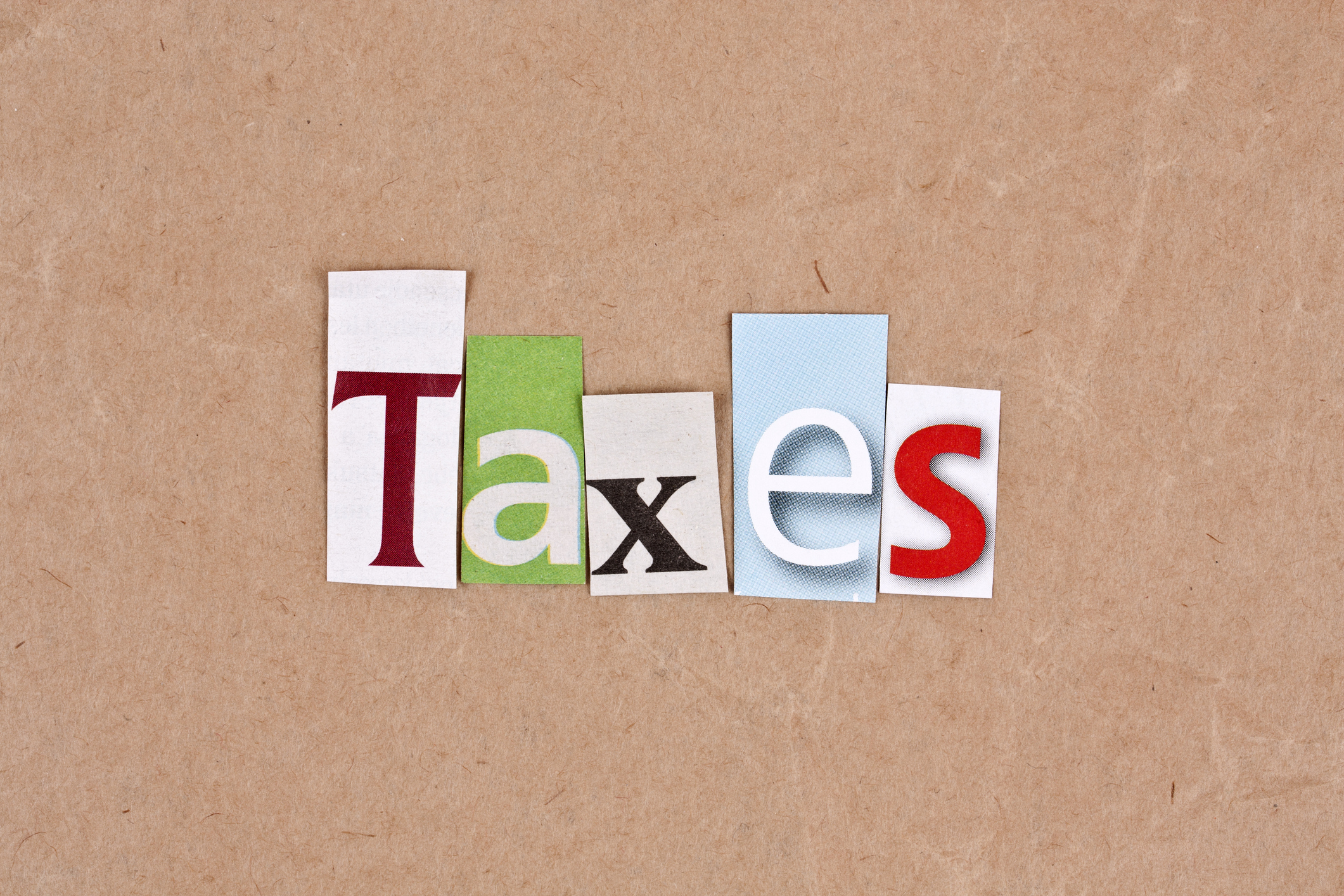
Did you know the standard deduction has become the choice for nearly 90% of U.S. taxpayers? This surge in popularity isn’t an accident. The Tax Cuts and Jobs Act (TCJA) of 2017 (also known as the “Trump tax cuts”) nearly doubled the standard deduction, and that higher deduction is still in place now.
Data show that before the TCJA, about 30% of taxpayers itemized their deductions. After its implementation, that number plummeted to just under 14%.
For the 2024 tax year (returns you're filing now), the standard deduction amounts are:
Single filers: $14,600
Married couples filing jointly: $29,2002
Head of household filers: $21,900
For more information and the 2025 standard deduction amounts, see Kiplinger’s guide: What’s the Standard Deduction?
- Kelley
Breaking News: Trump Exempts Electronics from Steep Tariffs

President Trump has recently exempted smartphones, laptops, and other electronics from his administration’s sweeping 145% tariffs on Chinese imports.
The decision, announced on April 12 by U.S. Customs and Border Protection (CBP), spares critical tech products like semiconductors and flat-panel displays from high levies, which combine a baseline 20% tariff with a newly imposed 125% “reciprocal” tariff.
The exemption comes amid an intensifying trade conflict. China had just raised its tariffs on U.S. goods to 125%.
While the 145% U.S. rate for now remains in place for most imports, the carve-out for electronics acknowledges the reliance of companies like Apple and Dell on Chinese manufacturing.
Industry leaders had warned that applying the full tariff to devices like iPhones could triple consumer prices and disrupt supply chains.
This is a developing story.
- Kelley
Tax Day 2025 Is Almost Here

Good morning and welcome back. It’s Monday, April 14, 2025, and we’re in the final countdown to Tax Day — just one day left to file your returns!
While many of us are scrambling to finish up our paperwork, this 2025 tax season has been anything but ordinary.
First, the IRS is facing major challenges. Thousands of IRS employees have been laid off, some reinstated, and then laid off again as part of federal budget cuts, leaving the agency stretched thin during its busiest time of year. The agency also lacks stable leadership since several of the IRS Commissioner or acting Commissioner roles have departed or are planning to depart soon.
But: Despite these workforce and operational reductions, the April 15 deadline remains firm for most. If you haven’t filed, get everything in by tomorrow to avoid penalties.
Adding to the confusion, some states have been granted tax deadline extensions due to natural disasters. If you’re in places like Florida or Georgia, you have more time to file (see Kiplinger’s list of states with extended IRS tax deadlines) — but the April clock is ticking for the rest of us.
So grab your favorite beverage and tackle your return if you haven’t already.

Kelley simplifies federal and state tax information, news, and developments to help empower readers. She has over two decades of experience advising on and covering education, law, finance, and tax as a corporate attorney and business journalist.
Why the IRS Recommends Electronic Filing
The IRS emphasizes electronic filing for its speed, accuracy, and security. IRS Direct File — now available in 25 states — allows eligible taxpayers to submit federal returns directly to the IRS at no cost.
- Free File, available nationwide for those earning under $84,000, offers guided preparation for federal and most state returns.
- Both methods reduce errors, expedite refunds, and allow W-2 data imports from IRS accounts.
Of course, you can also use traditional tax software or a tax preparer who can help you electronically file your return. For more information, see Ways to File Taxes for Free.
Mailing returns: Key considerations
If you must mail your tax return, make sure your envelope is postmarked by April 15. Use tracking to confirm delivery.
- The IRS notes that paper returns take longer to process and increase the risk of delays.
- Also, most USPS locations operate with regular hours on Tax Day, but check if your local office offers extended hours. See Is the Post Office Open Late on Tax Day?
Whether you file digitally or by mail, act now to meet tomorrow’s deadline. Double-check forms and avoid common tax filing mistakes.
- Kelley
Will 2025 Finally Bring SALT Deduction Relief?

The $10,000 cap on state and local tax (SALT) tax deductions is a contentious provision of the 2017 Tax Cuts and Jobs Act (TCJA), also known as the "Trump tax cuts." Key provisions of that legislation currently face potential reforms as lawmakers gear up for 2025 tax negotiations.
The SALT cap is one of the provisions set to expire at the end of 2025 if Congress doesn't act. As a result, bipartisan pressure is mounting to address its impact on residents in high-tax states — so-called “blue” states like New York and New Jersey and “red” states like Texas, where property taxes strain household budgets.
Possible reforms
Proposals range from doubling the cap to $20,000 for joint filers to tripling it to $30,000.
Others suggest limiting deductions to property taxes only while eliminating write-offs for state income or sales taxes.
The negotiations are complicated by cost concerns — repealing the cap entirely could cost $620 billion over a decade by some estimates. Plus, there are ongoing debates over who benefits most (high earners, per the Tax Policy Center).
Political dynamics
Republicans like Rep. Mike Lawler (R-N.Y.) vow “no SALT, no deal,” while Democrats like Rep. Tom Suozzi (D-N.Y.) echo the sentiment, framing the cap as “double taxation.
President Trump, who initially backed the $10,000 limit, now supports adjustments, calling to “get SALT back” during his 2024 campaign. However, skepticism remains about whether compromises will satisfy fiscal hawks and constituents in high-cost areas.
What’s next?
While full repeal seems unlikely, a higher cap or targeted relief could soften the blow for some lawmakers and taxpayers.
Stay tuned for updates.
Also, see our report: SALT Cap Repeal? What to Expect From 2025 Tax Reform.
- Kelley
It's Tax Day! Some Important Considerations Beyond the IRS Filing Deadline

Good morning and welcome back.
It's Tax Day! That means taxes are due for most U.S. taxpayers before midnight.
But did you know April 15 marks a critical date for more than just filing your federal income tax return? It's also the deadline for several other critical tax-related actions that can impact your financial situation.
For instance, unless you have a valid extension, today is the last day to contribute to your Health Savings Account (HSA) and Individual Retirement Account (IRA) for the previous year, which can help reduce your tax liability.
Self-employed individuals must also make their solo 401(k) contributions and estimated tax payments by this date.
Missing these deadlines can result in penalties or missed savings opportunities. Additionally, some states may have different deadlines, so checking local requirements is crucial.
See our report: Nine Tax Day Deadlines to Know for 2025 Filing.
- Kelley
Celebrate Tax Day with Surprising Freebies and Deals!

Tax Day doesn’t have to be all stress and numbers — this year, several popular restaurants and brands offer some unexpected treats to help you celebrate surviving the tax season.
From exclusive menu items to special discounts, these limited-time offers are designed to brighten your day and reward your hard work. Whether you’re craving a savory bite or a sweet indulgence, there’s something to satisfy every palate.
But don’t wait too long — these deals are only available for a short window around Tax Day.
Ready to discover how to make April 15 a little more delicious?
Check out Gabriella’s article: Tax Day 2025: Freebies, Food Deals, and Discounts.
- Kelley
Fun Fact: Which Generation Pays the Most Tax?
With it being Tax Day, you may wonder who pays the most taxes in the United States. It might not be who you expect.

Recent data reveals interesting insights about which age groups and income levels contribute the largest share of federal income taxes.
From younger earners to those in their prime working years — and even the wealthiest Americans — the story of tax burden is more complex than it seems.
Curious to find out who carries the biggest tax burden? Read our full story: Which Generation Pays the Most Taxes?
A Little History: IRS Celebrates 70 Years of the April 15 Tax Deadline
This Tax Day, the IRS commemorates the 70th anniversary of the April 15 federal income tax filing deadline, a consistent date since 1955. (The shift from the original March 15 date was reportedly made to accommodate increasingly complex returns, allowing more time for taxpayers and the IRS.)
Driven by technological advancements and improved customer service, the tax filing process has evolved from manual paper submissions to more efficient e-filing and online tools.
The tax agency reports that over 144 million individual tax returns were filed last year, with 96% submitted electronically.
Remember: It’s important to file by tonight's tax deadline or request an extension until October 15. Taxes owed must still be paid by April 15 to avoid penalties.
Visit IRS.gov for more information.
Is the Post Office Open Late Tax Day? What to Know for 2025

Tax Day used to mean long lines at the post office, but in 2025, most people file their taxes online.
But, if you’re mailing a paper return, here’s what you need to know: The U.S. Postal Service will operate on regular hours on April 15, with only a few local branches possibly offering extended hours for last-minute filers.
Still, your return must be postmarked by April 15 to be considered on time, or you risk penalties.
When in doubt, check with USPS or your local post office online for hours and collection times to avoid last-minute stress.
- Before mailing, confirm you’ve included enough postage and the correct address and that all your information is accurate.
- Errors like missing Social Security numbers or unsigned forms can delay your refund.
- If you’re pressed for time, you can file for an extension by April 15. But remember: an extension to file doesn’t extend the payment deadline. Interest will accrue on any unpaid taxes after the deadline.
Also, remember that state tax deadlines may vary, especially in areas affected by natural disasters.
- Kelley
Tax Day Midnight Deadline: What You Need to Know
You've heard it already: Today is Tax Day, and the clock is ticking. The IRS requires you to file your 2024 federal income tax return by midnight on April 15.
Whether you’re e-filing or submitting a payment electronically, everything must be completed before midnight in your time zone to avoid penalties. The IRS systems typically accept returns until 11:59 p.m. local time for electronic filers, so plan accordingly.
If you’re mailing a paper return, it must be postmarked by today. But remember, the post office won’t stay open late, so don’t wait until the last minute.
If you can’t finish by midnight, you can file for an extension using Form 4868, which must also be submitted before midnight.
Remember, an extension doesn’t extend the time to pay any taxes owed; interest and penalties will accrue after midnight.
Did You Miss the Tax Deadline?
Missing the tax deadline can feel stressful. If you didn’t file your taxes (or request an extension) yesterday, the most important thing is to act as soon as possible.
The IRS charges penalties and interest on both late filings and late payments, so the sooner you file, the better. Even if you can’t pay your full tax bill right away, file your return to minimize penalties.

If you’re due a tax refund, there’s usually no penalty for filing late. However, you have up to three years to claim your refund — otherwise, you’ll lose it.
For those who owe taxes, consider setting up a payment plan with the IRS if you can’t pay in full. (See: Ways to Pay the IRS if You Owe.)
Remember: Don’t ignore the problem. Taking prompt action can help you get back on track and reduce financial stress.
For more information see our report: What Happens if You Missed the Tax Deadline?
Millions of Taxpayers Have Extended Deadlines

Did you miss the tax deadline? Don’t panic just yet. If you reside in certain states or counties that were impacted by federally-declared natural disasters, the IRS has automatically granted extended deadlines to give you more time to file and pay your taxes.
Before diving in, you should know that the 2024 health savings account (HSA) contributions deadline was on Tuesday, April 15. However, qualifying taxpayers given federal tax extensions due to severe storms or natural disasters also have an extended HSA contribution deadline.
Extended tax deadlines for each state listed may only apply to certain counties or parishes impacted by natural disasters. Here are some to keep an eye on:
Alaska: Folks impacted by severe flooding in the Juneau area of Alaska beginning Aug. 5, 2024, now have until May 1, 2025, to meet various tax filing and payment obligations.
California: Taxpayers impacted by California wildfires beginning January 7, 2025, have an extended IRS tax deadline of October 15, 2025. (For more: California Tax Deadline Extension: What to Know for 2025)
Kentucky: Affected taxpayers from flooding and landslides documented on Feb. 14, 2025, now have until Nov. 3, 2025, to file various federal tax returns and make payments.
New Mexico: Severe storms and flooding impacted New Mexico on Oct. 19, 2024. Affected businesses and residents in Chaves County, New Mexico, now have until May 1, 2025, to meet various tax deadlines originally due between Oct. 19, 2024, and May 1, 2025.
Furthermore, the IRS issued extensions to multiple states and counties impacted by Hurricanes Helene and Milton. Affected businesses and residents in Alabama, Florida, Georgia, North Carolina, South Carolina, Tennessee, and Virginia now have until May 1, 2025, to meet various tax deadlines.
Currently, Alabama, Georgia, North Carolina, Florida, and Virginia have individual state deadline relief. Impacted residents of these states may also qualify for tax relief. For more information, see: Hurricane Helene Aftermath: IRS Tax Relief and How to Help.
If you suspect that you may have qualified for an extension due to a natural disaster and want to learn more, see Kate’s article: States With 2025 IRS Tax Deadline Extensions.

Gabriella is a seasoned finance journalist with 8 years of experience covering consumer debt, economic policy, and tax. She contributed to national dialogues on fiscal responsibility, market trends, and economic reforms.
Taxpayer: You Still Have Time to Restore Lost Tax Records

Taxpayers who have been impacted by a federally declared natural disaster were granted extended deadlines to meet their tax filing and payment obligations for the 2025 tax season.
However, you must restore your federal and state tax records if you’ve experienced property loss or business disruptions, as these documents can facilitate the claims process while you rebuild. Your tax records can serve as proof of income, property ownership, and expenses that may be subject to federal disaster-related tax deductions or relief.
As mentioned earlier today, residents of certain states impacted by Hurricanes Helene and Milton qualify for federal disaster-related tax deductions or government relief. That being said, the time to act is now.
Some tax records you may want ot recover include your W-2, 1099s, or prior tax returns. The best news is that the IRS may allow you to recover your federal return transcripts for free. A starting point to get your tax records online is to visit the Get Transcript tool on IRS.gov.
If you’re missing your state tax return, you can request a copy by contacting your state’s Department of Revenue. These documents can also be recovered free of charge under certain circumstances determined by your state. However, make sure to file these requests carefully and through the verified channels to avoid fraud or identity theft.
For more information on how to restore your tax documents, see: Here’s How to Recover Your Tax Records After a Natural Disaster
- Gabriella
Due for a Refund? IRS Says You Can Still File

If you’ve missed the April 15 deadline to file your taxes, there’s some good news. The IRS doesn’t penalize taxpayers for filing after Tax Day if a refund is due.
Every year, the tax agency estimates that nearly one million taxpayers who failed to file prior-year tax returns were potentially eligible for a refund. This often happens to individuals who choose not to file because they don’t earn enough to meet filing requirements.
These folks could be missing out on refundable tax credits, such as the Earned Income Tax Credit (EITC), the Child Tax Credit (CTC), and the Child and Dependent Care Credit (CDCTC).
If you’re a student, you could also be eligible for some popular education tax credits and deductions. For example, the American Opportunity Tax Credit (AOTC) is a partially refundable credit that helps qualifying taxpayers who are currently enrolled in college claim certain education expenses such as books, supplies, enrollment fees, or equipment.
If you have yet to file your 2024 tax year return, you can use free electronic filing options available through IRS.gov. For instance, IRS Free File will remain open until Oct. 20, and IRS Direct File is available until Oct. 15.
Related: Free IRS Tax Filing for 30 Million People: Will it Continue Under Trump?
- Gabriella
State Tax News, Refunds, and Property Taxes
Good morning, and welcome back! Here’s your weekly update on state tax news. Several states are proposing and/or enacting key tax changes.
So here are a few state tax highlights you might have missed in the last week:
- Indiana homeowners are receiving some property tax relief due to a new law recently signed by Gov. Braun. The law provides a tax credit worth 10% of a homeowner's property tax bill, with a maximum credit of $300. Additionally, the law caps county income tax rates at 2.9%, a decrease from the previous 3.75% rate. Municipalities will also be allowed to impose a local income tax rate up to 1.2% without county officials' approval; this has caused some worry about higher local income taxes making up for lost property tax revenue. Others are concerned that the tax cut will negatively impact school funding, as property taxes are a major revenue source for Indiana schools.
- Minnesota lawmakers are seeking a way to tax social media platforms based on the number of users. Larger companies with at least 1 million users would pay $165,000 per month plus $.50 per person. Smaller sites with fewer than 100,000 users would not pay a tax per user. Platforms in between the two thresholds would pay varied amounts. The state’s Department of Revenue estimates the bill could bring in about $334 million in revenue over four years.
- North Carolina HB 920 would allow taxpayers to pay their tax obligations through digital assets, like cryptocurrencies. Proposed by State Rep. Neal Jackson (R-Robbins), the bill requires that a digital asset meet strict criteria, like having been on the market for at least 10 years, before it becomes an acceptable means of paying off tax debt.
New this week: Georgia taxpayers have something to celebrate. Earlier this week, Gov. Kemp signed two key tax bills. One new law gives Georgia surplus tax refunds for 2025. Residents may see up to $500 in their mailboxes later this year. The second law accelerates the state’s income tax cut schedule. Georgians will see their 2025 flat income tax rate drop from 5.39% to 5.19%.
That’s it for now! But be sure to check back soon for more tax news and updates.

Kate is a CPA with experience in tax, audit, and finance topics. As a tax writer at Kiplinger, Kate helps you and your wallet stay in the know.
Retirees: Have You Ever Wanted to Live as a ‘Minimalist?’
The minimalist mindset began as an art movement about eighty years ago. However, in recent decades, the movement has become synonymous with less stuff: Spending less, keeping only what you need, and removing frivolous distractions to focus your time more on what matters to you the most.
By adopting this “creative” mindset, you may also maximize your finances in retirement.
For instance, downsizing in retirement may not only lower your utility bill but also reduce property taxes and allow you to move from a high-tax place to a low-tax place (potentially reducing the need for a car, which would save on motor vehicle costs and, in some cases, gas tax and property taxes as well).
For more examples of how minimalist techniques can improve your finances through a simplified lifestyle, check out Kiplinger’s report, Three Creative Ways to Lower Your Retirement Taxes.
- Kate
Four IRS Commissioners this Year, and Counting...

President Trump recently nominated acting Commissioner Gary Shapley, a Hunter Biden whistleblower, to replace acting Commissioner Krause, who is expected to resign from the IRS effective mid-May.
The announcement comes amid ongoing turmoil at the IRS, as DOGE and the Trump team consistently cut workers (either through layoffs or buyouts) and shortly after the Department of Homeland Security (DHS) signed a data-sharing agreement with Treasury Secretary Scott Bessent. If it survives court scrutiny, that will give U.S. Immigration and Customs Enforcement (ICE) private information about undocumented taxpayers.
But wait – wasn’t former Congressman Billy Long supposed to be confirmed by now as the new IRS Commissioner? And why is Krause leaving?
Follow Kiplinger’s report, How Many IRS Commissioners Have We Gone Through? For more information on who the 2025 IRS Commissioners have been, why they potentially left, and how their strategic tasks at the IRS might have related to Trump’s administrative initiatives.
- Kate
Which Generation Pays the Most Tax?
Good morning and welcome back. Let's kick off this Friday with some interesting tax facts.
Ever wonder which generation ends up paying the most in taxes? The answer might surprise you.
While many might guess it’s retirees or high-earning millennials, it’s actually those in their 40s and 50s who shoulder the most significant share. That group contributes nearly 30% of all federal income taxes — far more than their population share.

Why is that? It seems to come down to peak earning years and all the financial responsibilities that come with them.
Even though people in that age bracket are often juggling careers, kids, and in many cases, helping aging parents, their average annual tax bill is much higher than that of younger adults or retirees.
Curious how your generation stacks up — and what these numbers mean for the future?
Our full story breaks down the details and might change your perspective on who’s really footing the tax bill in the U.S.
See: Which Generation Pays the Most Tax?
- Kelley
Tax Season 2025: New Challenges and the Way Forward

As we wrap up this 2025 tax season blog that started when the IRS first began accepting returns on January 27 and concludes April 18, it’s a good moment to reflect on what we’ve covered and look ahead.
Tax season always brings a mix of challenges and opportunities, and we hope this journey helped make sense of some of the complexities, from filing tips and policy updates at the federal and state levels to deeper dives into issues like President Trump's tax plans, retirement taxes, and generational tax burdens.
Whether you’re an individual taxpayer, a small business owner, or just curious about how tax shapes our economy, understanding the rules can empower you to make the best financial decisions for you.
But remember, 2025 is a time when federal tax laws will evolve (state tax laws are constantly changing) and the IRS is in a bit of turmoil, so staying informed year-round, not just at filing time, is key.
Consider this the start of a new chapter in your tax knowledge as the calendar turns. Keep an eye on upcoming changes, plan, and don’t hesitate to seek professional advice.
Thank you for following along, and here’s to a more confident tax experience next season.
P.S.: In the meantime, read more from the Kiplinger tax team on Kiplinger.com and subscribe to our weekly email newsletter: Kiplinger’s Tax Tips.

Kelley simplifies federal and state tax information, news, and developments to help empower readers. She has over two decades of experience advising on and covering education, law, finance, and tax as a corporate attorney and business journalist.
